January 27, 2015
Thinning Law Cattle: The Lawyer 'Occupational Transfer Rate' is as High as an Elephant's Eye.
Here is good news for clients if you believe, as this blog does, that even in pre-recession days--say, 8 years ago--there were far, far too many lawyers who disliked what they did. And that hurt, and still hurts, clients. The Lawyerist reports that if you examine Bureau of Labor Statistics numbers, you may be able to conclude that a whopping 25% of currently practicing lawyers will be gone/bail out/have left the building in about 7 years. Is this cool or what?

Posted by JD Hull at 09:38 AM | Comments (0)
January 24, 2015
Represent Only Clients You Like, Justin.
Rule One: Represent Only Clients You "Like". Life's short. The profession is demanding enough. From our annoying but dead-on accurate, world-famous, wise and must-follow 12 Rules of Client Service.

Posted by JD Hull at 12:57 AM | Comments (0)
January 05, 2015
Back to Basics: The 12 Rules of Client Service.
It's a new year, Justin. It's the perfect time to start developing what one poet called a New Mind by thinking about and trying out our world-famous and annoying but highly correct, inspirational and soulful 12 Rules of Client Service:
1. Represent only clients you like.
2. The client is the main event.
3. Make sure everyone in your firm knows the client is the main event.
4. Deliver legal work that changes the way clients think about lawyers.
5. Over-communicate: bombard, copy and confirm.
6. When you work, you are marketing.
7. Know the client.
8. Think like the client--help control costs.
9. Be there for clients--24/7.
10. Be accurate, thorough and timely--but not perfect.
11. Treat each co-worker like he or she is your best client.
12. Have fun.
Posted by JD Hull at 08:49 AM | Comments (0)
November 25, 2014
On Thank You Notes.

The Governess, 1739, Jean-Baptiste-Simeon Chardin (1699-1779)
In case your Governess never told you, you're from Mountain Grove, Missouri* or you were stoned all seven years at Hotchkiss, remember that when thanking anyone for something important--a meeting, referral or a dinner--do it and do it promptly with a handwritten thank-you note. We all fail here from time to time. Yet no valid excuses exist for not writing short prompt notes.
Too few of us practice gratitude, in either business or our "other" lives, enough. Some say the practice of saying thanks is good for the soul. Others swear it's good for revenues, too. Many business people and some lawyers with the highest standards taste (i.e., wear socks to meetings or court) think that no written thank-you note means no class--as harsh and low-tech as that may sound.
Typed is okay--but handwritten is better. Even if you are not convinced that thank-you notes are noticed and appreciated (they are), pretend that we know more than you (we do), and do it anyway (thank us later). Good stationery. We suggest Crane's on the lower end, or something better, like stationery from Tiffany's, or a Tiffany-style knock-off, on the higher end. A "studio card", maybe. Plain. Simple. Initials on it at most.
If you get personalized stuff, have a return envelope address to a home or business--but without the business mentioned. It's personal. Leave Acme Law Firm off it.
If you get mentioned or "linked-to" on the Internet? However, "electronic thank-yous" by e-mails to express thanks for links, comments or mentions in posts or articles on the Internet--i.e., three different people link to your blog every day, you are working full time for clients, busy firing looter-style staff and associates, and writing op-ed pieces entitled "Summer 2015: The Mood of the Midwest"--are totally okay.
Short, sweet, and press "send".
Blogging about you or your ideas is, of course, very nice--but it's not like they bought you dinner, or invited you up to Newport for the weekend. Besides, you'll always miss a few kudos thrown at you in the digital ether.
But what if you are trashed in the ether? A "reverse" thank-you? Sure, you may be insulted, purposely mis-paraphrased, misinterpreted, or just inadvertently misquoted. It happens. Remember, some bloggers and pseudo-journalists are (1) angry, (2) disorganized, or (3) essentially unemployed. Our suggestion? Let 'em have it. And you can be rude. You've earned it.
Anyway, let's get back to manners. If you don't regularly thank people for links or mentions of you or your firm's blog or website, you are fouling your own nest.
Not thanking people in the blogosphere is (1) arrogant and (2) dumb. It adds to the notion that (3) bloggers are insular, passive-aggressive lightweights lacking in people skills.
So develop some habits about all thank-yous for everything--and make handwritten the default position. If you don't, bad things will happen:
1. No one will give you any more business, or invite you to The Hamptons.
2. People will say mean things about your dog, your wife, your girlfriend, or about all three. Worse, they trash you.
3. If you went to Brown, snide people will remind you and your friends that Brown used to be the safety school for the Ivies.
4. If you were at Duke, they'll re-float the completely untrue story that Duke exists only because Princeton had too much honor and class to accept Buck Duke's filthy tobacco money and re-name Princeton Duke.
5. If Princeton, they'll just say you were always kind of light in the Cole Haans, too, and were once even seen dancing at an "alternative lifestyle" bar in the city--dressed in full leather biker garb--so what can you expect?
You get the idea. So thank people in writing. Handwritten as a general rule. E-mail only for a cyber-mention.
Finally, if your site is so successful that your links, e-mails and comments are through the roof, hire someone else to do the thank-yous--written or electronic--for you.
*Six generations of Hulls immediately preceding the author's were born there or nearby. There is hope for everyone.
Posted by JD Hull at 06:09 AM | Comments (0)
November 18, 2014
Learn Them and Fit In: The Seven Unshakeable Habits of Tragically Clueless Lawyers.
Lawyers who won't take a stand is a time-honored tradition. Ernie from Glen Burnie, a lawyer and a life-long friend of mine, is not such a creature. It's just his nature. He's an activist in all matters. He'll stand up for people who pay him--and for people he just met on the subway. In late 1995, when the championship Netherlands Women's National Volleyball Team were staying at the Mayflower, Ernie, I and two lawyer from the DC office of [firm name deleted] met the four tallest at Clyde's.....sorry, we're getting sidetracked. There are so many wonderful stories about Ernie from Glen Burnie (EFGB). But read first the very short story about Ernie's big find circa 1990. We first reported on it in June of 2006. It's about an old parchment he claims was discovered in Alexandria, Virginia, around the same time we both began practicing law in the District. Do see The Seven Habits of Highly Useless Corporate Lawyers. This is a true story, mostly. So listen up.

Stand-up guys: The author, then a dead-ringer for writer Jack Kerouac, and EFGB in their pre-lawyer and pre-Netherlands Women's National Volleyball Team years.
Posted by JD Hull at 09:32 AM | Comments (0)
June 23, 2014
Rule 7: "What does the client sell?" "Who are the client's customers?"
See Rule 7: Know the Client. Every great client wants you to know him, her or it.
Take time out to learn the client's stock price, day-to-day culture, key management figures, industry players, industry reputation, overall goals and major things it tells the Securities and Exchange Commission. The client is publicly-traded, you say? Wonderful. You have much to read, friend. Also get a feel for what other credible sources--the client's website and public filings are not enough--are saying out there about your client.
Visit the client's offices and plants, too, especially if the client is small or privately held. Seeing live operations and key players moving around and interacting speaks volumes. Early on, and for every client, see as much as you can in 3D. Hey, it's fun. Do it free of charge.
Learn something about the client's history. Get a grip on its past and true origins. How your Houston-based petroleum or gas drilling client started out in 1884 in Indianapolis making pumps for bicycle tires will make sense, and maybe put a few things together for you. Even more importantly, history may tell you lots about the client's corporate "personality" and "culture", now and during the past 130 years. You may discover why the client now behaves as it does with its employees, and with vendors and competitors, or why it has a certain reputation in the marketplace.
By the way, in established and larger companies, my take is that corporate cultures and personalities--the Good, the Bad and the Strange--rarely bear any relationship to the make-up, character and day to day actions of individuals who currently lead and manage the company. And even if I'm wrong about that, personality, culture and atmospherics are certainly worth knowing about.
Finally, as you work for the client, does the talented in-house lawyer, GC or other client representative you must answer to actually pick up on your newly-acquired knowledge, nuances and insights? Yes. Absolutely.

Posted by JD Hull at 11:52 PM | Comments (0)
June 02, 2014
Client Money.
Rule 8 is Think Like the Client--Help Control Costs. Knowing what the client is paying your firm informs and affects the strategy of every big project and, if the stakes are high enough, affects even the overall business strategy of the client.

(MTV/Mike Judge)
Posted by Holden Oliver (Kitzbühel Desk) at 11:59 PM | Comments (0)
May 29, 2014
The Rules
A few more words about our world-famous The 12 Rules of Client Service, first published here in April of 2006. Think of these rules as a 12-step program for suits and their employees: lawyers, accountants, consultants, execs, technicians and countless other occupations now laboring to provide solutions to customers in the new global services economy. The goal of the 12 Rules is to align the interests of clients/customers and service providers to the fullest extent possible.* We think they do that well. Finally, the rules (while badass, make no mistake) are not perfect. Got suggestions or criticisms? We'd love to hear them.
*The 12 Rules were not written for yah-yah "happy atmosphere" shops like, say, Starbucks or Disney World. The rules are not about being friendly, nice, obsequious or servile with the client or customer.

Posted by JD Hull at 11:59 PM | Comments (0)
May 28, 2014
John F. Lynch: "Sitting on the Wall." Or how should law firms think about GCs and In-house Counsel?
We had a good reaction in the blawgosphere two weeks ago when we introduced and ran "Sitting on the Wall", an address given at a law firm department retreat ten years ago by former BigLaw patent litigator and partner John Lynch. And so we are posting it again.
Good afternoon.
I have been asked to speak briefly about my observations about the practice of law, and in particular about developing business: how have I done it and the guidelines that I have pursued in that effort.
At the start, I will observe that the how and why legal business gets gotten is perhaps the most mysterious phenomenon related to the practice of law. Most of us lawyers are Type A personalities which, as a corollary means we are paranoids. We wonder what we’ve done wrong. Why is it that clients will not hire us? What is it out there that is conspiring against our developing a solid client base producing repeat business year after year?
I cannot dispel the paranoia, in fact I encourage it. It’s healthy particularly if it keeps us alert and attentive to our clients’ wants and needs. But when we look at ourselves, we are looking in the wrong place to answer how to develop clients. We have to look at the clients and what they want.
From a perspective that is at least long, I can offer overarching counsel that you develop clients and client loyalty by doing what I call “sitting on the wall.” It’s kind of a parable, but I’ve never been able to explain it better than “sitting on the wall.” In that parable, the client has invited us to his or her castle for purposes of defending it in one fashion or another, and your message to the client by both words and action is simple, “You go to sleep tonight with your family and do not worry. Even though it’s cold and rainy, I will sit on the wall, and if the Huns come in the dead of night I will pour hot oil on them and drive them away...and I will try not to wake you in the process.”
I wound up with this philosophy about sitting on the wall as a result of making three observations that I call rules about the business of lawyering. As I said, being self centered lawyers as we are it is difficult to begin where we must begin not by looking inside ourselves, but rather by looking inside the individuals from whom we seek employment. Who are these people? What are they looking for? Are they different from us, and if so, how so? These are inquiries into customer needs, customer preferences and customer impressions and these are the core questions that must be made in any service business.
First Rule
And that is what we as lawyers do. We provide a service. So that is the first rule: To recognize and understand that lawyering is a service business. As an individual, you must get out of your head that that you are marketing a product. We are not selling the product of superior legal analysis, or the product of skillful advocacy, or even the product of artful cross-examination or eloquence before a jury. You or your firm will so advertise, but that’s of no consequence.
If you think about it, the typical client is inundated with material about the product offered by law firms, and for the most part he or she probably has concluded that there are a lot of lawyers offering good product.
Now that is not to say that there may not be in this audience a lawyer whose skills in one or another area are so extraordinary, so exceptional, that clients will flock to acquire that product. But even in those instances, I will suggest that greater success could be realized if that extraordinary talent could be repackaged and marketed as a service. And for the overwhelming majority of us, we are selling a service, and we will succeed if our service is good. The essence of service by its very nature means that you are adapting to the client’s needs and desires. You are not requiring the client to adapt to you.
Second Rule
The second rule is to recognize that clients have careers too. It has long been the case that the determination of success or failure may be much more arbitrary for an in-house lawyer or a corporate executive than it is for us as outside counsel in a law firm. After all, we all have the privilege of speaking only about our victories when in the presence of the client, since the client may not be aware of the defeats. But there is no corporate general counsel out there whose entire won-loss record is not known by the CEO who sits over him and who controls his employment. So keep in mind, that the folks who are hiring us are entrusting us with preservation of at least a part of their career. They have a problem of one type or another, and they are putting that problem in our hands for us to solve.
That’s what virtually all lawyering is: problem solving. There is a problem because the client is accused of impinging on the rights of some one else or because that someone else is perceived as intruding somehow on the rights of the client. Sometimes the problem has not yet matured, and the lawyer is asked to assure it does not mature. The client’s commission is: Make the problem go away. Sure, they want to remain informed. Sure, they want to participate. Sure, they want and need a budget that is followed. But the bottom line is that the client gave us a problem to solve, and since we aspire to represent clients in the most difficult and most important cases, what we aspire to is to represent our clients in solving the largest problems that they have. For the individual within the client responsible for hiring us, those are career shaping employments.
It is important that we remain conscious that our employer is not a faceless corporation with a lawsuit or other adversarial contest to win. Our client truly is a lawyer or executive with a career shaping problem to solve. That realization will affect how you deliver your service, and how you work to relieve the inevitable tension that can build during an employment.
Which leads to the third rule.
Third Rule
The third rule is to remain aware that, despite the requests for updates and briefings, in virtually every employment the client is trying to transfer the load that is his problem to you so the problem is no longer a burden, so it no longer inhibits the client’s activity. In short, the client wants you on that wall looking after his problem and being mindful of his career. If the night is cold and rainy, and if down in the client’s bedchamber the fire is roaring and the best brandy has been opened, you are still to sit on the wall and look for the Hun. You may get a visit out there on the wall, and you may even get a hot chocolate, but if you have the client’s ultimate trust you will never be invited into the warm bedchamber while there is a possibility of attack. It’s not ingratitude. It’s simply that you have been entrusted with this job and the job requires sitting on the wall--if you don’t do it someone else will have to. And if that someone else does it and does it well, that someone else will win the client’s trust. Only when the enemy no longer threatens can you leave that post on the wall.
I had a very talented partner who will remain nameless who seemingly had all the tools for success. He was bright, able, eloquent, charming and had an excellent understanding of the law. But if you watched closely around clients, his message was, “You go to sleep tonight with your family and don’t worry. But because it’s raining, I’m going back to my castle to enjoy the fire and perhaps the brandy. But don’t worry. I have a very fast horse, and if the Huns attack, just let me know and I will be here immediately and I will drive them off.” It didn’t sell, and you could see it. That message was communicated indirectly in many ways, but the upshot was that clients were never able to be confident that a problem had been fully offloaded to that lawyer. That lawyer seemed always to impose conditions on the service. There were inconveniences that took precedence over his rendering of service. The product was admittedly good, but the service was lacking.
When you get to the how-to of all of this, I could go on and on, but the take-away is simple. An employment is not about you or about the firm. It is about serving some individuals by solving their problems efficiently as possible. So the hallmarks of a lawyer giving good service are timeliness, reliability, accessibility, and making sure that the best surprise is no surprise, all in the context of a tacit acknowledgement that you as outside counsel are committed to be of service. Also take a genuine interest in the career of the individuals that employ you. Tell them, occasionally in so many words, that you are committed to make them successful. Cultivate a culture of being helpful, of providing assistance. When you are dealing with a corporate client with a corporate law department, become acquainted with those lawyers and encourage them to give you a call not so you can have a client, but so that you can be helpful. For any minor matter and offer to help if they ever need some he, and offer to help on the cuff. As corporate lawyers grow and ascend into positions of responsibility, the parts of their Rolodex that are most precious are the phone numbers of the outside counsel that they can turn to reliably to assume problems from their shoulders and propel their careers. And even if they move across the country, they will continue to call those numbers when the really threatening problems arise.
And that’s what we are in this business for, right? To do the really important stuff and the hard stuff. Lord knows why we want that, but we do, and the way to get there, as far as I can see is by sitting on the wall.
Thanks for the opportunity to speak to you, and I hope your retreat is a dynamite success.
Copyright 2003-2014 John F. Lynch All Rights Reserved.
.jpg)
Posted by JD Hull at 11:59 PM | Comments (0)
Rule 9: 24/7 for clients and customers of professionals?
Yes, sir. That's exactly what you signed up to do, Sparky. See Rule 9: Be There For Clients--24/7 at our world-class but irritating 12 Rules. You're a new lawyer, accountant, doctor, consultant? It's not about you anymore.
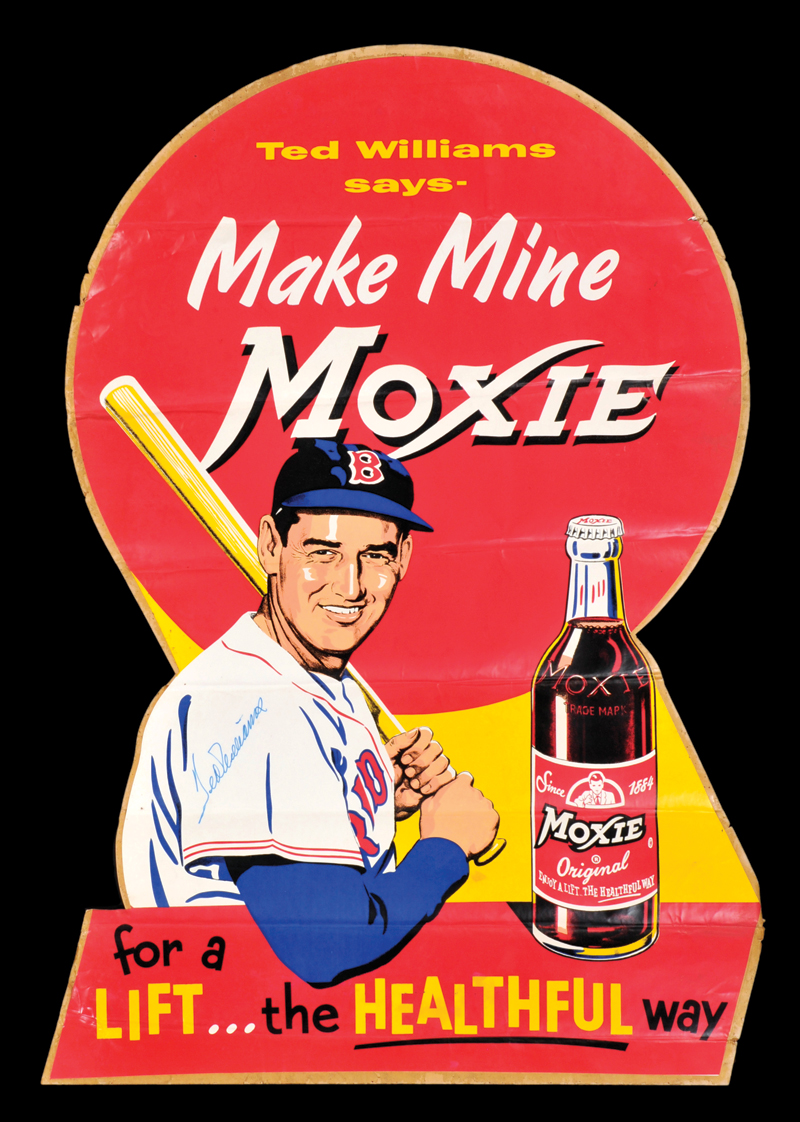
Being a Pro. It's never about you.
Posted by Holden Oliver (Kitzbühel Desk) at 11:59 PM | Comments (0)
May 21, 2014
"...sending to clients barrages of small but powerful ads."
It's scary. If you're working, you're marketing--and that is Rule 6 of the 12 Rules.

Posted by JD Hull at 11:59 PM | Comments (0)
April 30, 2014
Rule 4: Deliver work that changes the way clients think about lawyers.
At this blog, neither our writers nor anyone at Hull McGuire ever set out to be customer/client service experts or gurus. We are not experts or gurus on the subject. (Besides, most of the service rubric, with gems like "client care" and "customer experience", sounds a little like Mr. Rogers Goes to Law School.) However, based on actual experience lawyering, we wrote and published 12 Rules of Client Service in installments during a six-month period starting in October 2005.
The 12 rules do seem to have legs. We are flattered. In whole or in part, they regularly appear in publications and sites for lawyers and non-lawyers (e.g., accounting and real estate). They also get play every now and then in a book. Some folks who discuss, quote or mention them like all 12 rules. Others like one or two in particular. Our favorite? It's Rule Four: Deliver Legal Work That Change the Way Clients Think About Lawyers. It's our "Harry Beckwith" rule. Beckwith was a huge influence on how we could see making changes in lawyering--and the idea here is really his, not ours. An excerpt from Rule 4:
Why try "to exceed expectations" when the overall lawyer standard is perceived as low to mediocre? If your clients are all Fortune 500 stand-outs, and the GCs' seem to love you and your firm, is that because your service delivery is so good--or because other lawyers they use are so "bad" on service? Why have a low standard, or one that merely makes you look incrementally more responsive and on top of things than the boutique on the next floor up? Why not overhaul and re-create the whole game?
If you read the better writers on selling and delivering services, like Harry Beckwith in Selling The Invisible, you pick up on this simple idea: Rather than under-promise/over-deliver, why not change the way people think of lawyers generally and what they can expect from them generally? Get good clients--those clients you like and want--to keep coming back to you by communicating in all aspects of your work that you care deeply about your lawyering for them, you want to serve their interests on an ongoing basis and that it's a privilege to be their lawyer. Show them you fit no lawyer mold.

Posted by JD Hull at 03:06 PM | Comments (0)
March 24, 2014
If you're a professional, 24/7 is really not too much to ask.
See "Rule 9: Be There For Clients--24/7" in our annoying but true 12 Rules.
1. Law is a service business.
2. Lawyers are not royalty.
3. It's a privilege to practice law (and to work, too).
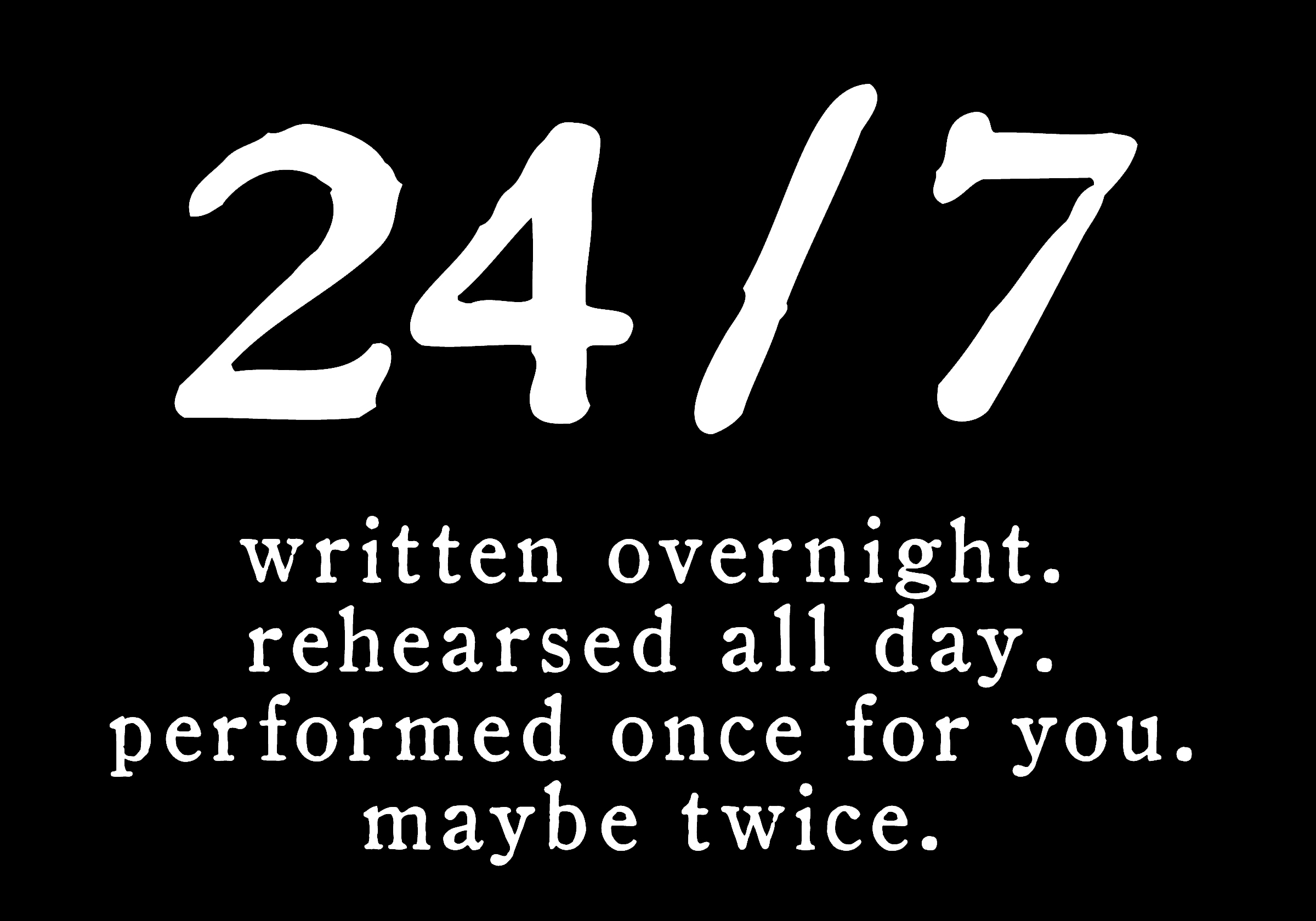
Image: The wonderful Whole Theatre, Charlottesville, Virginia.
Posted by JD Hull at 12:38 AM | Comments (0)
March 21, 2014
My friend Ernie from Glen Burnie: The 7 Habits of Highly Useless Lawyers.
Return of EFGB and the Seven Habits. Lawyers who won't take a stand is a time-honored tradition. Ernie from Glen Burnie, a life-long friend of mine, is not such a creature. It's just his nature. He'll stand up for people who pay him--and people he just met on the subway. You can read Ernie's story. It's about an old parchment he claims was discovered in Alexandria, Virginia, around the same time we both began practicing law in the District. Do see "The Seven Habits of Highly Useless Corporate Lawyers". This is a true story, mostly. So listen up.
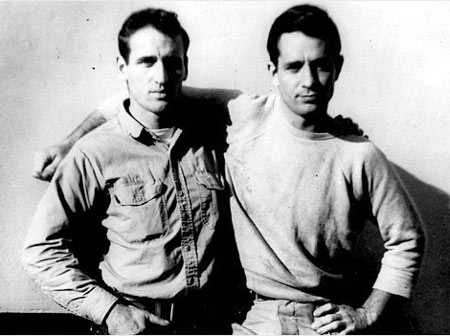
Stand-Up Guys: Ernie, a dead-ringer for 1950s icon Neal Cassady, and the author, during their pre-lawyer years in Washington, D.C.
Posted by JD Hull at 08:00 PM | Comments (0)
March 12, 2014
The Rules.
1. Represent only clients you 'like'.
2. The client is the main event.
3. Make sure everyone in your firm knows the client is the main event.
4. Deliver legal work that changes the way clients think about lawyers.
5. Over-communicate: bombard, copy and confirm.
6. When you work, you are marketing.
7. Know the client.
8. Think like the client--help control costs.
9. Be there for clients--24/7.
10. Be accurate, thorough and timely--but not perfect.
11. Treat each co-worker like he or she is your best client.
12. Have fun.
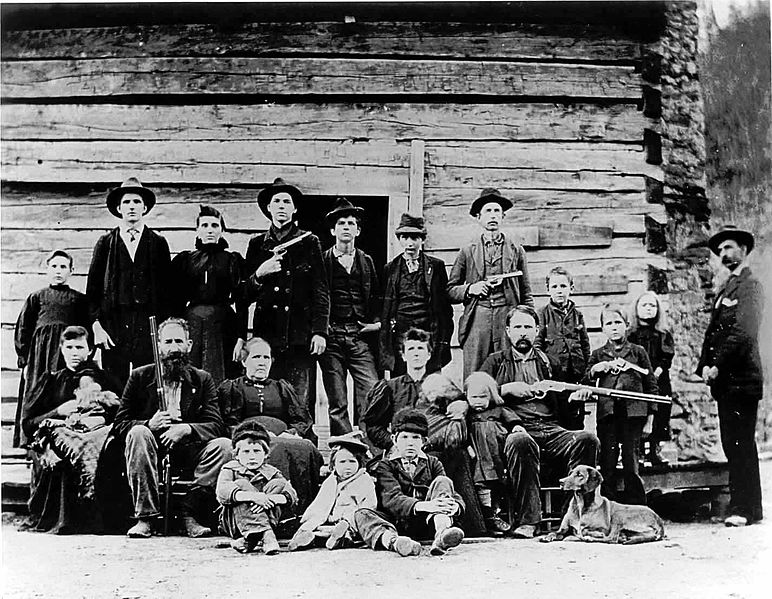
Copyright 2005-2014 J. Daniel Hull.
Posted by JD Hull at 03:25 AM | Comments (0)
February 12, 2014
Redux: Will we ever apply Ease-of-Use product concepts to Services?

And with thanks to New York City's Scott Greenfield for revisiting Ease-of-Use this week in his inventive "A Plea Agreement With An Easy To Use Handle".
About a decade ago, slowly and almost imperceptibly, industrialized economies like the United States and the United Kingdom became services-based, rather than products-based. In fact, in the last few years, both developing (interestingly, most countries in sub-Sahara Africa) and middle-income countries started to make the same transition.
Importantly, apart from the steady rise in services like financial services, health care, human services, tourism, education and information technology, the growing movement toward services was fueled by a new development: a revolutionary increase in sales of products with a "service component".
Manufacturers and sellers like IBM, now seeing themselves chiefly as solution providers, began to mix products with services, often through contracts to maintain, replace and/or modify complex equipment and hardware. Currently, if a product is involved, a product-services mix is almost always present. Sure, the seller's product is still in the picture. But the sale of services--generally, consulting services--is now the main event. Products, goods and equipment? They are now secondary, and part of the services solution. Things have changed.
Moreover, as newer and product-related services expanded, traditional and professional services--e.g., law, accounting, medicine, advertising--also continued to grow and hold their own.
Ease-of-Use for Products. In the past, and now (consider Apple's revolutionary if playful obsession with building products that are functional, attractive and highly intuitive for the user) a product, good or item of hardware you can see, feel and touch could be judged by its "friendliness" or ease-of-use.
So now we all live and work in a rapidly growing services economy. My question: In the future, can we compete for customers and clients on the basis of ease-of-use? Can we develop and apply ease-of-use product concepts to pure services? Will our own clients apply these notions to their own products and services for solving customer problems? Why not apply a user-friendliness ethos to our services for those clients? Law. Accounting. Consulting. In other words, we would apply ease-of-use to any commercial activity where a service or product-service mix is part of what people pay for.
Ease-of-Use for Services. Why not? Consider for a moment a familiar household product. In 2006, The Folgers Coffee Company was awarded an Ease-of-Use Commendation by the Arthritis Foundation for its AromaSeal Canister. If you're a Folgers drinker (arthritic or not), you notice that Folgers added an "easy-to-peel tin freshness seal" (no need for a can-opener), a new "snap-tight lid that helps seal air out and seals aroma in" and of course "convenient handle that’s easy to hold". (I love the way these ad guys-word revelers describe and sell you on the improvement. It's not corporate trained seal-speak.)
Think of other product lines in everyday life. The great companies many of us represent do spend money and expertise on making their goods, equipment and products, well, more usable. Think about your car, your luggage, your TV remote, your watch and even grips on household tools. Think again about Apple--and Dell and Microsoft. Each year these companies think through your experience with their products and try to make it even better. Continuous improvement exercises for goods and things.
Folgers is innovative but not unique. For examples, IBM and CISCO have their own ease-of-use programs for the products they sell.
Developing and applying ease-of-use concepts to services is coming anyway--even while it will be infinitely harder to do for services than for products. Law firms, of course, have always sold services. And we are a small but powerful engine in the growth of the services sector. We strategize with, guide and craft solutions for clients every day. While that's all going on--day in and day out--what is it like for the client to work with you and yours? Are clients experiencing a team--or hearing and seeing isolated acts by talented but soul-less techies?
Do you make reports and communications short, easy and to the point? Who gets copied openly so clients don't have to guess about who knows what? Is it fun (yeah, we just said fun) to work with your firm? How are your logistics for client meetings, travel and lodging? Do you make life easier? Or harder? Are you and yours accessible? In short, aside from the technical aspects of your service, does your client feel safe?
So what if law firms--or any other service provider for that matter--thought through, applied and constantly improved the delivery of our services and how clients really experience them?
And then competed on it...?

Posted by JD Hull at 11:57 PM | Comments (0)
January 27, 2014
Want Client Service Smarts? Find a Local Store or Restaurant with Lines Out the Door.
Because at those shops and eateries, they are doing something very right. They have either (1) products or food that are excellent or (2) an atmosphere or level of customer/client engagement that is genuine and makes people want to be there over and over again. Sometimes, if rarely, those places have both great products or services and great customer attention. So check for local retail players with lines out the front door. And when you find these places, no matter what business you are in, tell your employees to check out these places and report back to you about what they are seeing. This is not a new idea. It's a common sense and very pedestrian idea. But you can apply local retail successes to any professional services business. But it takes work. A bit of imagination. And all your partners and employees have to be on board. Every single co-worker.


Primanti Brothers in Pittsburgh's Strip District
Posted by JD Hull at 01:16 PM | Comments (0)
December 29, 2013
Rule Seven: "What's the client's stock price today?"
One of the most clicked-on of our annoying but 100% failsafe 12 Rules is Rule 7: Know the Client. Excerpt: "Take time out to learn the stock price, industry, day-to-day culture, players and overall goals of your client. Visit its offices and plants. Do it free of charge."

The firm's client has a factory or plant? If so, please visit it. Above: Nokia factory in Finland.
Posted by Holden Oliver (Kitzbühel Desk) at 12:03 AM | Comments (0)
December 05, 2013
Tell Clients What They Can Do, Too.
I find myself doing it more than I would like--especially with clients with newer businesses or in emerging industries. I've just laid out some legal or regulatory infrastructure that, to them, throw up roadblocks to their plans. And I do this especially on the phone. I hear myself saying "no". Point: When you talk to clients, protect them. Make them safe. And be strong on those "no" points. But tell them what they can do, too. Make it part of every conversation.
Posted by Holden Oliver (Kitzbühel Desk) at 03:14 PM | Comments (0)
November 24, 2013
Co-Workers: Please Oh Please Try To Steal My Clients.
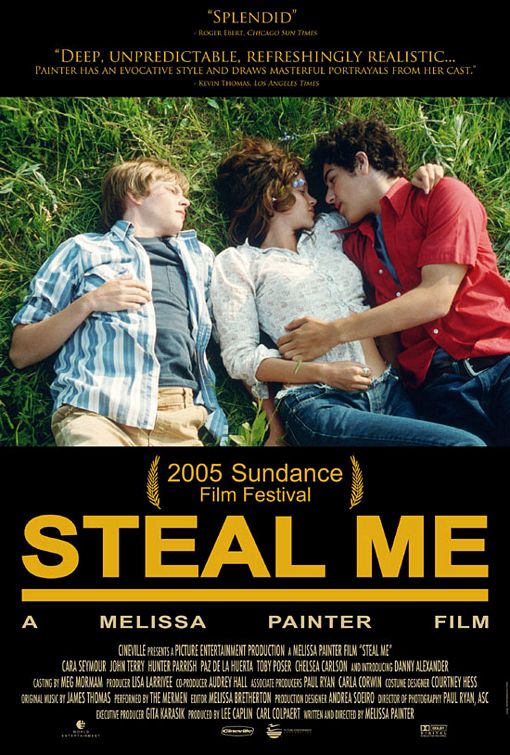
Lawyers--especially of the corporate variety--are far from the Fighters and Alpha People portrayed in Television Dramas and in the Media. We're among the most Fearful and Insecure Creatures on Earth.
If you find this performance review idea preposterous, please ask yourself why. We first mentioned the title's idea in a 2006 post. It attracted attention--but many people thought we were kidding. We weren't.
Some lawyer-writers tried to even analyze it, which was strange, and kind of sad. Lawyers--after actors, junior high kids at that first dance, and aging beauty queens just discovering pharmaceutical speed--have to be the most insecure creatures on earth. They think in terms of scarcity--never in terms of plenty.
Someone else is about to get something that is theirs.
Again, friends, it's time to have the courage of your convictions--and otherwise get "off your lawyer knees".
There are lots of suggestions out there on standards, guidelines and take-aways for associate reviews.
Two are (a) letting staff evaluate co-workers and partners on specific inter-office skills in writing, and (b) reviews of staff based on specific client service standards which ALL employees must buy into (i.e., pay increase for well done client service; hit the road, for the unwilling, clueless).
But we still like this one--which is no more discretionary and arbitrary than (a) and (b) above:
Every day, the client service by associates and paralegals should be good enough to permit those employees to actually steal any client, and take them to another law firm (use "transport" for "steal" if you need the PC professional services term), if they were to leave your shop tomorrow morning.
Period.
If you are not, in effect, willing to go that far with your own employees in instituting and daily demanding client service, you are neither confident about client loyalty (not to mention employee loyalty) nor really serious about delivering superior client service to your clients. You are a client-service fraud.
And your employees aren't in the game; they are not engaged in the work for clients, they are not stepping up.
A true client service culture has to be that "extreme". So let "them that can" whisk those clients out of your firm with a phone call or two; after all, that's only fair to the clients, if they so decide. If you find this idea preposterous, radical or just too disturbing, please think very hard about what you are really doing at your firm, and your real commitment, to build and lead a true client service culture.
At your shop, is "client service" just drinks-and-dinner b.s. for the clients, and website-and-brochure lip service for the public? Or is it real?
Posted by JD Hull at 12:59 AM | Comments (0)
November 14, 2013
Redux: In a Global Services Economy, could "Ease of Use" ever catch on?
Get off your knees. Imagine a Better Standard. Get to work.
"Client Service" for professionals. It got to be a joke almost right away, don't you think? But it doesn't have to be a joke. Client Service. In our view, that huge gap between the promise and the reality has rendered the term nearly meaningless. Even for those who deeply care about the crusade of delivering "it", and see its value for client retention, "client service" eludes the best of us.
We had no idea that building a client service culture and keeping it would be so hard.
It's a mantra we repeat to ourselves, to our employees, and to our customers. We believe that if we say "it" enough, "it" will come. With the best intentions, service providers really do institute--but rarely work at and enforce--regime after regime of Client Service.
The reason: Client Service is much much harder than it looks. You weave your skills into a buyer's "experience" of them, and deliver them together as One Thing. CS is a hard-acquired habit. It never was easy. Never supposed to be easy.
Most of us gave up. So we just talked about "it" in promotional materials and at meetings. We didn't establish and enforce it. (And lots of the time, if we were honest, we'd admit to ourselves we really didn't know what it was. It's just "being nice" to clients, right?)

What if the services sector, now King, competed for clients and customers on the basis of "Ease-of-Use"? Develop and apply ease-of-use concepts for products and goods to pure services? To our clients' services?
And to our services? Law. Accounting. Consulting. Advertising. Newer and non-traditional services, too. Anything where a service (something valuable but "invisible") or product-service mix is part of what you pay for.
In other words, Ease-Of-Use for services.
"Ease of use" is already intuitive to large armies of managers and employees who work in any services industry and don't like Hallmark cards. They already get it. It just needs to be seized upon, delivered daily, and enforced at your shop.
Well, why not? Why wait for the "Who Swiped My Cheese?" crowd to write a few books? Services are pretty much Everything these days.
Services certainly represent the direction global markets now march--in good and bad times.
Consider for a moment just products. In 2006, The Folgers Coffee Company was awarded an Ease-of-Use Commendation by the Arthritis Foundation for its AromaSeal™ Canister. If you're a Folgers® drinker, you notice that Folgers® added an easy-to-peel tin freshness seal (no need for a can-opener), a new "snap-tight" lid and even a grip on its plastic red can.
Folgers® did it for coffee cans. IBM and CISCO have ease-of-use programs for the products they sell. The great companies many of us represent do spend money and expertise on making their goods, equipment and products usable.
Think about your car, your luggage, your TV remote (well, strike that one), your watch and even grips on household tools. Think about Apple, Dell and Microsoft. Each year they think through your experience with their products and try to make it better. Continuous improvement models for "things."
Develop and apply ease-of-use concepts to pure services? Our clients' services? Our services? Sure, why not? It's probably coming anyway, even while it will be infinitely harder to do for services than for products. WAC? has noted before that even corporate clients that sell goods see themselves as selling solutions and not products.
By 2005, services sold alone or as support features to the sale of goods and products accounted for over 65% of the gross domestic product (GDP) in the US, 50% of the United Kingdom's GDP and 90% of Hong Kong's. Even products sold by IBM and CISCO, now chiefly service companies, are part of a services-products mix in which the services component is the main event.
Law firms, of course, have always sold services. And we are a small but powerful engine in the growth of the services sector. We strategize with and guide big clients every day. While that's all going on--day in and day out--what is it like for the client to work with you and yours? Are clients experiencing a team--or hearing and seeing isolated acts by talented but soul-less techies?
Do you make reports and communications short, easy and to the point? Who gets copied openly so clients don't have to guess about who knows what? Is it fun (yeah, we just said "fun") to work with your firm? How are your logistics for client meetings, travel and lodging? Do you make life easier? Or harder? Are you accessible 24/7? In short, aside from the technical aspects of your service (i.e., the client "is safe"), do your clients "feel safe"?
What if law firms--or any other service provider for that matter--"thought through," applied and constantly improved the delivery of our services and how clients really experience them?
And then competed on it...?

(from several WAC? ease-of-use posts beginning in 2007)
Posted by JD Hull at 01:59 AM | Comments (0)
November 12, 2013
Rule Seven: Know The Client.

You're a servant. Whatever your client does, find out about it. And find out in 3-D.
Rule Seven is from our wise, world-famous, tortuous and highly irritating 12 Rules which make their appearance here in some form roughly 50 times a year. Excerpt from Rule Seven:
The client, it seems, actually wants you to know him, her or it. Take time out to learn the stock price, industry, day-to-day culture, players and overall goals of your client. Visit their offices and plants.
Do it free of charge.
Associates in particular need to develop the habit of finding out about and keeping up with clients and their trials and tribulations in and out of the areas you are working in. Learn about your client--and keep learning about it.
Devise a system to keep abreast.
Posted by Holden Oliver (Kitzbühel Desk) at 01:00 AM | Comments (0)
November 11, 2013
The Rules
.jpg)
1. Represent only clients you like.
2. The client is the main event.
3. Make sure everyone in your firm knows the client is the main event.
4. Deliver legal work that changes the way clients think about lawyers.
5. Over-communicate: bombard, copy and confirm.
6. When you work, you are marketing.
7. Know the client.
8. Think like the client--help control costs.
9. Be there for clients--24/7.
10. Be accurate, thorough and timely--but not perfect.
11. Treat each co-worker like he or she is your best client.
12. Have fun.
Copyright 2006-2013 John Daniel Hull. All Rights Reserved.
Posted by JD Hull at 08:32 PM | Comments (0)
October 28, 2013
Keith Lee's The Marble and the Sculptor: We'll be buying a bunch of copies.
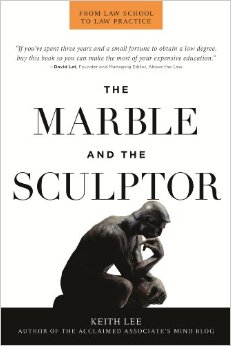
The Marble and the Sculptor: From Law School to Law Practice.
Posted by JD Hull at 04:07 PM | Comments (0)
October 10, 2013
Feeding the Monster: "Do you really need a Memo on that?"

Can we stop feeding the Monster every time we get the chance? Some legal memos, cases summaries and strategy documents "you can bill for" do seem like winding up without ever really pitching. There are times you don't need to scorch the earth. To save time, money and relationships, just answer the question. Talk everyone out of the Full-Monty.
Do the research, take a stand and, if possible, write it all up in a very short file memo or--even better--in the document you are actually going to use: the pleading, the motion, the response, the letter, the instrument. Even if you don't end up using it, what the draft document "looks like" helps everyone make the next decision, and take the next step. You can still back up critical points with more small discrete memos, showing research and/or thought process.
Skip the 10-, 20- and 35-page memo. Try to make memos you do do be shorter, and reflect the group's cumulative thinking on that issue or project. And aside from necessary opinion letters, and really needed formal white papers, don't offer to write or write a cover-everyone's-ass and/or comprehensive "all-legal-theories-and-strategies" memorandum unless your in-house lawyer really wants it. And then try to talk her or him out of it.
The client's call, of course. But you can lead a little.

Posted by JD Hull at 12:59 AM | Comments (0)
October 02, 2013
Lawyers Aren't Royalty: See Rule 9 in our 12-Step Program for the Service-Challenged.
If you think "returning phone calls promptly" and "keeping the client informed" is a big deal, you are flirting with mediocrity. Get standards that work, make money and keep great clients coming back. See Rule 9 in our 12 step program for The Service-Challenged: "Be There For Clients 24/7".

T-shirt by MadLizzy.
Posted by JD Hull at 11:59 PM | Comments (0)
September 27, 2013
Rule 2: Clients and Customers--Not You, Your Firm or Your Employees--are the Main Event.

It's Obvious. You shouldn't need your Adderall to hold onto this one 24/7. It's easy here to get your mind Right. See Rule Two: The Client Is The Main Event at our annoying but true, way-righteous and always-correct 12 Rules of Client Service.
Posted by JD Hull at 06:35 AM | Comments (0)
September 14, 2013
Atonement
Long ago, on the two Jewish high holidays, my brother and I would be two of a very few gentile students who attended classes at a school called Braeside in the north shore suburbs of Chicago. Literally every friend we had observed those holidays. And they were not in school those days. So we just played dodgeball or other games most of those days. At nine or ten years old--and just the rare neighborhood Belfast Protestant feeling a bit left out--I tried to at least stay on top of what the days meant. Yom Kippur, the day of atonement, was the one that stuck out most in my mind. It is of course observed today. It intrigued me. It still does, through this and similar traditions, and it is certainly a cleansing, liberating and purging notion. Atonement. Forget about perfection here. Or being comprehensive. Pick one amend to make to someone you've screwed over or barely slighted, or pick one person who makes you uncomfortable for any reason, and face them. Work is a great place to start--but I am sure you can do better than that. Face them and get it off your chest. You got the stones for that? Because no matter what reaction you get, you are just doing it for you, really. And that is all that matters today. Get busy.

Atonement. It's an idea for everyone on the planet. One place to read about it is Leviticus 23:27-28. Above: Jerusalem's Wailing or Western Wall, where construction started about 20 BC.
Posted by JD Hull at 11:19 PM | Comments (0)
September 09, 2013
Got a Customer Experience Idea for You Right Here: Change the Way Clients Think About Lawyers.
Why? Because even the most sophisticated clients think that too many of us are still clueless dorks who don't help much. See Rule 4: Deliver Legal Work That Change the Way Clients Think About Lawyers from our annoying but sturdy 12 Rules.

Is your firm the Best-Looking Maiden in the Lepper Colony?
Posted by JD Hull at 12:59 AM | Comments (0)
August 26, 2013
The Horror, The Horror: Perfectionism.
The Dweebs. The Dweebs. Perfectionism is the downside of Type-A. While a great starting point, and wonderful instinct, the drive to get things absolutely 100% right in every gory detail is also a curse: of eldest children, professionals, knowledge workers, most lawyers, all spouses, your Mom, and the geek classes, or Techwazee. Ah, devil perfectionism. The horror, the horror. Too much, and you need rehab. Your colleagues start questioning your judgment. Listen up, Justin: Clients 99% of the time are not paying you to be perfect. They don't want it. Be excellent, not perfect. See, e.g., "Rule 10: Be Accurate, Thorough and Timely--But Not Perfect".

Posted by Holden Oliver (Kitzbühel Desk) at 12:00 AM | Comments (0)
November 25, 2012
In Sweden, Customers Now Drive Selling with Extreme Cat-Diving Ad Campaigns.
It could happen--and it did. See Sarah Etter's piece in Monetate.
Posted by JD Hull at 11:01 PM | Comments (0)
November 23, 2012
Vary the Customer Experience, Tweak the Markets, Fly the Colors: Do Instead Small Business Saturday Tomorrow.
Part aggregator, part pundit, Business Insider started up in early 2009 and is now edited by come-back kid Henry Blodget. We follow it here because of its breadth and generally non-partisan coverage of business and politics. Today, on Black Friday, BI has this suggestion for tomorrow in "It Makes Way More Sense To Shop On Saturday Than Black Friday", by Jill Krasny and Mandi Woodruff, who succinctly but deftly give a push to AMEX's Shop Small campaign for small business, launched in 2010. We agree. Stay home today. Go small Saturday. And to their reasons we would add these two. First, almost all businesses start up small. Many of them fail in the first few years--but more of them create jobs. Give them a shot. Second, if this is the Age of Nearly Limitless Choice for buyers, let's start acting like it. Go small, and help stir the cauldron a bit, folks. At least try it for one day.

My all-time favorite: Roland's of Capitol Hill, 333 Pennsylvania Ave SE.
Posted by JD Hull at 02:48 PM | Comments (0)
October 10, 2012
The Customer Experience: Should retail buyers just start creating their own?
When the seller won't give the customer a better service alternative or a choice, and its competition is just as bad, nothing happens until customers at a "store level" pipe up. You need a bit of a revolution to change bosses and companies who have decided they do not need to change.
It could be on store floors or phone lines--but lots (if not all) of us retail customers daily deal with companies that have decided (a) to never exceed your expectations and (b) to never give you an easy choice. Switch stores or banks, you say? Most of us know that the competition is just as bad.
At this blog, we believe that these kinds of companies need daily en masse demonstrations of acting up. Don't worry. Your message will eventually get relayed from thick store clerks and forms of plant life called "customer service representatives" up to a few bosses, officers and board members. But we have got to get off our knees. Don't completely lose it with them, folks. No violence, of course. No yelling.
You will, however, need to try to make clerks and CSRs uncomfortable and a bit anxious about your unhappiness. They, too, want to work in happy shops. Even though Western logic often fails to reach them quickly, do have something clever or reasonably intelligent--but strong--to say. Make sure you have some fun, though. Stores are great because you can do it in public. "Jason [from nametag], I have all this money with me and I need to buy something you sell here--are you ready to help me yet?" Stuff like that. But say it loud so other customers can hear you and join in.
Folks, you are the customers, buyers, fiduciaries, clients. Do something.
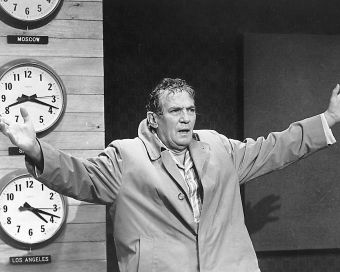
Not going to take it any more: Peter Finch as Howard Beale in Network (1976). Finch won a posthumous Oscar for the role.
Posted by JD Hull at 11:32 PM | Comments (0)
October 08, 2012
The Customer Experience: Can it get much worse?
Paying customers at counters and on phone lines everywhere should start to act up--and demand better service and treatment. Maybe get a little loud?
Let's talk about retail customer service.
In America, my customer service retail stars have been GEICO, for auto insurance, and Enterprise, for car rentals. Each has been consistently good everywhere and in every respect--and they should be studied. And that's about it. Customer service retail nightmares have been American Express, most stores, especially Staples (none of the clerks I've met could care less), Starbucks (nice try but the hospitality is generally fake in every country), Circuit City (now defunct--and good riddance), every large bank (they apparently have trouble hiring good people; most retail people they do hire treat nearly all customers--i.e, their fiduciaries--like troublesome peasants and serfs unless you are charming as hell or have the soul of a bootblack) and just about every "not-GEICO" insurer.
In the cases of all of the foregoing but GEICO and Enterprise, there are of course some good, but mainly bad, moments. With respect to my nightmare companies, customer service--which no one said is easy to institute and keep up--is a cynical joke. I would have far more respect for them if they just admitted they simply do not care. In the meantime, I would very much like to see customers at counters and on phone lines everywhere start to act up--and demand better service and treatment. For example, you are the customer, and if the store, bank, insurer has made a mistake, they should correct it proactively rather than giving you another place to go or another phone number to call.
If they do not, get a little loud, folks. Tell them you expect better; you are a long-time or merely prospective customer, but one with money. You came ready to do more business or that all-important "first business", which is a valued "moment of truth" for every seller. And, hey, you don't call them back during regular hours. They take a message and call you back, Jack.
At some point, I would love to see more chronic service failures to result in business failures--along with a way to measure it. In the meantime, all we have is this little gem I came across yesterday by a British customer service watchdog/publication called Customer Think. The article is "Customer Experience: Why haven’t more retailers gone bust?" by by Maz Iqbal. Some interesting reporting and anecdotes here. The Answer to Maz's question? It's because the retail customer in the West is too jaded, polite and wimpy to call counter clerks and store employees out on the carpet or to let "customer care employees" have it when they are being jerks.
The Solution? I think customers should pipe up--and get specific but loud and rude, if necessary. To get the message through to management--granted, dealing with some retail employees is like talking to, say, rocks or very simple plant life--a little street theater may be in order. Folks, you are the customers, buyers, fiduciaries, clients. Demand service. Don't apologize. Be loud about it if you must.
.jpg)
Customer Experience: Is it time for acting up?
Posted by JD Hull at 11:16 PM | Comments (0)
September 21, 2012
The Miracle, Ecstasy & Cost-Efficiency of Repeat Business: General Motors.
In The Detroit News: "GM To Target Product Loyalty". Excerpt:
Alicia Boler-Davis [GM Vice President for Customer Experience] said GM has launched initiatives to improve customer experience such as sending Chevrolet dealers to train at the Disney Institute; mystery shopping sales and service at dealerships; and engaging consumers through social media.
Each is aimed at ensuring customers are happy with their complete ownership experience, Boler-Davis said.
Attracting new customers is five times more expensive than retaining one, she said.
"It's not rocket science," Boler-Davis said. "You build them right, and you treat people right, and they will come back for more."

My college classmate and former GM chief, the talented and persistent Rick Wagoner, having a customer retention epiphany circa 2009.
Posted by JD Hull at 10:37 PM | Comments (0)
September 17, 2012
Great Customer Service? Superior Work? You Just Give Blood, Jack.
That's. All. There. Is. Jack.
Posted by JD Hull at 11:39 PM | Comments (0)
September 04, 2012
Back to School. Back to Work. Back to Basics. And Rule One.
In most commercial law practices, you are delivering unique services. If you do not respect, admire or at least or "like" your client, the client and your firm are both compromised. You cannot do your best work for that client. Get that customer to another firm. Find another customer that shares your firm's values. See Rule One: Represent Only Clients You "Like" in our 12 Rules of Client Service.

Posted by JD Hull at 11:31 PM | Comments (0)
August 26, 2012
Canadians Get Client Service. Yanks & Brits Go Through Motions.
Clients don't care that you're smart--or that you're nice. So if you're stymied about what Client Service really is, see the Canadian Bar Association's Practice Link and particularly "Client Relations: Creating Loyalty in Your Best Clients", by Susan Van Dyke. Susan's piece cites a Quebec-based study which found
personality (29%), proactivity (18%), and work management skills (16%) were the top three attributes respondents valued. It also found an “irreversible shift of legal services toward an advisory approach,” supported with the following respondent comment:
“Clients are better informed and more demanding. When faced with equal ability, they will opt for a better understanding of their business situation and thoughtful proactivity based on innovative ideas. They are looking for a partner who is ready to get involved in their success, with whom they can develop business solutions. They do not want to deal with the moods of their outside counsel."
One senior corporate counsel interviewed in the study said:
We want to feel they [outside firms] are interested in our business. We are not an interesting legal case. We want a partner to find business solutions along with us.
.jpg)
Comely Ms. Canada: She still rules Western Client Service models.
Posted by Holden Oliver (Kitzbühel Desk) at 11:59 PM | Comments (0)
August 07, 2012
Hooters: Personally, I don't like to watch. But apparently there's a nice market for it.
I hope Hooters, the restaurant chain, makes it.
I've only been to a Hooters once, and I can't see its appeal. (Note: At the one a friend took me to in Pittsburgh several years ago the women who worked there hardly rocked my world; they were a tad portly and I would never have flirted with any of them on an airplane or at a party.) I think anything interesting and fun in this world--sex, sports, working, practicing law and life generally--is exciting and valuable to me only if I can participate in it directly or (at a minimum) learn something from it so that I can participate later. So Watching Anything has not cut it for me much. I watch little TV. I don't think strip joints are sexy. And I think porn, in the main, is sad. I love sports, too. I would just rather play them than watch them. There are quite a few athletic things--team sports or solitary--you can do your whole life.
But I loved reading (a form of watching, in this case) a few years back about the reaction my local community had to successful plans to start a Hooters here up on a hill near Interstate 15. Many of the transplanted Midwesterners in San Diego County (that is a big part of the population here) often hate things like Hooters, medical marijuana and anything that might smack of New York, LA, urban multi-culturalism or the often "distasteful" side of commmerce, marketing or the First Amendment. While my own Midwest-based family is a culturally liberal tribe of mainly moderate Republicans, I grew up with and do still like the more reactionary Heartland folks--but they often blow tubes over stuff like Hooters. And it's comical. I am entertained. They generally lose those battles. That, folks, is something I will watch.
Meanwhile, Hooters, the restaurant chain, obviously has been onto something all along--even while I don't get it. It is reevaluating things. See in Time "Hooters’ Big Experiment: New Menu, New Decor and a New Target Audience".
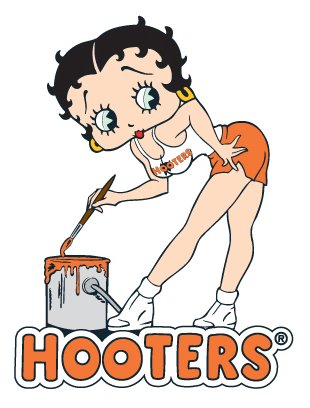
Hooters Plans for The Future.
Posted by JD Hull at 12:42 AM | Comments (0)
July 29, 2012
The 12 Rules of Client Service: Sorry, Amber & Jason. But you just don't get to have a "Bad Day" anymore.
Born right here in 2006, and part of Hull McGuire cosmos since the 1990s, The 12 Rules of Client Service try to align client and lawyer interests and reduce reproduction of Law Cattle in the Legal West. They do a good job of that. Prescient. Accurate. Inspiring. Irritating. Even upsetting. They are not about you. Ever. The rules require discipline, persistence, attitude and a mind-set of enforcement. And Big Ones. Have a nice day.

Sorry, Kids! But you just don't get to have a "Bad Day" anymore.
Posted by JD Hull at 11:50 PM | Comments (0)
July 13, 2012
At Shaun Belding's Blog: "Lose the Rules."
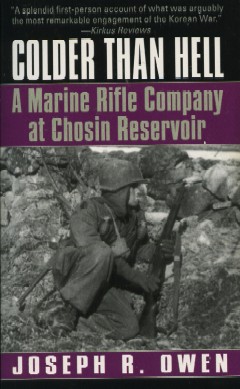
Some companies still engage Customers in Service Hell. Canadian consultant Shaun Belding has a new post called "Customer Service Tip: Lose the Rules" which, while common sense in approach, reminded me of how many companies have created a we versus them culture about customers. Go to the post for one of the most alarming anti-customer stories you'll see. Here's an excerpt (yes, just partial) from the underlying horror that prompted Belding's piece:
"Please follow these steps to ensure your return goes smoothly
1.Package your item(s) in the original manufactures packaging
2.Package in a shipping box with an adequate and sufficient amount of internal packaging
3.Include any/all warranty cards and parts that came with the item(s)
4.Include a copy of your invoice which clearly indicates the nature of the problem or why it is you wish to return your item(s)
5.Call or Reply to this email with the tracking number of the return, and let us know if you are looking for a refund or a replacement if you haven’t in the initial call. (We are also able to repair these items instead of replacing if a warranty item)
6.If you would like to add any item(s) to your RA please call/email us and let us know what items(s) and what order they refer to
7.Put your RA# on the outside of your return shipping box.Please DO NOT do the following as this will result in a 15% deduction from your refund:
1.Deface the manufactures packaging in anyway. This includes writing on the item or the packaging or taping anything on it as well
2.Use or assemble the unwanted product, we do not resell products that have been used and therefore can not return these products for refund
3.Improperly package your returning item(s), in turn your return’s manufactures packaging or the item itself arrives damaged( Broken items will no be refunded)
4.DO NOT ship your return in the original manufactures packaging
5.DO NOT mark your package as return to shipper with UPS
If this is an unwanted or a warranty item return, you will have to pay for the return shipping using the carrier of your choice. It is imperative you request a tracking number from the carrier, as Big Al’s is not responsible for delays due to not obtaining a tracking number. Unwanted returns are not eligible for exchanges of different products, they will be refunded and at any time you can go ahead and purchase the item you wish to buy."
Belding comments:
Make it easy for customers to do business with you. The more hoops you make your customer jump through, and the more rules you have for your customers to follow, the less they will enjoy their experience with you.
Posted by JD Hull at 01:14 AM | Comments (0)
July 09, 2012
If you can't shimmy like Rufus Thomas, our firm can't help you.
Try the law firm down the street, Jack.
Posted by Holden Oliver (Kitzbühel Desk) at 11:59 PM | Comments (0)
June 15, 2012
If you come on like a dream.
The 1993 song "Remedy" by The Black Crowes is one of the ten best chancery songs ever cut.
If I come on like a dream?
Would you let me show you what I mean?
Posted by Holden Oliver (Kitzbühel Desk) at 11:59 PM | Comments (0)
June 12, 2012
The Wonderful Twos: One employee per client project is rarely a good idea.

"Identical Twins, Roselle, New Jersey, 1967", Diane Arbus.
Customers need to know you are authentically and earnestly "there". One employee per project is rarely a good idea. Think in terms of twos. Have a second person (at least) for everything.
Two (2) Things about Thinking in Terms of Twos:
1. Staffing. If you are a services professional, any project you do for a customer, buyer or client should have at least two (2) professionals assigned to it. It doesn't matter how small or big the project is. As your co-workers are often traveling, in meetings or are otherwise unavailable, customers who call or e-mail deserve to have more than one member of your office 100% knowledgeable and current on any project. If it's a small matter, just don't charge for it. Trust us on this.*
2. Written Communications. Start this regime on both ends of your communications. Get both your staff and customers to buy into it. Invoices, letters, e-mails or Anything Written--to or from your office--should always be addressed to (customer end) and received by (your firm's end) two (2) human beings. In addition to the reasons given above in Item 1--i.e., for communications received by your office--writings by your firm TO your clients or to any of their agents should copy two (2) humans. Or you will be an Administrative Screw-Up. Reason: Main contact points for customers, buyers and clients also get busy and unavailable. So copy one other human who assists the contact, client rep, GC, in-house person or accounts payable folks whenever you can do it.
It's common sense. But if you are a professional services person--e.g., accountant, lawyer, actuary, mortgage broker, stock broker--you likely don't have any common sense. And you know that. Sorry, Jack, but (gulp) it's just true.
Again, trust us.
*If customers actually need to frequently call you to check on things, you are likely a Customer Service Screw-Up. The work is never about you. Buyers of professional services should rarely have questions. (Any question they have you can and should anticipate 99.5% of the time.) But if they DO have questions--about either an ongoing project or in particular a new matter they inquire about--have two (2) people ready to respond. Customers need to know you are authentically and earnestly "there".
Posted by JD Hull at 11:59 PM | Comments (0)
April 04, 2012
"We love Whole Foods but shop at Wal-Mart". Discuss.
Read "We love Whole Foods but shop at Wal-Mart" by MSNBC's Allison Linn. Quality/Customer Service takes on Price/Convenience. See any analogies in the arena of professional services? The arena of higher-end clients themselves?

Reuters/John Gress photo of Chicago Wal-Mart store in January 2012.
Posted by JD Hull at 11:59 PM | Comments (0)
November 06, 2011
Lawyering: Why not invoice some hourly work promptly every 2 weeks?
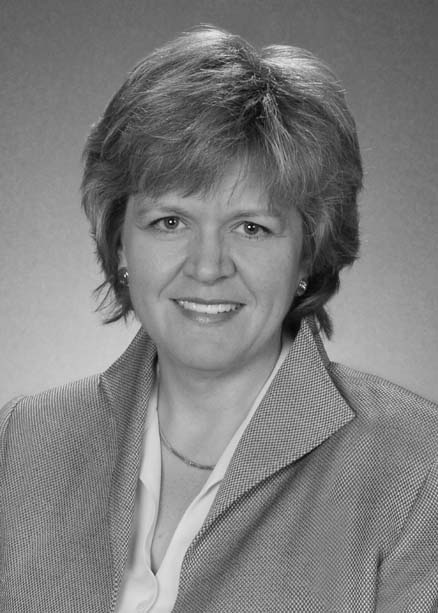
Sound ideas: Julie McGuire
Billing twice a month keeps the client attuned in real-time to the actual economic demands of the project--and helps the client plan.
Real time billing: invoice the client promptly twice a month. Like everyone else, we expect the "future of law" to include different billing alternatives. However, by that we mean the following: billing the same client different ways depending on the difficulty and intensity of the work.
Generally, we see in the future more flat fees for "commodity" work. And we believe hourly rates will continue to dominate for complex and novel projects--particularly where the relationships are longstanding and solid between in-house departments and outside law firms.
Case-by-case judgments about "value"--not hours, flat fees, or hybrids--will drive most engagements.
One idea comes from our Pittsburgh partner and co-founder Julie McGuire, who does transactional and corporate tax work globally, and it seems to work especially well for intense or "fast-moving" projects--and when you are billing by the hour. Julie's done this successfully for transactional work, and some arbitrations, for years.
It's simple. If a new or existing client has litigation or a transaction which is particularly intense and time-consuming--especially in the initial stages--depart from your fee agreement or usual practice with that client and at least temporarily invoice the client every two weeks.
(That means you can't wait long to get the bills out, though. Give yourself three business days tops.)
Obviously, you should check with the client and get permission. But you are not likely to get shot down.
Even a gung-ho sophisticated corporate client or GC you've serviced for years--which if accustomed to seeing over and over again monthly bills for day-to-day work in the, say, $15,000 to $30,000 range--experiences a kind of sticker shock when the bill goes suddenly to $30,000, $60,000 or much higher, even if it's only for a short time. The "jump"--no matter what numbers are involved--triggers a reaction.
Billing twice a month does two things: (1) keeps the client more attuned in real-time to the actual economic demands of the project (and lets the client plan) and, (2) assuming that the GC or other client rep is seeing work descriptions on bills that show value, effort and the range of things necessary to perform the litigation or deal, the details and intensity of the work are more "present-to-mind", better understood and more fully appreciated.
In other words, the invoice becomes more of a tool to impart a running report on what you and the client are doing together--and a better picture of your real value to the client on that project.
(from past posts)
Posted by Holden Oliver (Kitzbühel Desk) at 12:59 AM | Comments (0)
"American Express: We can't help it. We hate customers. And we're complete assholes."
The following Customer Service Tip of American Express (its retail arm) comes to us via a youngish California employee of ours, and valued Amex cardholder (since 2001). She will remain, for good reasons, nameless.
The CS tip? The next time your firm's client--let's say Walmart; however, it could be any valued publicly-traded outfit for which you have worked for at least a decade--is due to an oversight more than three (3) days late paying your firm's invoice, by all means, do the following:
1. Call the Walmart GC, in-house lawyer or other Walmart exec your firm answers to in Bentonville, Arkansas, preferably on a Monday afternoon, around 4:45 EST, preferably the day after Easter Sunday, after Super Bowl Sunday, after a long weekend or as soon as Mardi Gras is over.
2. Don't leave a voice message. Keep calling.
3. The exact moment the in-house or client exec answers the phone, ask your long-time client rep who approves your invoices "Do you mind terribly, _________ [use rep's first name], if my assistant Nadine and I tape-record this conversation? We're collecting a debt." Then talk.
4. Important Note: Be poised to replace Walmart as an institutional client--perhaps with its Visa or Mastercard counterpart--as soon as practicable. Just in case.
.jpg)
American Express. We Can't Help It. We're Assholes.
Posted by JD Hull at 12:00 AM | Comments (0)
November 02, 2011
Is the Customer-Client Revolution finally starting?
Because we--and no doubt many others, both friend and foe--would love it if there were no need for this damn blog. What if clients insisted that lawyers perform? See by Bruce Horovitz in this morning's USA Today this one: "Consumer Gripes A Growing Force".
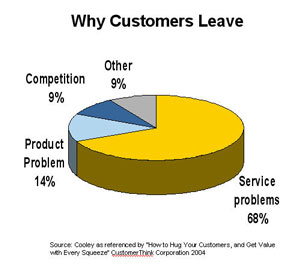
Posted by JD Hull at 01:21 PM | Comments (0)
October 14, 2011
Hot Legs, Too: The Best Damn Customer Service Blogs & Websites.
Quality Content. Class. "Legs". Solid relationships with customers, clients and buyers are every business's real assets. Great customers are always up for grabs--and they're worth safeguarding 24/7. You do great work for them; they stay.
White collar dweeb-speak calls this a "win-win". We call it "Working". And it's an honor.
You want to make it through good and bad times? Below are blogs, sites and other resources which either are dedicated to or regularly feature useful models, ideas, best practices and tips on effective customer service. Or they talk and write about service like they really do get it--and deeply care about customers, clients and buyers. These sites have endured, too. They have Big Legs.
We owe much to each one of these, many of which were already established when WAC/WAP? started six years ago. Again, we use the term "customer service" broadly here. Certainly we've left out--out of ignorance or inadvertently--some fine sites. So let us know which ones they are.
Since our last update of November 30, 2010 we've added only two sites. Both are by relatively new lawyers: Keith Lee and Eric L. Mayer. Each has a big appetite and matching instinct for the hard Art of the Client:
Posted by JD Hull at 11:59 PM | Comments (0)
July 26, 2011
Redux: "Liking" Your Clients.
I'm no Stephen Covey. I suspect that burning inside each employee is an overwhelming ambition to Get Home, Eat Twinkies and Watch Wrestling.
Life's short. Work is important. If your work is not mainly fun, find a new gig. Work at that. Many, if not most, lawyers, I am convinced, simply don't even like what they do for a living. They went to college, law school, got married, had kids, some hard knocks.
And then they watched in slow-motion horror while their choices in life hardened around them. Education, and professional schools, are supposed to set you free--not land you in an upper-middle class prison of dashed hopes and failed plans.
Happiness, right? That was the main idea.
What business is it of mine that lots of lawyers are miserable? Answer: If you want to have a half-assed life, fine. I've come close to that myself--and fought and muddled my way out more than once. But please don't hurt your clients. And please don't repel people from entering and staying in the profession who might make fine lawyers except for the bad example set with your defeat, angst and misery because you don't like your career.
And all that disenchantment translates into settling for second-rate work, and "mailing it in"--at best. That's the worst of it. I see it every working day, especially at other law firms. You just don't love what do, folks.
You don't even like It.
Look, I am no Stephen Covey. I am less wise, less nice and, unlike Covey, strongly suspect that smoldering inside each employee, even well-educated and highly-paid ones, is an overwhelming ambition to get home, eat Twinkies and watch wrestling. But liking your work, in all but the rarest cases, makes your work better.
The quality of your work is, I think, perfectly--almost mathematically--commensurate with your attitude and your degree of contentment at work. You don't like work. So you do mediocre work. You dumb down hard things. Not even bad work--just barely adequate work. (Your clients actually pay you for that?) It makes me want to secretly send you an application for employment at Starbucks. It makes me angry.
If you're a professional, you need to like what you do. Period.
So maybe "liking" your clients helps? Yes--I think it does. See Rule One from our infuriating-but-accurate 12 Rules. I am not the only one who's noticed. In November 2008, I had the honor and pleasure of finally meeting lawyer-consultant Tom Kane, as well as his talented son, a new lawyer, on their turf on Florida's brilliant Gulf Coast. See at Tom's Legal Marketing Blog this one: "Enjoy Your Practice and Your Clients". Excerpt:
The solution: spend your marketing and business development efforts and resources seeking the legal work and clients you do enjoy. Don't waste your marketing time or dollars on the rest.

Above: Despite an often serious demeanor, Tom Kane can help you get your "fun" thing on.
Posted by JD Hull at 10:59 AM | Comments (2)
June 07, 2011
Does "Client Service" Mean "Being Nice" to Clients?

Above: Holden Oliver's squeeze-of-the-week takes liberties with The Only Nice New Yorker.
So it's a Recession. Fine. Still, get up off your knees. Quit bottom-feeding. Stick with sophisticated users of legal services. Don't lower your rates. And think about Value.
The answer to the question is no. "Being nice" to clients is not the goal or point of client service. We didn't launch What About Clients? in August 2005 because yours truly is loved by all, and wanted to show you the utility of charm, niceness, or Mr. Rogers-like skills, with those we pitch or represent.
We started it because even the better and higher-end lawyers have remained "lawyer-centric", haven't a clue about what good clients think about, and treat even to-die-for clients like troublesome peasants.
And because, at the time, no one in the global legal or business community, other than Chicago's Patrick Lamb and the Canadian Bar Association, was talking about CS compellingly by (a) actually putting clients first, and (b) explaining just how to do that.
Marrying substantive skills to the Art of Client Service is the way to get and keep good and great clients. Not all clients.
We at WAC? (now of course WAP?) believe we know what CS is: it's thinking about and acting on the obvious client service aspects presented by everything you do for those clients in your services firm (but no one else thinks about), and disciplining everyone around you in your firm to do it with you. You build a service culture from the ground up from which all else flows, right down to that last opinion letter or Rule 12(b)(6) motion your firm wrote, client by client.
Everyone around you must buy into it--or leave, and leave quickly. Period. I am not even sure you can teach it.
The truth, though: most clients are not worth the trouble of representing.
Unsophisticated clients are legion, "evil" and hold you back. A client with a real legal problem to be solved--and money in hand to cover your labors--is not enough. A "good client" to my law firm and to this blog is a business, preferably a publicly-traded one, or at least large and experienced enough to be a sophisticated user of legal services. If the would-be client does not have a General Counsel (i.e, at least one in-house counsel), that's almost always a bad sign. We are not as interested.
The prospect of a new client is always an exciting thing. I'm reminded of a piece for his ongoing "Legal Spectator" column in the Washington Lawyer that D.C. trial lawyer Jacob Stein wrote years ago, which captured it: how a new client can thrill you, playing with your imagination, and firing your curiosity. "What's this about? What can we be doing? Who here should work on it?" It is part of the pleasure and joy of lawyering.
But once we at my firm--we represent established businesses--learn that no GC will be involved, we become disappointed. We pass. We would rather spend our time expanding the work for the clients we have--or look for a new one with a solid in-house department after researching that company very carefully. GCs are of much higher quality than when I began practice in the 1980s; these days, they are smarter, more confident, better paid. They (a) give you interesting work, (b) know the value of good legal services (and how hard good lawyers work), and (c) have resources and often very fine ideas. Sticking with them for our firm has been a good rule.
Don't get the wrong idea. Any would-be client who calls your firm--even flaky ones who you don't want to even talk to--should be treated with respect and routed to someone who can help him, her or it. Don't make them think lawyers really are heartless schmucks. And remember, those callers and inquirers are clients (even if just temporarily) the moment they disclose facts about the matter. Your duty at that point is more than just one of good manners, getting them to the right lawyer, and showing some class.
But, for my firm, with exceptions (and not many) a good general rule is: no individuals, no start-ups, no small businesses. Individuals (even rich ones) and start-ups with good ideas are a pathetic pain in the ass 95% of the time. Small businesses, even if they can afford you, are even worse. Be very nice to all three--but avoid them. The Reason: These types of "clients" who come to your firm don't "get" good lawyering. They can't distinguish your firm from the generic, uninspired, cookie-cutter, go-through-the-motions but well-meaning law firm down the street. They don't "get" business generally. Even many business clients don't even "get" the business they are in, and are trying to operate.
This group--both individuals and businesses with money in hand--will only frustrate you. And the group is huge; it accounts for perhaps 95% of all clients everywhere.
I myself was one of these creatures two years ago--at least to the guys who painted my house in California. I didn't know anything about house painting, had no clue about price or quality, and didn't know how to evaluate what was proposed or done for a very long while. (By the way, they did great work, despite my interferences.) I was admittedly ignorant, suspicious, and probably a world class jerk. I asked questions, most of them rudimentary. But I likely frustrated them because I was so dumb. Your corporate law firm that you work in can shoot higher than unsophisticated "punters"--just as the house painters (who also did commercial work for contractors who knew what to look for in a good client) could get way better clients than me.
Client Service is Putting Good Clients First--and never putting up with clients who don't "get it". The biggest mistake (#1) I've made practicing law as a lawyer has been taking on projects for unsophisticated clients who really need help; my heart triumphed over my head. My second biggest mistake? Not firing the "bad" client faster. A "bad" client is a miserable, tortuous hell for you and yours. Bad for morale, bad for business, no fun to represent. Life, folks, is short--and with the right people, even a firm with 5 to 25 lawyers can do 90% of the type of work done by mega-firms (the quality of which seems to keep declining as they grow by diluting their gene-pools), and do it better.
But bad clients (i.e., most clients, even very rich ones) still call. They deserve respect--but they are stone nightmares over time, especially if you do complex corporate things at your shop. But I'll refer them to you. Have fun.
*Getting yourself out of the Yellow Pages and off similar lists is a good way to cut down on "bad" clients.
(from earlier JDH/HO posts)
Posted by JD Hull at 12:00 AM | Comments (0)
May 18, 2011
Scott Greenfield: Clients, Bonding & Lawyering.
On the one hand, there's a critical need for trust between lawyer and client. On the other, there's a critical need for detachment. A defendant feels the former.
Over at his celebrated Simple Justice, a Not-For-Weenies venue, do read Scott Greenfield's Too Close For Comfort, preferably before The Rapture obtains.

Above: Greenfield before 2003 industrial accident.
Posted by JD Hull at 11:33 PM | Comments (0)
January 18, 2011
Rule Three: Ensure Everyone Knows That The Client Is The Main Event.
Rule Three: Make Sure Everyone in Your Shop Knows That The Client Is The Main Event. The truth is that they probably don't.
.jpg)
Above: Generic dweebs some U.S. firm has agreed to pay.
Posted by JD Hull at 11:59 PM | Comments (0)
December 17, 2010
The Ritz
Puttin' on the Ritz. Two years ago Texas-based Cordell Parvin took his Law Consulting Blog to the Ritz Carlton and learned a few things about customers, clients and buyers. We just love the name Cordell.
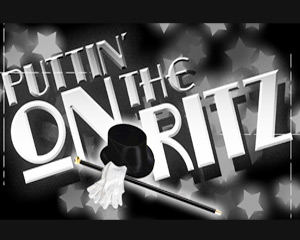
Posted by Holden Oliver (Kitzbühel Desk) at 12:00 AM | Comments (0)
December 09, 2010
24/7
It's not about the lawyers anymore. See Rule 9: Be There For Clients--24/7. And if you have great corporate clients, it all works out. It's the least you can do for them.
Posted by Holden Oliver (Kitzbühel Desk) at 12:01 AM | Comments (0)
October 07, 2010
Wow. I'm blown away. Way to return that phone call!
The most beautiful maiden in the leper colony. Why try "to exceed expectations" when the overall lawyer standard is perceived as low to mediocre? Can we step up and set new standards? Rule 4: Do Work and Deliver Services that Change the Way Clients Think About Lawyers.

Posted by Holden Oliver (Kitzbühel Desk) at 12:59 AM | Comments (0)
October 05, 2010
If you are working, you are marketing.

When you work, you are marketing. You are constantly sending the customer small but powerful ads. Rule Six comes from our hopelessly arrogant and deeply infuriating but consistently right, practical, and world-famous 12 Rules of Client Service.
Posted by Holden Oliver (Kitzbühel Desk) at 11:59 PM | Comments (0)
September 22, 2010
Almost overnight, American CPAs have started to drink, do drugs and philander.
.jpg)
Columbia Pictures
Not really. But those folks do seem to be getting out more.
Why are we talking about accountants here, anyway? Well, it's good to escape your own neighborhood--and on a regular basis. A real road trip--like drive from DC to Charlottesville or Chapel Hill. Or at least a virtual one. Like take a vacation from lawyers. Consider meeting engineers, actuaries, doctors, sales people, chimney sweeps, cocktail waitresses named Merle--you get the idea.
And accountants. As with lawyers, real accountants (i.e., they love what they do) put clients first. As a friend of ours once said:
Once I start gazing at my clients and stop gazing at my wallet, I have a life. Because I am doing what is important. Amazingly, my wallet takes care of itself.
Accountants, also like lawyers, are reputed to be careful and a bit risk-averse. And self-important and boring. But we never completely bought that (about the accountants, anyway). For many businesses, their day-to-day accounting firms are more cost-efficient, solution-oriented and productive than their outside law firms.
You and yours starting a business and putting your money, sweat and ideas into it? You aim to be the new Apple, new Starbucks, new P&G? Well, that's just great. Do hire both a CPA and a lawyer you respect and trust--you need both kinds of consigliere--and do it well before you incorporate. But find that CPA firm first.
Our fellow Midwesterner Michelle Golden at Golden Practices likes good practicing accountants, too. She's noticed all the accounting blogs sprouting up (nearly 200 so far).
Posted by Holden Oliver (Kitzbühel Desk) at 11:59 PM | Comments (1)
September 01, 2010
About Dan Hull
I started  What About Clients/Paris? in 2005 because the level of service at even the best global law firms is often inattentive and erratic, and even where the service is sound, it can still be a lot better. In addition to customer service, I write about lawyering, cultural aspects of doing business internationally, politics and litigation.
What About Clients/Paris? in 2005 because the level of service at even the best global law firms is often inattentive and erratic, and even where the service is sound, it can still be a lot better. In addition to customer service, I write about lawyering, cultural aspects of doing business internationally, politics and litigation.
I am a member of the California, District of Columbia, Maryland and Pennsylvania bars. A litigator and lobbyist, I have life-long ties to the Washington, D.C. legal, regulatory and government communities, and equally close ties to lawyers in Europe, Latin America and Greater China.
I work at Hull McGuire PC. Typically, our clients are publicly-traded, and active in the Americas and Europe. We represent them in litigation, business law, international transactions, securities, intellectual property, environmental law, employment practices and legislative (lobbying). In recent years, we have worked to help established writers and authors turn their fiction and non-fiction works into feature films by production companies and studios in California and New York.
I practice in the areas of business litigation (U.S. federal courts, "American" ADR, and international arbitrations abroad), environmental law, IP, employment practices and legislative affairs. While I love litigation, it's expensive, and nearly always overdone. Lawyers need to do more to stop or minimize business disputes that waste client time and money, and keep clients from doing business. There is an unfortunate tendency for us to clients like they are the equipment needed for a game.
Where I've Been
A Procter & Gamble brat, I was born in Washington, D.C. and raised in Maryland, Michigan, Illinois and Ohio. I attended Cincinnati's consistently excellent and well-regarded Indian Hill High School, where I was Senior Class President and an Eagle Scout. The students and faculty at IHHS--like Duke University after it--changed my life in ways too numerous and wonderful to mention. At Duke, I was a reporter and later an associate editor of The Chronicle, Duke's daily newspaper, and also a student representative of the Duke Board of Trustees. During my last academic year in college, I worked as an intern in health and environmental policy for a Wisconsin Senator (D-Wis.) in Washington, D.C. (93rd Congress) as part of course work at (and a grant from) Duke's Public Policy Institute. At the University of Cincinnati's College of Law, I was a student articles editor of the Law Review, and won some awards for writing. During my second year at UC Law, I saw my first two professional feature articles--one a cover article--published with the Sunday magazine of a major Ohio newspaper.
After law school, I worked again at the U.S. Congress, this time in the House as a legislative assistant to a U.S. Representative (R-Ohio), in the areas of energy and environment (95th, 96th Congresses). Later I joined the Washington, D.C. office of the now-defunct Rose, Schmidt, & Dixon as an associate and, eventually, a partner in the firm's litigation and environmental law groups. On St. Patrick's Day in 1992, Julie McGuire, a well-known and internationally respected corporate tax and transactional attorney based in Pittsburgh, and I founded Hull McGuire PC. We have offices in Washington, D.C., Pittsburgh, and San Diego. For some time now, I have been listed in Who's Who In America, Who's Who In The Law--and other publications with similar-sounding names that may or not mean that much that.
I travel in my work--mainly Europe, Latin America and all over the U.S. Since 1997, I've been very active in building both international and domestic networks for the benefit of our clients, my firm and other law firms. I have chaired, moderated or served as a speaker in conferences of the International Business Law Consortium in England, Wales, the U.S., Germany, Austria, Spain, Switzerland, Italy, Hungary, Canada, Mexico and Argentina. Together with Julie McGuire, I am a mainstay of the IBLC's Business Development Group, a member of the International Bar Association and one of the first members of the Congress of Fellows of The Center for International Legal Studies in Salzburg, Austria.
I am also Co-General Editor, together with Dr. Hans-Joseph ("Hanjo") Vogel, a German international lawyer who speaks American English better than Bill Buckley or Bill Clinton, of the IBLC publication International Directory of Corporate Symbols and Terms (IBLC 2003) by the Member Firms of the IBLC, which is available through Mr. Vogel or the IBLC in Salzburg.
Locally, in San Diego, between 1998 and 2004, I was an active member or officer of the Rancho Bernardo Planning Board, a land use and zoning board chartered by the City and County of San Diego, and serving a community of 45,000. In 2004, I was a primary fundraiser in San Diego for Wesley Clark For President, and was elected a Clark delegate to the Democratic National Convention (which of course lasted for about a week).
I live mainly in Rancho Bernardo, California. I'm interested in U.S politics, the workings of the new European Parliament, the histories of England and France, Ellen Bry, Parker Posey, Sarah Silverman, Annabeth Gish, travel, running, fishing and airports that make sense.
Posted by JD Hull at 11:00 AM | Comments (0)
August 19, 2010
Know the Customers.
Learn the stock price, industry, day-to-day culture, players and long-term goals of the client. Visit offices and plants. Do it free of charge. Learn and keep learning about it. Devise a system to keep abreast.
Rule 7: Know the Client is from our world-famous if nettlesome--we're right about this stuff, so just get over it, and do it--12 Rules. "Client service", by the way, is not about being "nice" to clients. Think of it as (1) a weaving of substance and relationship, (2) a dance, (3) the most difficult discipline you'll master and (4) a hard-acquired "habit"--one over time that is doggedly yet happily repeated. Without it, no one cares you wrote the BNA article, or Matthew Bender tome, on promissory estoppel against the government. Just doesn't matter.
Posted by Holden Oliver (Kitzbühel Desk) at 12:59 AM | Comments (0)
June 07, 2010
Fellow Alpha know-it-alls: Get Lamb's book on Value Pricing.
And read it. "Alternative Fee Arrangements: Value Fees and the Changing Legal Market". See here and here. At this blog we still embrace the billable hour as the main event--but we do abhor "contempt prior to investigation". And we have been wrong about many things. So buy Pat's book especially if, like us, you are skeptical or largely ignorant about how it all works.
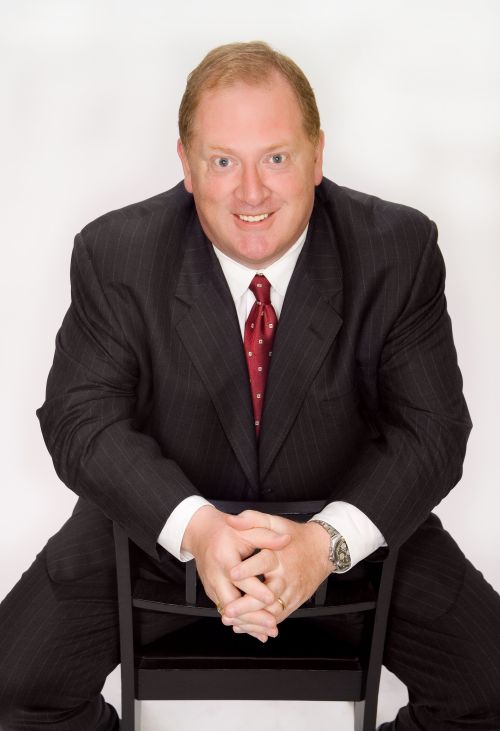
Posted by JD Hull at 11:57 PM | Comments (5)
May 04, 2010
The Rules
Four years ago, we put this blog and the firm behind it at considerable risk of being known as the lawyer-authors of a genre how-to book, i.e., "Who Moved My Bates-Stamp?". We completed writing The Rules of Client Service. There are (gulp) 12 of them. They derive from an irreverent and pithy office guide for associates we wrote in 1997. They are based on actual experience over many years. We've more than given them a whirl. The rules work with the most sophisticated users of legal services on earth. If you scroll down a little, they are also on your left in this blog's side panel.
Posted by Holden Oliver (Kitzbühel Desk) at 11:49 PM | Comments (0)
April 15, 2010
Well, do they, punk?
Customers, clients, buyers: the Keepers. "Do Your Best Customers Know They Are?" St. Louis-based Matt Homann asks us at his enduring the [non]billable hour. A gem.
Posted by Holden Oliver (Kitzbühel Desk) at 11:59 PM | Comments (0)
April 12, 2010
The Client's Stock Price Last Week? This Week?

Blaise (above checking share prices of companies) is about to get out of law school. She won prizes in Contracts and Evidence--and knows the difference between Whitman, Wordsworth and Whittier. She never feels sorry for herself. She thinks it's a privilege to just work. If your firms hires her, even part-time, you may be gone in a matter of weeks.
Take time out to learn the stock price, industry, day-to-day culture, players and overall goals of your client. Visit offices and plants. Don't charge for it.
Associates in particular need to develop the habit of finding out about and keeping up with clients and their trials and tribulations in and out of the areas they are working in. Learn about your client--but keep learning about it.
No, a Google search twice a year won't cut it. Devise a system to keep abreast.
The above is from past discussions about "Rule 7: Know the Client", in our annoying-but-correct 12 Rules of Client Service. The Client, it turns out, actually wants you to know him, her or it. Do honor--and keep--good clients by knowing them, and knowing them well. Start there.
Note: It's not about the lawyers anymore, and not about the law firms. Never was. Attorneys, in the U.S. especially, are a dime a dozen. Just not that big a deal. You signed up to serve. Get used to it. Know the client. Distinguish yourself. Surprise clients.
Posted by Holden Oliver (Kitzbühel Desk) at 11:43 PM | Comments (0)
March 17, 2010
"Settlement Perspectives": Why not ask the GC?
Blog posts. Even when they come from the better law and business sites, most of them--about 99 percent, frankly--aren't going to change your work, your life, or even your day. We're all busy. We search quickly and expectantly for that 1 percent. When we find one, and digest it, we hope it sticks.
Here's a gem we would like to have worked up and written ourselves: "Toward Better Client Service: A Few Questions for Outside Counsel " at John DeGroote's Settlement Perspectives. The in-house counsel/GC questions come from P.H. Glatfelter's General Counsel Thom Jackson. Whether or not you agree with the dozen questions Jackson and DeGroote outlined, or whether they precisely fit your firm's business model, these, at a minimum, serve as a very fine first draft. Bravo.
Posted by Holden Oliver (Kitzbühel Desk) at 11:59 PM | Comments (2)
February 05, 2010
Justin Patten: Value and Service--Not Hours and Flat Fees.
See "It is Not About The Hourly Rate - It is About Client Service" by Justin Patten, who straddles Hertfordshire and London. His well known and respected site is Human Law Mediation. Patten is one of original UK lawyer-bloggers, along with Charon QC, GeekLawyer and Ruthie.

Posted by Holden Oliver (Kitzbühel Desk) at 11:59 PM | Comments (0)
December 18, 2009
"All hat, no cattle".
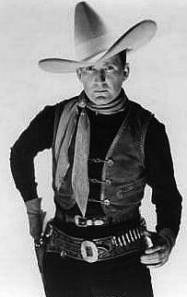
Everyone in your shop has to buy into client service like a cult, like a religion--like an angry sermon that lifted them out of their pews at The Church of the Final Thunder.
Real client service--i.e., know-how consistently delivered as an experience the customer likes and wants more of--is by now a global cliché. Hey, you must say you are "into" it--but do you even know what it is? It sounds easy, and intuitive to the speaker and listener.
"Client and customer service...how hard could that be?"
Very. Making a client be safe and feel safe at the same time is as hard an order to fill as we can imagine. Whether you're a lawyer, accountant, hooker, fishing guide, house painter, drug dealer, or mom-and-pop corner store owner, superior work alone won't keep a good client or customer coming back.
Clients want something more. You have to figure out what that is.
And then everyone in your shop--yes, everyone--has to buy into CS like a cult, like a religion, like an angry sermon that took them out of their pews at The Church of the Final Thunder.
"Yes, yes, got that covered." One problem is self-deception: (1) most service providers think they know what CS is, but they don't; and (2) if they really do know, they don't know how to discipline their organizations to make CS stick.
"All hat, no cattle." The second and more immediate problem is deceiving clients themselves. At a minimum, even if you don't have a clue what CS really is, do you say you provide it when you don't? Is CS a little joke at your shop? A ruse, maybe? Something for the website? For that first pitch?
Well, there are voices in the wilderness besides ours on that one. And one of our favorites is Tom Kane at The Legal Marketing Blog. See again his post from June 2008, "Don't Let Client Service Be Merely Lip Service" and the related links.
Posted by JD Hull at 05:16 AM | Comments (0)
December 02, 2009
Rule Eight
Over at our annoying but highly correct 12 Rules, Rule Eight is "Think Like the Client--Help Control Costs".
If you really think your firm is "partnering" with a client, then think through and plan client projects as if you were an owner of the client. Your employees have to buy into that, too. But what if you and yours don't or won't buy into it? It means, at best, this: (a) all those "partnering" and "dedicated-to-excellent-client-service" overtures on your website are just more cookie-cutter noises in the usual law firm marketing rhetoric, and (b) your firm's lawyers and employees can count themselves among the usual generic American law cattle who pretend--to themselves and others--that they actually like what they do for a living and even excel at it.
So are you folks even in the right profession? Lawyering is a service career. Lawyers are servants, first. Lawyers are not special. (And in the U.S., where we are a dime a dozen, and the differences in quality among us are immense, lawyers are becoming less and less special every year.) Lawyers are not the main event. Get used to it. Get your employees used to it.
But you can get a higher standard--and enforce it. It's not too late.
Posted by Rob Bodine at 09:46 PM | Comments (0)
October 30, 2009
"All hat, no cattle"

Everyone in your shop has to buy into CS like a cult, like a religion--like an angry sermon that lifted them out of their pews at The Church of the Final Thunder. If employees will not, or cannot, get rid of those stiffs first. And do feel good about firing them.
Real client service--i.e., know-how consistently delivered as an experience the customer likes and wants more of--is by now a global cliché. Hey, you must say you are "into" it--but do you even know what it is? It sounds easy, and intuitive to the speaker and listener.
"Client and customer service...how hard could that be?"
Very. Making a client be safe and feel safe at the same time is as hard an order to fill as we can imagine. Whether you're a lawyer, accountant, hooker, fishing guide, house painter, drug dealer, or mom-and-pop corner store owner, superior work alone won't keep a good client or customer coming back.
Clients want something more. You have to figure out what that is.
And then everyone in your shop--yes, everyone--has to buy into CS like a cult, like a religion, like an angry sermon that took them out of their pews at The Church of the Final Thunder.
"Yes, yes, got that covered." One problem is self-deception: (1) most service providers think they know what CS is, but they don't; and (2) if they really do know, they don't know how to discipline their organizations to make CS stick.
(WAC?, by the way, does know what and how; the reason we give away our "secrets" is that we are confident that virtually none of you will ever be able to get and deliver client service. Yes, we are making fun of all you. All you "smart" people--embittered that you are not rich or powerful enough--who don't get other humans. You folks are hopelessly "get-the-net" delusional about CS. No intuition, no guts, no gospel--and no discipline.)
"All hat, no cattle." The second and more immediate problem is deceiving clients themselves. At a minimum, even if you don't have a clue what CS really is, do you say you provide it when you don't? Is CS a little joke at your shop? A ruse, maybe? Something for the website? For that first pitch? Well, there are voices in the wilderness besides ours on that one. And one of our favorites is Tom Kane at The Legal Marketing Blog. See again his post from June 2008, "Don't Let Client Service Be Merely Lip Service" and the related links.
Posted by JD Hull at 11:59 PM | Comments (0)
October 20, 2009
What happens to your clients "after they've seen Paris"?
In the words of the old song, "How ya' gonna keep 'em down on the farm, after they've see Paree?" How do you satisfy them with Paris--once they've see Paris? How do you satisfy a client with "great", once you've already delivered it? You must get better to avoid falling behind.
--Harry Beckwith, The Invisible Touch (Warner Books 2000)
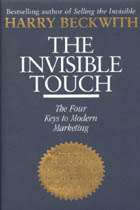
Posted by JD Hull at 04:41 PM | Comments (1)
October 01, 2009
Distinguish your law firm--if you can.
It's not about the lawyers anymore. No one cares you're a lawyer. Not an impressive club. A big so-what. In America, they made it easy to become a lawyer. Some day, everyone, including your waitress in Richmond, Kentucky, will be a lawyer. So get going. Distinguish your firm by serving clients. And get higher standards.
Secret: You do that by surprising clients you already have. But most of you can't--or won't--do it Why? It's hard. Rule 4: Deliver Legal Work That Change the Way Clients Think About Lawyers. From our annoying-but-true 12 Rules. Note: Blase, our happy waitress below, is a night law student. She is going to graduate from law school soon. She's a fine student. Through persistence, charm and the way she talks about real life, she will land a position as an associate at your law firm, inadvertantly make you look bad at your job, and generally eat your lunch. She gets it. She wants it. And most lawyers, even at fine firms, are pretty easy to beat. Nice people--but no guts, no gospel, and no plan. But Blase will surprise first co-workers and then clients with her work, her energy, and her Moxie.
Have a nice day.

Posted by Rob Bodine at 11:59 PM | Comments (0)
September 02, 2009
Devil Perfectionism

Tormented GC in South East Asia: "The dweebs. The dweebs."
The downside of Type-A. Perfectionism. A great place to "be from". A wonderful instinct, if controlled. It's also a curse: of eldest children, professionals, knowledge workers, most lawyers, all spouses, your Mom, and the geek classes, or Techwazee.
The horror, the horror. Too much, and you need rehab. Worse, your senior partner will start questioning your judgment. Clients 99% of the time are not paying you to be perfect. They don't want it.
Be excellent--not perfect. See "Rule 10: Be Accurate, Thorough and Timely--But Not Perfect" in WAC?'s annoying-but-accurate 12 Rules.
(Photo: Paramount Pictures)
Posted by Rob Bodine at 12:01 AM | Comments (1)
August 31, 2009
Redux: The Sacred, Immovable, No-Excuses Weekly Conference Call.
They are missed or canceled only for the most compelling reasons. Vacations, trips to Europe, Asia, South America, head colds, bad traffic, hangovers, my-wife-and-girlfriend-found-out-about-each-other? Sorry, no excuse.
My dog ate my notes, and the draft amended counterclaim? Or, the law schools tried to 'humanize' but instead emasculated the new law clerks (and they are all singing show tunes instead of fighting for clients)?
Nope. These don't cut it, either.
The Sacred, Immovable, No-Excuses Weekly Client Conference Call. It's one of our favorites. Click on it. If your firm currently is doing a litigation, transactional or other project which falls into the category of either "fast" or "intense", here's a practice you can institute today that your firm probably does not have in place. It's a no-brainer. It has enormous benefits right away. And it will both impress and help any good client. It will not put the hurt on your "WLB". It will help you too.
Posted by JD Hull at 11:59 PM | Comments (0)
July 03, 2009
Distinguish your firm. And yourself. Surprise clients.
It's not about the lawyers anymore. No one cares you're a lawyer. No longer impressive. In America, they made it easy to become a lawyer.
Some day, everyone, including your waitress in Richmond, Kentucky, will be a lawyer. And hey she's gaining on you, Jack. So get a head start. Distinguish yourself by serving clients. And get higher standards. Surprise them.
Rule 4: Deliver Legal Work That Change the Way Clients Think About Lawyers. From our Mr. Rogers-esque and annoying-but-accurate 12 Rules. A note about our waitress: Blaise. She attended Oberlin, had to quit twice to make money, graduated, was Coif in law school (night division), made Law Review, and has a Marshall Scholarship.
And a kid. She's a CPA, too. Blaise knows the difference between Whitman, Wordsworth and Whittier. She never feels sorry for herself. She thinks it's a privilege just to work. Blaise the waitress is going to kick your wazoo in the workplace when she gets a job at your firm.
What about your waitress?

Posted by JD Hull at 04:59 AM | Comments (0)
July 01, 2009
Performance Reviews based on CS standards.
At your shop, talk about real client service every single day--as if it were a substantive area of law practice. Make it a running conversation. And if you are serious about building and keeping a "client service culture", you need to underscore it at every performance review.
It's an idea that is here to stay--in this, or any other economy. See "Performance Reviews Based On Client Service Criteria?" Are you serious about all that "client service" stuff on your website?
Posted by JD Hull at 11:59 PM | Comments (0)
May 22, 2009
The client's stock price this week?
The client, it seems, actually wants you to know him, her or it. Take time out to learn the stock price, industry, day-to-day culture, players and overall goals of your client. Visit their offices and plants. Do it free of charge.
Associates in particular need to develop the habit of finding out about and keeping up with clients and their trials and tribulations in and out of the areas they are working in. Learn about your client--and keep learning about it. Devise a system to keep abreast.
From "Rule 7: Know the Client", in our annoying-but-correct 12 Rules of Client Service.
Special note to get-a-life conventioneers world-wide: Practicing law never was--and never will be--a work-life balance thing. It's a client thing. Start there. You signed up to serve. Get used to it.
Posted by JD Hull at 11:59 PM | Comments (0)
May 11, 2009
The Scramble for Value.
Susan Hackett, general counsel of the ACC, says the new approach to value is necessary because law firms had become so expensive that their fees often outstripped the value of the problem they were brought in to resolve.
The scramble for value, the debate on new models, the future of law firms--the discussion needs a touchstone. There are lots of ways to provide value to higher-end clients: hourly fees, not hourly fees, and hybrids, new firm business models, and all manner of "paradigm-shifts". But WAC? still maintains that they begin and end with customer (lawyers call them "client") relationships.
And Trust. Trust is the place of definitions for all service providers--not just for lawyers.
Anyway, here's one (via Canada's often-prescient Jordan Furlong at Law21) worth reading we missed two weeks ago from Penn's Wharton School: "Legal Strategy 101: It's Time for Law Firms to Re-think Their Business Model". A thoughtful and competent article, if a bit "lawyer-centric". I think we should just get used to it. Lawyers are not special. We are servants, if often well-paid ones.
Billing models, partnership structures, staffing alternatives, the care and feeding of associates, firm culture, collegiality--they mean nothing unless designed and maintained for clients' day-to-day needs. We are not royalty. We serve. We anticipate, prevent and solve client problems. Nothing more. Can we focus more on the real deal: the Art of the Client. What else is there?
Posted by JD Hull at 12:59 AM | Comments (0)
Simple Priorities: Clients First, Lawyers Second.
We work hard, play hard, enjoy life to its fullest. We just don't do so at the expense of the people who put their trust in us. The Slackoisie can't comprehend this as being possible; pleasure is on their terms or can't possibly exist.
--SHG, May 11, 2009
Work-Life. Life-Work. Work as Optional. Lawyer Training as Watered-Down. Work as a Privilege. Work as Important. Clients as The Touchstone? Or is it: Law Firms and their Employees as the Main Event? Stylize Mediocrity? Well, why not? Just make mailing-it-in part of the new U.S. lawyer culture in the middle of a recession. Lawyers might really like it.
That's the New Program, isn't it?
Well, WAC? is very confused. Before we (1) lose our bearings, (2) get a life, or (3) blow a jurisdictional deadline today because it was inconvenient for us to meet it, we will certainly reread Scott Greenfield's radical pro-client (weird, eh?) opus at Simple Justice in "The Slackoisie Fight Back".
Last week in Chicago, Greenfield attended the heavily GC-attended SuperConference by InsideCounsel magazine--spearheaded by Summit Media's hard-working and artful Sheila Brennan. There, at the staid Chicago Fairmont, Greenfield apparently just lost it, and blew, as it were, a tube. He was, and still is, messing up the "Work-Life Balance Movement" for a lot of people. And in particular he is putting the hurt on those who, ironically, are most passionate about Work when they argue for the right not to do it. Can Greenfield be stopped? At least muzzled? Some people. Get the net.
Posted by Holden Oliver (Kitzbühel Desk) at 12:00 AM | Comments (1)
April 16, 2009
Building a Better Brand Morgue
Remember back in the day that store called Circuit City? It's hardly a notion that at first blush makes you bounce out of bed eagerly to greet the new day. But Salon.com has collected some very instructive swan songs at its Brand Graveyard. To be fair, and on the brighter side, some of the brands discussed--like Saab, for example--are merely sick or dying. They have been mismanaged, and often it seems like their owners have been trying hard to kill them. Which reminds me to ask: would some nice northern European company please buy Saab back from GM? See today's Bloomberg.

"The Brand Graveyard is where brands go to die."
Posted by JD Hull at 11:59 PM | Comments (1)
April 02, 2009
Keeping Clients: "Do we really need a memo on that?"
Maybe go to the mirror and practice saying that to your client. Another way to say it:
You know, Elizabeth, this project had been lawyered and memo-ed out the proverbial wazoo. Let's do the research right away. We can get Justin and Brittany to start on it today; they know the legal terrain here. But after we research it, let's just have the [brief/letter/contract] reflect what we conclude. That's where we're headed with this anyway. Let's skip the lengthy legal memorandum.
There are times you don't need to scorch the earth. To save time, money and relationships, just answer the question. Do the research, take a stand, and write it all up in the instrument you are actually going to use anyway.
Stop Feeding the Monster. Skip the 10-, 20- and 35-page memo.
Aside from necessary opinion letters, don't offer to write or write a cover-everyone's-ass and/or comprehensive "all-legal-theories-and-strategies" memorandum unless your in-house lawyer really wants it. And then try to talk her or him out of it.
Part of the job of outside counsel is to guide the in-house--and make him or her be good and look good by saving money and time. If you are in litigation, test out your brilliant ideas and research in a draft brief or another document the client can actually use later on. Skip the 10-, 20- and 35-page memo. Try to make memos you do do be shorter, and reflect the group's cumulative thinking on that issue or project.
Posted by Holden Oliver (Kitzbühel Desk) at 11:59 PM | Comments (0)
March 18, 2009
Marketing and Client Service: Your staff must "buy into" them.
Now more than ever. We've repeatedly said about Client Service (or "ease-of-use") and your employees: "Buy into it or leave". Your firm can be cool-hip-irreverent about everything else. But not Client Service. Same for Marketing--which in service professions you are always doing anyway as you work. See Tom Kane and WAC's "Rule 3: Ensure Everyone Knows That The Client Is The Main Event". Make CS and marketing details part of your evaluation criteria for all employees, and all working shareholders.
Posted by JD Hull at 12:07 AM | Comments (0)
March 09, 2009
Clients and Customers: After they've seen Paris.
In the words of the old song, "How ya' gonna keep 'em down on the farm, after they've see Paree?" How do you satisfy them with Paris--once they've see Paris? How do you satisfy a client with "great", once you've already delivered it?
You must get better to avoid falling behind.
--Harry Beckwith, The Invisible Touch (Warner Books 2000)
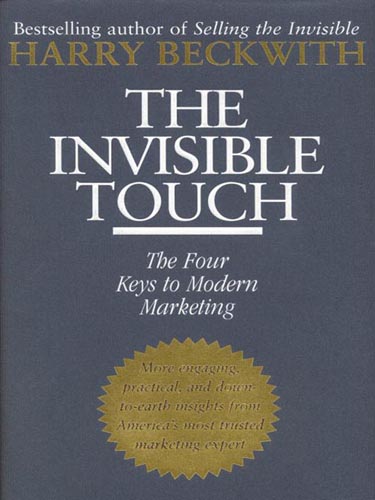
Posted by Holden Oliver (Kitzbühel Desk) at 12:00 AM | Comments (0)
March 04, 2009
Optional: Panic, Pessimism & Self-Pity

The other "E", in his studio, goofing on us.
Redux: So, tell me again, what do we do now?
Bad stock performances lately. More road rage, as even mellow car-centric Californians lose their tempers. And dog kicking, we hear, is way up in the Midwest, where until now "Appropriate" had served as Mantra, Law and Religion since early 1900s. There are also reports that, in the last 3 or 4 days, people in Boston and NYC are one (1) degree meaner than usual, i.e., bordering on criminally insane. Even the resourceful, lyrical, way-smart "E", domicile unknown, exists in a celestial malaise.
So again we summon the Masters of Professional Service Firms for guidance in the The Way-Down Global Economy. Some advice, with great related links, from people who think about this stuff all the time (so you don't have to). They were thinking about it all along. You can hire them, too.
Ed Poll: "Three Lenses for Law Firm Recession Survival" (9/16/08)
Jim Hassett: "The First Thing Lawyers Should Do In A Recession" (1/30/08)
Dennis Kennedy: "Planning for Legal Technology in a Recession" (1/22/08)
Tom Kane: "Time to Get Closer to Clients" (9/25/08)
Bruce MacEwen: "Costs & Revenues: Health Check Time" (9/5/08)
The prescient Larry Bodine: "Get Ready for the Coming Recession" (8/26/07)
Jennifer E. King: "Marketing Your Firm’s Legal Services During an Economic Decline" (2008 LexisNexis white paper)
And finally, Chicago trial-lawyer, thinker and value architect Patrick J. Lamb: Read Anything Pat writes these days.
Posted by Holden Oliver (Kitzbühel Desk) at 11:59 PM | Comments (1)
February 03, 2009
February's Carnival of Trust
We know--it sounds like you died and went to Hallmark. But the Carnival of Trust is excellent, conceived and guided by revered and famous minds. Even surly WAC? jumped at a chance to get involved with COT later this year. This month it's hosted by Ian Brodie, a consultant based just south of Manchester in England's Northwest, at his Sales Excellence. One post featured is "Belligerence Kills", at Sales Loudmouth by Tim J. M. Rohrer, and it's instructive. But Belligerence, as an instinct, is instructive, too. Belligerence is also Good. Be belligerent. Very American. Irish, too. You have to listen to It.

Belligerent Gallic chieftain Vercingetorix surrenders to Caesar, 52 BC.
Posted by Holden Oliver (Kitzbühel Desk) at 08:01 PM | Comments (4)
January 31, 2009
Staffs that work.
See at Lawyers USA the article "Are You Overlooking Your Best Marketing Tool?" by lawyer-editor Sylvia Hsieh. It's about making your employees customer and client-centric. Which is, of course, easier said than done. Unfortunately, even at well-meaning businesses, the claim that "customer focus informs our every thought and action" doesn't last longer than a couple of days. It is quickly relegated to gimmicky feel-good website language at most companies, hotels, stores, shops, fruit stands and brothels on this planet.
The reason: Client service is very hard, and most businesses don't even know it. So they don't build it, they don't work hard at keeping and improving it, and they don't enforce it.
However, the Lawyers USA piece does hold out hope for building disciplined client service cultures at professional firms. It features: (1) some great advice from real pros, like Tom Kane and Ed Poll, (2) a few new but practical ideas, and (3) a creepy law partner who summarily fires associates who don't buy into client service 24/7. Some people. But Ms. Hsieh's article is fine instruction for managing partners, and new lawyers just starting out. Just a few mixed excerpts:
Written policies and training are a starting point.
This message should come across as early as the hiring process.
He [the partner] bluntly tells everyone in the firm the rules are not a gimmick and anyone who doesn't buy into them will be fired.
And he has followed through on that promise, such as when he fired an employee on the spot for refusing to take a phone call from a client over a weekend when both partners were out of town.
Employees at his firm know they will be evaluated based on their customer service skills and are encouraged to evaluate the partners on the same.
Another policy that [the partner interviewed] instituted at his firm to involve staff is that every person who works on a project for a client, including the paralegal and secretary, knows what the client is being billed.
Posted by Holden Oliver (Kitzbühel Desk) at 11:06 PM | Comments (0)
January 29, 2009
Jim Hassett on alternative fees--Part 4.
Now we know it really won't go away. At his Legal Business Development, Jim Hassett just published Part 4 of his series on alternative fees, where he's done a fine job of summarizing the players, views and "literature" in The Movement. See this week's installment "Why Every Lawyer Needs To Consider Alternative Fees Now".
Posted by JD Hull at 11:39 PM | Comments (0)
January 28, 2009
The subject that won't die: alternative fees.
And you can't ignore it. Thought leaders like Ron Baker, Pat Lamb, Tom Kane and now law firm leaders won't let the topic go way. See, for example, Kane's "Now Is The Time To Consider Alternative Fees". Because of its flexibility in the hands of client-centric lawyers, WAC? still likes the Billable Hour--even though many (if not most) lawyers abuse it out the wazoo. The problem, as we see it, is not the Timesheet, and it never was. Law is now both a trust-based profession and a business. No single system can make that built-in conflict go away. Only individual client-lawyer relationships can. We support any system that aligns as closely as possible the interests of clients and outside counsel. Hourly billing can do that. Alternative fees--value-based, hybrids, whatever you devise--can do it, too. Hey, we're still listening.
Posted by Holden Oliver (Kitzbühel Desk) at 08:30 AM | Comments (1)
January 23, 2009
Redux: Ernie's Churchyard Find.
Ernie From Glen Burnie. Not his real name--but he's a real person, a D.C. lawyer with a golden resume everyone speaks about in low tones (which he thinks is pathetic). We like to protect him. He made partner a long time ago, still tries cases everywhere, and writes well-received fiction on the side; so he probably doesn't care. Some nights he can be found at The Old Ebbitt, in the smaller bar in the back left, drinking a lot of coffee, so maybe you've already met him. He's rarely alone. Women like him. He doesn't eat much. He talks a lot, in a lyrical yet measured way. Ernie always makes a good point, however he has to make it. See The 7 Habits of Highly Useless Corporate Lawyers.
Posted by Holden Oliver (Kitzbühel Desk) at 12:21 AM | Comments (0)
January 14, 2009
Client costs are your problem, too.
Rule 8: Think Like the Client--Help Control Costs.
Ask any associate lawyer or paralegal what a "profit" is. You will get two kinds of answers. Both answers are "correct" but neither of them helps anyone in your firm think like the client.
Posted by JD Hull at 02:31 AM | Comments (0)
January 12, 2009
"From Mistrust to Cynicism to Corruption"
We are not sure that "Madoff's a bad man" but do see this one at Trusted Advisor by Charles Green. Thanks to the Blawg Review editor, the vigilant and uncanny Ed.
In Twain's and Eastwood's stories, an organization starts out proud of its reputation for rectitude. Then someone descends into venality. It starts with “borrowing” to tide things over the weekend. But--as with any crackhead--it doesn't stop there.
Posted by Holden Oliver (Kitzbühel Desk) at 11:59 PM | Comments (0)
January 09, 2009
Clients, and the psychology of the Madoff affair.
Trust is only earned in a deeply personal way--it cannot be garnered and granted by someone else.
See "The Gullible and Bernie Madoff" at Neil Senturia's The Baby Blog. Senturia, a well-known Southern California entrepreneur and consultant, argues that "every gullible act occurs when an individual is presented with a social challenge". Put another way, it's a Groucho Marx thing: Madoff's most raving fans were investors he at first ignored; if he and his organization had pitched them, and asked them to join "the club", the investors might have ignored him.

Senturia: "Beware of doors that only open with a secret knock."
Posted by Holden Oliver (Kitzbühel Desk) at 03:32 AM | Comments (0)
November 13, 2008
Your boss wants a word with you: GC Value Challenge (cont.)
So you guys were serious about that, huh? If outside law firms couldn't figure it out for themselves, the ACC offered to explain it to us last month, after a meeting the in-house group held in late September in DC. In his weekly thought piece, Jim Hassett writes about it, sans the usual shameless pandering often displayed when corporate lawyer-bloggers (WAC? for example) seize on an issue they know GCs love and champion: "ACC’s Value Challenge (Part 1)".
Forget about how you bill. Focus on what you are adding on each project. But what's the incentive for that, you ask, when you can just "feed the monster" in a series of one-night stands? A: Long-term relationships with companies you want to keep as clients. For once, though, don't listen to What About Clients? Pay attention to your boss. A springboard for working Value Challenge ideas can be found at the ACC website. Folks, they're serious.

Diogenes of Sinope searches for honest, value-focused, counsel. J.H.W. Tischbein (c. 1780).
Posted by JD Hull at 08:15 PM | Comments (2)
November 07, 2008
Keeping Clients and Customers: Why not compete on "Ease-of-Use"?
If the following seems like a previous post, you are right. We'll keep publishing a version of it until "Ease-of-Use" as a term of art/catch phrase replaces "Customer Service". WAC? is convinced that "Customer Service" throws people, bores people or renders them straight-up Numb...
What if the Services Sector, now King, competed for clients and customers on the basis of "Ease-of-Use"?
Develop and apply ease-of-use concepts for products and goods to pure services? Our clients' services? Our services? Law. Accounting. Consulting. Advertising. Newer and non-traditional services, too. Anything where a service (something valuable but "invisible") or product-service mix is part of what you pay for. In other words, pretty much Everything these days--and the direction global markets now march, in good and bad times.

Consider for a moment just products. In 2006, The Folgers Coffee Company was awarded an Ease-of-Use Commendation by the Arthritis Foundation for its AromaSeal™ Canister. If you're a Folgers® drinker, you notice that Folgers® added an easy-to-peel tin freshness seal (no need for a can-opener), a new "snap-tight" lid and even a grip on its plastic red can.
Folgers® did it for coffee cans. IBM and CISCO have ease-of-use programs for the products they sell.
The great companies many of us represent do spend money and expertise on making their goods, equipment and products usable. Think about your car, your luggage, your TV remote (well, strike that one), your watch and even grips on household tools. Think about Apple, Dell and Microsoft. Each year they think through your experience with their products and try to make it better. Continuous improvement models for "things."
Develop and apply ease-of-use concepts to pure services? Our clients' services? Our services? Sure, why not?
It's probably coming anyway, even while it will be infinitely harder to do for services than for products. WAC? has noted before that even corporate clients that sell goods see themselves as selling solutions and not products. In 2004, services sold alone or as support features to the sale of goods and products accounted for over 65% of the gross domestic product (GDP) in the US, 50% of the United Kingdom's GDP and 90% of Hong Kong's. Even products sold by IBM and CISCO, now chiefly service companies, are part of a services-products mix in which the services component is the main event.
Law firms, of course, have always sold services. And we are a small but powerful engine in the growth of the services sector. We strategize with and guide big clients every day. While that's all going on--day in and day out--what is it like for the client to work with you and yours? Are clients experiencing a team--or hearing and seeing isolated acts by talented but soul-less techies? Do you make reports and communications short, easy and to the point? Who gets copied openly so clients don't have to guess about who knows what? Is it fun (yeah, we just said "fun") to work with your firm? How are your logistics for client meetings, travel and lodging? Do you make life easier? Or harder? Are you accessible 24/7? In short, aside from the technical aspects of your service (i.e., the client "is safe"), do your clients "feel safe"?
What if law firms--or any other service provider for that matter--"thought through," applied and constantly improved the delivery of our services and how clients really experience them?
And then competed on it...?

Posted by JD Hull at 11:59 PM | Comments (1)
October 30, 2008
The Big Dog shills for Senator Obama.
See The Nation and about 350 other articles. I'm not voting for Obama, but Bill Clinton, who also campaigned for Al Franken in Minnesota last night, is on the tube as I write, campaigning for Obama in Florida. Can Wild Bill "market" or what? (At a meeting of 50 GCs: "Hull McGuire's your friend--they aren't like the others--and if you love me, like I know you do, you'll love them, and you'll crank up their rates just...") Dang. Maybe I'll reconsider my vote for McCain. No, if I just lie down for a while, the feeling is sure to go away. Shucks, WJC could make all male Texans dress in drag for a week.

Even the controlled Sen. Obama gets a little weird around Wild Bill.
Posted by JD Hull at 12:59 AM | Comments (0)
Jim Hassett: "Don't stop."
At his Legal Business Development, see Down Economy, Part 8: What To Do If Your Revenue Goes Down, and What Clients Want, According To Ram Charan.
Posted by JD Hull at 12:35 AM | Comments (0)
October 29, 2008
Update: Special Report from The Desert.
As I was saying, earlier this week I was in The California Desert--stalked by Death, Destruction and a monthly Smith Barney report nasty enough to put Pollyanna on Lithium for a year--and waiting for a vision to deliver us all. What I received was so pedestrian and simple that the rapture almost killed me. This Guy, a gardener with the Two Bunch Palms resort, and named Raphael, comes up to me and says:
1. Focus on existing clients, and on their current projects.
2. Stay friendly with GCs, client reps, influential people and "referrers" that you already know.
3. "Network" for brand new clients and contacts later, Dork. Now is not the time.
4. Finally, Work-Life Balance? Dude, that's so 2006. Think of it all as "work-life mix." Keeping life and work separate misses the point. Live smart and work smart. But be ready for anything. Life and Work both come at you when they are ready, and on their terms, not yours.
Go in peace. Dork.

(Left to right:) Raphael and WAC? in The Desert.
Posted by JD Hull at 11:59 PM | Comments (1)
October 28, 2008
Larry Bodine: He has news can you use.
You may not like the news, but start here anyway at Bodine's LawMarketing Portal: "ACC/Serengeti Survey: The Economic Picture for Law Firms Gets Worse". Lots of ideas you can use, too, at LMP.

Posted by Holden Oliver (Kitzbühel Desk) at 11:59 PM | Comments (0)
October 23, 2008
Once again, GCs weigh in on law firms.
Via the vigilant and all-powerful Ed. of Blawg Review, see by John Wallbillich at Wired GC "Managing Outside Counsel Survey", with links to an interesting ACC survey. "40% of outside counsel report terminating a law firm relationship", a number which does not shock us, and actually is lower than we would have thought. Incidentally, Blawg Review this week is hosted by tech-savvy and future U.S. IP Czar David Gulbransen at Preaching to the Perverted. All life is a test.
Posted by JD Hull at 11:59 PM | Comments (0)
October 15, 2008
You want to keep what you have?
1. Represent only clients you "like".
2. The client is the main event.
3. Make sure everyone in your firm knows the client is the main event.
4. Deliver legal work that changes the way clients think about lawyers.
5. Over-communicate: bombard, copy and confirm.
6. When you work, you are marketing.
7. Know the client.
8. Think like the client--help control costs.
9. Be there for clients--24/7.
10. Be accurate, thorough and timely--but not perfect.
11. Treat each co-worker like he or she is your best client.
12. Have fun.
Posted by Holden Oliver (Kitzbühel Desk) at 11:13 PM | Comments (0)
October 10, 2008
What your clients will do--and your firm needs to do.
Judgment Day. No, American capitalism is not dead. It's just morphing. Again. We're not headed for barter systems. Yanks are still the leader; compared to the U.S., the next most competitive economies on the planet are like Maynard G. Krebs, or maybe Borat, on downers and cough syrup. But while things shake out, corporate clients all over the world are going to change. Firms that advise, fight, solve problems and engineer for them must change, too. So start now. Get lean, get mobile, get agile.

Now.

In six months.
(T2 Photo: Tri-Star Pictures)
Posted by Holden Oliver (Kitzbühel Desk) at 11:23 PM | Comments (0)
The Recession: The next big things for your clients are...

A. Austerity. Your clients will try to: (1) Do only The Urgent. That means respond to/defend regulatory enforcement action, renegotiate loans, litigation, etc. (2) Do The Urgent only In-House.
B. The Status Quo. That's the Latin short for "the state existing before the war". Clients will not change outside counsel as frequently. Not as many new engagements. So hold on to what you have.
C. Real Value. When your firm is called upon to work for a client, that client will want Real Value. Real Value does not necessarily mean lowering your rates or doing flat-fee arrangements. It will be determined, as always, by the gut-level reaction General Counsel has in that first 30 seconds when he or she reads your invoice. So what RV did your firm add?
Posted by JD Hull at 12:25 AM | Comments (0)
October 08, 2008
The Value Movement: "The Value Challenge".
It's a client thing, it's a GC thing.
Pat Lamb of Chicago's Valorem gave us this piece last week. WAC? adds that the call-to-arms for giving value to higher-end clients is not just about this blog's recently-increased focus on making expensive employees productive faster. It is a top-to-bottom affair, and all good clients deserve it--whether they ask for it or not. Billing, quality of product, efficiency, real ($) value-added by associates and paralegals, real customer service, keeping the Client First, communications, speed.
Our advice: Forget about what sophisticated corporate clients will tolerate, or are "used to". Give them something they need, and that will increase your value to them. In good economies or bad, surprise great clients, keep their business and attract more.

Posted by JD Hull at 11:59 PM | Comments (0)
October 07, 2008
So what do we do now?
Service Firms, and The Way-Down Global Economy. Some advice, often with related links, from people who think about it all the time (so you don't have to). You can hire them, too:
Ed Poll: "Three Lenses for Law Firm Recession Survival" (9/16/08)
Jim Hassett: "The First Thing Lawyers Should Do In A Recession" (1/30/08)
Dennis Kennedy: "Planning for Legal Technology in a Recession" (1/22/08)
Tom Kane: "Time to Get Closer to Clients" (9/25/08)
The prescient Larry Bodine: "Get Ready for the Coming Recession" (8/26/07)
Bruce MacEwen: "Costs & Revenues: Health Check Time" (9/5/08)
Dan Hull: "In Praise Of Structure: Get A Standard" (7/23/08) and "Rule 4" (12/12/05)
Jennifer E. King: "Marketing Your Firm’s Legal Services During an Economic Decline"

Posted by JD Hull at 07:58 AM | Comments (0)
October 06, 2008
Client Service Worldwide: And the winner is...
The Client Choice Awards 2008, sponsored by the International Law Office, picked London-based Allen & Overy as the top client service firm internationally. Jones Day won in the U.S. More winners in nearly 50 jurisdictions are here. See also Legal Blog Watch.
Posted by Holden Oliver (Kitzbühel Desk) at 01:28 PM | Comments (1)
September 28, 2008
Ease-of-Use Awards for Services?
In 2004, services sold alone or as support features to the sale of goods and products accounted for over 65% of the gross domestic product (GDP) in the US, 50% of the United Kingdom's GDP and 90% of Hong Kong's.
What if the services sector competed for clients on the basis of "ease-of-use"?
Develop and apply ease-of-use concepts to pure services? Our clients' services? Our services? Law. Accounting. Consulting. Advertising. And anything where a service or product-service mix is part of what you pay for. In other words, pretty much everything--and the direction global markets now march, in good and bad times.
Ease-of-use for services. Sure, and why not?
Consider for a moment just products. In 2006, The Folgers Coffee Company was awarded an Ease-of-Use Commendation by the Arthritis Foundation for its AromaSeal™ Canister. If you're a Folgers® drinker, you notice that Folgers® added an easy-to-peel tin freshness seal (no need for a can-opener), a new "snap-tight" lid and even a grip on its plastic red can.

The great companies many of us represent do spend money and expertise on making their goods, equipment and products usable. Think about your car, your luggage, your TV remote (well, strike that one), your watch and even grips on household tools. Think about Apple, Dell and Microsoft. Each year they think through your experience with their products and try to make it better. Continuous improvement models for "things."
Folgers® did it for coffee cans. IBM and CISCO have ease-of-use programs for the products they sell.
Develop and apply ease-of-use concepts to pure services? Our clients' services? Our services? Sure, why not? It's probably coming anyway, even while it will be infinitely harder to do for services than for products. WAC? has noted before that even corporate clients that sell goods see themselves as selling solutions and not products. In 2004, services sold alone or as support features to the sale of goods and products accounted for over 65% of the gross domestic product (GDP) in the US, 50% of the United Kingdom's GDP and 90% of Hong Kong's. Even products sold by IBM and CISCO, now chiefly service companies, are part of a services-products mix in which the services component is the main event.
Law firms, of course, have always sold services. And we are a small but powerful engine in the growth of the services sector. We strategize with and guide big clients every day. While that's all going on--day in and day out--what is it like for the client to work with you and yours? Are clients experiencing a team--or hearing and seeing isolated acts by talented but soul-less techies? Do you make reports and communications short, easy and to the point? Who gets copied openly so clients don't have to guess about who knows what? Is it fun (yeah, we just said "fun") to work with your firm? How are your logistics for client meetings, travel and lodging? Do you make life easier? Or harder? Are you accessible 24/7? In short, aside from the technical aspects of your service (i.e., the client "is safe"), do your clients "feel safe"?
What if law firms--or any other service provider for that matter--"thought through," applied and constantly improved the delivery of our services and how clients really experience them?
And then competed on it...?

Posted by JD Hull at 11:11 PM | Comments (0)
September 23, 2008
Client service in a bad economy.
See Axel Meierhoefer's June post "What’s the best customer service during a recession?" at his Leadership and Talent Development for Smart People.
Posted by JD Hull at 11:59 PM | Comments (0)
September 19, 2008
3 years ago a WAC: GCs gone angry--fear, loathing, questions.
Have some law firms learned anything since? See "Fear and Loathing at the CLE Seminar? Getting an Earful from GCs" (Dec. 21, 2005).

American in-house lawyer still looking for new law firms. (Art: R. Steadman)
Posted by Holden Oliver (Kitzbühel Desk) at 11:59 PM | Comments (0)
September 18, 2008
"Deliver Legal Work That Changes the Way Clients Think About Lawyers"
If your clients are Fortune 500 stand-outs, and the GCs love you and your firm, is that because your service delivery is so good--or because other lawyers they've used are so bad?
Posted by Holden Oliver (Kitzbühel Desk) at 12:04 AM | Comments (0)
September 03, 2008
Rule Two: The Client Is The Main Event
The second in our series The 12 Rules of Client Service. Rule Two is here from November, 2005.
Posted by Holden Oliver (Kitzbühel Desk) at 11:31 PM | Comments (0)
August 29, 2008
Denver, sensitive guys, London, clients.
The sun sets on the Democratic Convention in Denver. The Slackoeisie celebrates a 3-day weekend. And WAC? heads for London. But we'll cherish the image of Michelle Obama grimacing as if hit with a Red Hill Deluxe HS36 "Hot Shot" cattle prod every time a Clinton drew wild applause. Learn to hide it better. (Query: Is Barack another whipped New Age Sensitive Guy? WAC? must know.) Finally, re: your firm's Boomer Age clients and GCs: hold onto what you got.
Posted by Holden Oliver (Kitzbühel Desk) at 11:59 PM | Comments (0)
August 23, 2008
"Think Like A GC--Help Control Costs."
Imagine lawyers in a church basement in Foggy Bottom for a noon meeting: I'm Wendell S., Georgetown '85, and I'm clueless about clients... This post's title is Rule 8 in our 12-step program for service-challenged corporate lawyers. Note: We are updating our 12 CS Rules, completed on 4/3/06, and will post "improved" rules soon. In the meantime, should you feel cluelessness coming on, call your sponsor.
Posted by JD Hull at 12:00 AM | Comments (0)
July 24, 2008
"Segmenting" customers and clients.
Whether they sell products, services or a products-services mix, smart companies treat their best customers better. See "Customer Segmentation" at Service Untitled.
Posted by JD Hull at 11:59 PM | Comments (1)
July 11, 2008
Jim Hassett: Protecting relationships.
Another client-focused blog which, like Tom Kane's, consistently transcends the group-hugs-and-Kumbaya marketing sites out there is Jim Hassett's Legal Business Development. There's stuff here you can use to make money. See "The Top Ten Ways For Lawyers To Increase Client Satisfaction", covering both existing clients and referral sources.
Posted by JD Hull at 11:59 PM | Comments (0)
Tom Kane: What your firm should be doing in a down economy.
Recently, Tom Kane, at his well-regarded Legal Marketing Blog, has focused on marketing during "bad times". And whether the downturn has hit your law firm or not, it's sure to have affected some of your best clients. Think as they do. The principles are the same.

Now, More Than Ever, Talk With Your Clients
Down Economy: Rainmakers Need Not Worry
Best Practices for the Down Economy
We would add: if you're nervous about not having enough work in the short term, stick to clients you already have, and relationships you've already firmed up. Put a bit less energy into building brand new ones.
Posted by JD Hull at 11:59 PM | Comments (0)
July 02, 2008
"Are lawyers just kidding themselves about delivering true service to clients?"
Reviews on lawyers always have ranged from architects of great nations and the world's commercial markets to necessary evils who add little or no value to any project. We are said to be manipulators with at best convenient notions of truth.
And horror stories about our botched or inattentive services are legion. True service to clients: are we delivering this and, if we aren't, can we talk about why?
Opening lines of our first post of August 1, 2005.
Posted by Holden Oliver (Kitzbühel Desk) at 12:59 AM | Comments (1)
June 26, 2008
See me, feel me, call me.
Making sense in Chicago. Read Patrick Lamb's "Email Free Fridays" to strengthen client relationships at In Search of Perfect Client Service. And see "E-mail is a great tool and it's making you nuts. Call me."
Posted by JD Hull at 12:51 AM | Comments (0)
June 25, 2008
Customer service in a down economy.
See Axel Meierhoefer's post "What’s the best customer service during a recession?" at his Leadership and Talent Development for Smart People.
Posted by Holden Oliver (Kitzbühel Desk) at 12:59 AM | Comments (0)
June 24, 2008
Think like a client--help control costs.
Rule Eight from WAC?'s 12 Rules.
Posted by JD Hull at 11:59 PM | Comments (0)
June 10, 2008
What if "bad customer service" were actionable?
This AP article made the rounds last week: "Los Angeles Time Sues Time Warner Cable, Claims Shoddy Service". The suit, of course, really interested WAC? What if falling short of promises made in routine selling and puffing became, in effect, a business tort, or a breach of an implied contract? An action sounding in "shoddy customer service?" Much of the California Time Warner action is grounded on violations of California law governing unfair business and deceptive advertising practices. There are obvious "floodgate" problems with dressing up bad service as violations of California's business and profession codes--but we like the City Attorney's pluck, and lots of ideas with legal legs start in flaky California:
LOS ANGELES (AP, June 5): Time Warner Cable Inc. was accused Thursday of lying to Los Angeles subscribers and providing shoddy customer service in a lawsuit that seeks potentially tens of millions of dollars in fines against the city's main provider of cable television.
"The company has broken multiple laws, and harmed countless Los Angeles consumers," City Attorney Rocky Delgadillo said in a statement. The suit was filed as a civil law enforcement action and names the people of California as plaintiffs. [more]
Posted by Holden Oliver (Kitzbühel Desk) at 09:11 PM | Comments (0)
June 05, 2008
Buying into Client Service
Everyone at your shop must do it. And that's not easy to achieve. From our CS Rules and 12-step program: "Rule Three: Ensure Everyone Knows That The Client Is The Main Event".
Posted by Holden Oliver (Kitzbühel Desk) at 11:58 PM | Comments (0)
June 02, 2008
CS musings
Globe-trotting James Hipkin finally landed in San Francisco. He succinctly sets forth "5 Principles for Successful Client Service" at his Musings on Marketing. All 5 of these make way too much sense--we wish we had thought of them.
Posted by JD Hull at 11:59 PM | Comments (0)
May 27, 2008
"Do work that changes the way clients think about lawyers."
That's Rule Four from our 12 rules of client service.
Let's not kid ourselves. Why "try to exceed expectations" when the overall lawyer standard is perceived as low to mediocre? Why not overhaul and re-create the whole game?
Posted by Holden Oliver (Kitzbühel Desk) at 12:55 AM | Comments (0)
May 19, 2008
Perfection's curse: Why Justin isn't helping us move the ball.
Devil perfection is the bane of first children, overachievers and, yes, lawyers. Especially new ones from top schools and/or with top grades. Rule 10: "Be Accurate, Thorough and Timely--But Not Perfect".
Posted by Holden Oliver (Kitzbühel Desk) at 11:56 PM | Comments (2)
May 05, 2008
Client service in a down economy.
See Leo Bottary's "Client Service And The Economy" at his Client Service Insights... CSI/Season 2.
Posted by Holden Oliver (Kitzbühel Desk) at 11:00 PM | Comments (0)
April 23, 2008
Still got clients?
See Jim Hassett's new post "What are the top marketing priorities in a down economy? Part 1" at his Legal Business Development. Jim collects and organizes advice from some of the best legal marketing thinkers.
Posted by JD Hull at 11:59 PM | Comments (0)
April 14, 2008
Be excellent--not perfect.
Ah, devil perfectionism: the great destroyer of gifted young lawyers.
Posted by JD Hull at 11:59 PM | Comments (0)
April 07, 2008
A step forward for client interviews (or audits)?
Client interviews (or audits) by a 'third person' is a long-time favorite WAC? subject--and our recommendation to all law firms. At least one law firm, Philly's Ballard Spahr, is attempting to raise the standard by hiring a full-time non-lawyer client interviewer. See Mark Beese's take in "Ballard Hires Client Interviewer" at his Leadership for Lawyers.
Posted by JD Hull at 11:49 PM | Comments (0)
April 02, 2008
Rule 4: Deliver Legal Work That Changes the Way Clients Think About Lawyers.
Why "try to exceed expectations" when the overall lawyer standard is rightly perceived as laughably low to mediocre?
Posted by JD Hull at 11:13 AM | Comments (0)
March 31, 2008
"The best customer service is no service"
Via a tip from our vigilant friend Moe Levine, see in the Financial Times Alan Mitchell's review of the book The Best Service Is No Service, subtitled "How to liberate your customers from customer service, keep them happy, and control costs", by Bill Price and David Jaffe. Mitchell's review: If You Want to be Loved, Do it Right. Note that the book, which we haven't read, appears to focus more on customer service for products, services and product-service mixes--mobile phones, utilities, equipment, banks*, etc.--than on the delivery of consulting or professional services.
*Don't get us started on the client service cesspool of retail banking, in which basic fiduciary duties to bank customers are unkown to or routinely ignored by the marginal cretins most banks employ.
Posted by Holden Oliver (Kitzbühel Desk) at 10:37 AM | Comments (0)
March 20, 2008
Redux: "Ease-of-Use Awards" For Law Firms?
Read it here...
Posted by Holden Oliver (Kitzbühel Desk) at 08:03 AM | Comments (0)
March 13, 2008
"When you work, you are marketing."
Rule 6, our favorite in WAC?'s famous and annoying-but-true 12 Rules.
Posted by JD Hull at 05:00 PM | Comments (0)
February 28, 2008
Americans are fed up with bad service. This is news?
Hardly news to WAC? Lately, our biggest pet peeves are: (a) American retail banking services and (b) Gen-X clerks globally. Banks and younger store help are not just monuments to lameness and mediocrity in commerce--they actually seem to get off on doing bad work. Along with practicing law, we at WAC? live and breathe client service issues. We are the Watchers. And it's a miracle to WAC? that some employees can even feed their families. The problem: business knows what to do, but it can't get people to buy into Client Service. Business Week, in a good feature by Jena McGregor, hypes it as the "Customer Backlash Against Bad Service".
Posted by Holden Oliver (Kitzbühel Desk) at 10:50 PM | Comments (0)
February 15, 2008
What if you only represented clients you actually "liked"?
Only a few books I can find on the subject of rendering services to customers in the business sections of Borders or Barnes & Noble ever mention it. In the context of lawyer services, it's simply this: except for some court appointments and pro bono engagements, what if we only chose to represent clients we liked?
By "like", I mean it loosely: to derive for whatever reason real pleasure and satisfaction while doing legal work for a individual or organization.
My firm shies away from individuals as clients, regardless of his or her resources. We usually represent businesses. So in the case of an organization, we "like" the client because overall we somehow feel comfortable with or maybe even admire the personality, business culture or goals of that client, personally like/admire the client reps and general counsel, or both.
My firm "likes" business clients which are experienced, sophisticated users of legal services. When we perform well, the client appreciates us and signals that appreciation. So then we like the client even more, and want to do an even better job or keep doing the good job we are doing so we can derive more real pleasure from the engagement, and obtain more work.
As simple and as annoyingly Mr. Rogers-esque as this all sounds, we have never, ever had good long-term relationships with any organization client which did not genuinely appreciate what we were doing for it and show it (good clients "get" lawyering, have used different lawyers frequently in the past and understand the vast differences in quality between lawyers out there in the international market), or which had disturbing corporate personalities (i.e., mean-spirited Rambo cultures, groups with employees given to blame-storming, or companies with disorganized, internally-uncommunicative or just plain lazy staffs).
Lots of such "broken" clients make money in spite of themselves--but they are never worth it for the long haul.
We rely on repeat business. For us, there's no substantial reason to accept a new engagement unless we think we might want to represent that client in the long term. For years, I often sensed before the first draft of the representation letter was done that the new client didn't fit us. Usually I couldn't articulate it--or maybe I just disliked the client rep. But because of the money or the prestige of the engagement, we took the project, and kept going after the repeat business anyway. A few years ago, we stopped doing that.
Does my attitude clash with some people's notions of real client service, duty to the profession or basic law firm economics? It sure does. And today I don't think I can practice law any other way. In the long term, having no client is better than a bad client--or one that I don't see courting down the road.
Posted by JD Hull at 07:47 PM | Comments (0)
February 11, 2008
"Do we really need a memo on that?"*
Go the mirror and practice saying that to yourself and to your GC.
Save money, time and relationships. Answer the question. Cut to the chase. Take a stand. Aside from necessary opinion letters, do not offer to write or write a cover-everyone's-ass and/or comprehensive "all-legal-theories-and-strategies" memorandum unless your in-house lawyer really wants it. And then try to talk her or him out of it. Part of your job as outside counsel is to guide and make the GC be and look good by saving money and time. Also: if you are in litigation, test out your brilliant ideas and research in a draft brief or another instrument or document the client can actually use later on. Skip the 10-, 20- and 35-page memo. Try to make memos you do write short, and reflect the group's cumulative thinking on that issue or project. Quit re-inventing. Make clients trust you.
*The actual question is borrowed, stolen or paraphrased from some other lawyer--likely a law firm management "great" like Patrick McKenna, Jim Durham or Patrick Lamb (I can't remember which)--and my firm loves it. So do pleasantly-surprised clients. We have had it in practice so long that it became "ours." Mea culpa for not disclosing the first time I posted it today.
Posted by JD Hull at 11:32 PM | Comments (0)
January 29, 2008
New book out! "Retail Banking Services in America: A Passion For Client Service Excellence"
Just kidding. At this level, Banks don't care. Great lobbyists, we must admit--and we'd even work for your retail arms if you greasers would just up your rates a bit like in the old days. We won't hold our breath. Anyway, on customer service for non-commercial accounts, if you continue to mix (a) the lowest-drawer employees with (b) millions of peasant checking-account customers and (c) treat them both badly (what other inference may we draw?), you'll always get (d) Retail Banking Client Service that hovers between (1) Drug-haze Mediocre and (2) Spectacularly Bad, i.e., hiring peasants to treat others as troublesome peasants (brilliant, in a way). See "Take it to the Bank: A Primer on Poor Client Service" at Law Consulting Blog.
Posted by Holden Oliver (Kitzbühel Desk) at 08:26 PM | Comments (1)
January 24, 2008
Watch your clients' damn stock price.
I don't love technology; it's rarely the main event, and it shouldn't be. Technology doesn't make you a better lawyer, lover, house painter or ad exec. But it is a great tool. You CAN use it to daily check your clients' stock prices. MSN and others let you do it. They have watchlists. Daily. Clients like you better when you love what they love, and worry how they worry. It's just a click away.
Posted by JD Hull at 08:33 PM | Comments (0)
January 23, 2008
"Is excellent client service at an all-time low?"
"Just take a look around today’s high-paced, low-loyalty and skilled-labor-shortage economy, and you’ll see that the level of client service is quickly diminishing." RISMedia and Stuart Crawford: "Slow down and serve" to earn client loyalty.
Posted by JD Hull at 10:49 PM | Comments (0)
January 10, 2008
What if they gave more client service awards?
From the Atlanta dBusinessNews: "Ford & Harrison Receives Top Client Service Honor". Bravo. The Atlanta-based Ford & Harrison specializes in labor and employment law. The firm's Client Service Promise #4 is "We will watch your budget". Bravo again. BTI Consulting Group did the rankings.
Posted by Holden Oliver (Kitzbühel Desk) at 11:59 PM | Comments (0)
December 29, 2007
New sane customer service blog
New to us, anyway, and it's thoughtful and interesting: Service Untitled. One category is "angry customers". Lots of practical advice and tips applicable to pure services and product-service mixes. Who are these guys?
Posted by Holden Oliver (Kitzbühel Desk) at 11:02 PM | Comments (0)
December 27, 2007
Redux: "Ease-of-Use Awards" For Law Firms?

What if the services sector competed for clients on the basis of "ease-of-use"?
Develop and apply ease-of-use concepts to pure services? Our clients' services? Our services?
Sure, and why not?
Consider for a moment just products. Last year, Cincinnati-based The Folgers Coffee Company, a P&G company with extensive operations in New Orleans, was awarded an Ease-of-Use Commendation by the Arthritis Foundation for its AromaSeal™ Canister. If you're a Folgers® drinker, you notice that Folgers® added an easy-to-peel tin freshness seal (no need for a can-opener), a new "snap-tight" lid and even a grip on its plastic red can. The great companies many of us represent do
spend money and expertise on making their goods, equipment and products usable. Think about your car, your luggage, your TV remote (well, strike that one), your watch and even grips on household tools. Think about Apple, Dell and Microsoft. Each year they think through your experience with their products and try to make it better. Continuous improvement models for "things." Folgers® did it for coffee cans. IBM and CISCO have ease-of-use programs for the products they sell.
Develop and apply ease-of-use concepts to pure services? Our clients' services? Our services? Sure, why not? It's probably coming anyway, even while it will be infinitely harder to do for services than for products. WAC? has noted before that even corporate clients that sell goods see themselves as selling solutions and not products. In 2004, services sold alone or as support features to the sale of goods and products accounted for over 65% of the gross domestic product (GDP) in the US, 50% of the United Kingdom's GDP and 90% of Hong Kong's. Even products sold by IBM and CISCO, now chiefly service companies, are part of a services-products mix in which the services component is the main event.
Law firms, of course, have always sold services. And we are a small but powerful engine in the growth of the services sector. We strategize with and guide big clients every day. While that's all going on--day in and day out--what is it like for the client to work with you and yours? Are clients experiencing a team--or hearing and seeing isolated acts by talented but soul-less techies? Do you make reports and communications short, easy and to the point? Who gets copied openly so clients don't have to guess about who knows what? Is it fun (yeah, we just said "fun") to work with your firm? How are your logistics for client meetings, travel and lodging? Do you make life easier? Or harder? Are you accessible 24/7? In short, aside from the technical aspects of your service (i.e., the client "is safe"), do your clients "feel safe"?
What if law firms--or any other service provider for that matter--"thought through," applied and constantly improved the delivery of our services and how clients really experience them?
And then competed on it...?
JDH/HHO April 2007
Posted by Holden Oliver (Kitzbühel Desk) at 12:33 AM | Comments (0)
December 24, 2007
Maria Palma: Best customer service posts of 2007
Customers Are Always--2007 Year in Review.
Posted by JD Hull at 12:00 AM | Comments (1)
December 21, 2007
Redux: Revolutionary marketing idea for holiday season.
One of our Brit friends found this re-occurring post and link below simplistic, shallow, anti-intellectual and apparently just "too American". And so we are obliged to pound it in until the British White cows come home. The advice here, of course, is all those things but--like other ideas and moving parts of American life--it actually works.
So once again, from the notebooks of the ridiculously simple but wise WAC? purple monkey pundit:
Do first-rate work for existing clients.
That's it. Nothing more.
See "When you work, you are marketing".
Posted by Holden Oliver (Kitzbühel Desk) at 12:00 AM | Comments (0)
December 17, 2007
Deliver services to change the way clients think about lawyers.
We are talking about money here. Why try "to exceed client expectations" when the overall lawyer standard is perceived as low to mediocre? If your clients are all Fortune 500 stand-outs, and the GCs' seem to love you and your firm, is that because your service delivery is so good--or because other law firms they use are so "bad" or lackluster?
From Rule 4 of our 12 Rules of Client Service.
Posted by Holden Oliver (Kitzbühel Desk) at 12:35 AM | Comments (0)
December 15, 2007
Kane: “Sign The Damn Holiday Card!"
A Southern gentleman, careful lawyer and much-respected consultant, Tom Kane rarely loses it and swears--so you should read this one.
Posted by JD Hull at 02:37 PM | Comments (0)
November 29, 2007
Why superior work alone doesn't matter.
Steve Jobs: "We have better stuff!"
Bill Gates: "You don't get it. That doesn't matter."
--1984 conversation, after an angry Jobs realized that Microsoft's Windows software borrowed some of Apple's concepts, according to 1999 movie The Pirates of Silicon Valley, likely apocryphal, and 100% instructive.
It just doesn't matter. We have a hokey saying at our firm, Hull McGuire. A good client needs to "Be Safe, Feel Safe". If a client does not feel safe, it won't fully embrace and appreciate you or your firm. Without the comfort of feeling safe, it won't impress the in-house counsel of your client that the last memo you sent it by you and your ex-U.S. Supreme Court clerk was dead-on, groundbreaking, brilliant, or that your firm is expertly implementing the suggested strategy. The client won't care--and it shouldn't care. (It is paying for that.) To feel safe, and to stay as a client with your firm, it must believe that you and that associate genuinely care about and look out for that client like a parent would for a child 24/7. It's personal--based on a trust that transcends legal and ethical concepts.
Obviously, the quality of our actual services and products--advice, opinion letters, transactions, litigation results, settlement terms, etc.--needs to be first-rate. That's the "Be Safe" part. And it's wonderful if you can be the best at anything. But you won't keep even the most sophisticated, no-nonsense, button-down, linear-thinking, Western-logic-loving business client, CFO or GC who uses outside legal talent every day unless the client both appreciates your work and is comfortable both with the work and you. This is especially true for clients that select professional help on the basis of true quality and expertise, and not price. It's true whether your firm has 3 or 3,000 lawyers, stockbrokers, accountants, sales clerks, service employees, relationship managers or anyone else at the point of contact for a customer or client.
Posted by JD Hull at 11:59 PM | Comments (0)
November 05, 2007
Canadian ClientWork
One of the best sites out there on client service--you can use it or get an idea from it today--is still at "Clients" under the CBAPracticeLink section of the Canadian Bar Association's multi-faceted website. Always outstanding. No, client service is not an American thing.
Posted by Holden Oliver (Kitzbühel Desk) at 11:59 PM | Comments (0)
October 01, 2007
Collins: Are your rates too low on your "long-standings"?
See at Tom Collins's More Partner Income his September 27 post, "Long Time Law Firm Clients Are Priced Too Low", inspired by a 2002 HBR piece.
Posted by Holden Oliver (Kitzbühel Desk) at 11:59 PM | Comments (0)
September 17, 2007
Blawg Review #126 means business.
This week's edition of Blawg Review (#126) is at former GC Anita Campbell's Small Business Trends, and blends business and legal issues. We agree with Anita's comment that both businesspeople and lawyers will benefit from reading this week's edition. And we'll go one step further: lawyers have way more to learn about business than businesspeople need to learn about the law.
Posted by Holden Oliver (Kitzbühel Desk) at 11:00 PM | Comments (0)
August 17, 2007
Overheard in a Los Angeles restaurant
"We are all in the business of selling solutions. Products and goods are just details."
Posted by JD Hull at 08:51 PM | Comments (0)
August 16, 2007
Two Must-Read Posts...
One by Allison Shields (Writing Articles to Increase Your Client Base - Do You Need a Shift in Your Mindset?) and one by Bruce MacEwen (Strategy Means Combining Two Disparate Concepts: And Other Thoughts).
Posted by Holden Oliver (Kitzbühel Desk) at 08:33 AM | Comments (0)
August 08, 2007
Tom Kane: Listening
Like any number of lawyers, or people you'll find in a U.S. law school, I don't listen that well, even though it's part of my job. As a first child, I was encouraged to "achieve"--but also to talk-talk-talk, not listen. In my case there are other character flaws in play too numerous or disturbing to list here. But on a bad day, and especially if I am excited about something, my poor listening skills border on both rudeness and world-class dumbness. Well, the always-even keeled Tom Kane reminds us that listening is an art. And Tom even mentions that our mutual friend Jim Hassett, who also writes and coaches on listening, turned him on to the International Listening Association. Blimey! Say what?
Posted by JD Hull at 11:29 PM | Comments (0)
August 06, 2007
3rd Carnival of Trust
The Editor at Blawg Review is pulling double duty this week, hosting both Blawg Review #120 and the 3rd Carnival of Trust (a monthly blog carnival where selected hosts feature ten of the most interesting blog posts they can find related to trust). Make sure you read both of these great posts.
Posted by Tom Welshonce at 11:59 PM | Comments (0)
August 03, 2007
Surprises: Assume that GCs hate them.
No surprises. If you're an an associate, secretary, assistant, or other employee, it's a good overall rule to keep in mind on the way to work. Partners, from laid-back Perry Como types to volcanic James Woods ones, hate surprises. And the in-house counsel the partner works hard for doesn't like surprises either. Our friend and Chicago trial lawyer Patrick Lamb points out that "no surprises" is a GC's rule; if you've worked with many good GCs--and Pat has--you know what he means. See Pat's post "Surprise! Surprise! Surprise! The Worst Word In The Inhouse Lexicon" at his In Search of Perfect Client Service.
Posted by Holden Oliver (Kitzbühel Desk) at 12:59 AM | Comments (0)
July 12, 2007
Redux: Do you need to "like" your client to do a good job?
Answer: In our firm, the answer is absolutely yes. Color us spoiled, and even unlawyer-like--but we refuse to represent clients we do not like and respect. Screw the money. We'd rather sell women's shoes, be full-time lobbyists, or take up careers as street people.
Only a few books I can find on the subject of rendering services to customers in the business sections of Borders or Barnes & Noble ever mention the question. In the context of lawyer services, it's simply this: except for some court appointments and pro bono engagements, what if we only chose to represent clients we liked?
By "like", I mean it loosely: to derive for whatever reason real pleasure and satisfaction while doing legal work for a individual or organization.
My firm shies away from individuals as clients, regardless of his or her resources. We usually represent businesses. So in the case of an organization, we "like" the client because overall we somehow feel comfortable with or maybe even admire the personality, business culture or goals of that client, personally like/admire the client reps and general counsel, or both.
My firm "likes" business clients which are experienced, sophisticated users of legal services. When we perform well, the client appreciates us and signals that appreciation. So then we like the client even more, and want to do an even better job or keep doing the good job we are doing so we can derive more real pleasure from the engagement, and obtain more work.
As simple and as annoyingly Mr. Rogers-esque as this all sounds, we have never, ever had good long-term relationships with any organization client (1) which did not genuinely appreciate what we were doing for it or (2) which had disturbing corporate personalities (i.e., mean-spirited Rambo cultures, groups with employees given to blame-storming, or companies with disorganized, internally-uncommunicative or just plain lazy staffs.)
We rely on repeat business. For us, there's no substantial reason to accept a new engagement unless we think we might want to represent that client in the long term. For years, I often sensed before the first draft of the representation letter was done that the new client didn't fit us. Usually I couldn't articulate it--or maybe I just disliked the client rep. But because of the money or the prestige of the engagement, we took the project, and kept going after the repeat business anyway. A few years ago, we stopped doing that.
Does my attitude clash with some people's notions of real client service, duty to the profession or basic law firm economics? It sure does. And today I don't think I can practice law any other way. In the long term, having no client is better than a bad client--or one that I don't see courting down the road.
Posted by JD Hull at 11:50 PM | Comments (0)
Kane on Press Releases
Tom Kane, at his consistently fine and useful Legal Marketing Blog, is right that "Press Releases Can Be An Effective Tool". And the devil is in the details. Make them short, sweet and different. Our firm has used them for 15 years. For us they are most effective in reminding existing clients who we like and want to keep--always our number one marketing targets--that we are "there". Make you a bet: if you send a good press release to ten good clients, you will get a phone call from one of them, even if it's just to say hello.
Posted by Holden Oliver (Kitzbühel Desk) at 12:37 AM | Comments (0)
June 14, 2007
Larry Bodine: "Tales From The Front"
At Larry Bodine's LawMarketing Blog, see "Tales fom the Front: Getting Business from Corporate Clients". The post turns on what in-house lawyers are saying about their outside counsel at a conference Larry is attending in Dallas, Texas. One GC wishes that lawyers who pitch her on the phone would "get their heads out of legal publications and read trade magazines and the Wall Street Journal, so they can learn about my business before they call me." Well, that makes too much sense.
Posted by JD Hull at 11:01 AM | Comments (0)
June 12, 2007
Gerry Riskin: Investing in Client Service
Literally. And it's just what What About Clients? wanted to hear.
Wall Street may like companies that get client service. See Client Satisfaction may be EXTREMELY Profitable at Gerry Riskin's Amazing Firms, Amazing Practices. Excerpt: "In my opinion, there is an overabundance of information in law firms and a dearth of client-relations training. If you are a Managing Partner, you may want to balance this disparity."
Posted by Holden Oliver (Kitzbühel Desk) at 11:52 PM | Comments (0)
May 29, 2007
Client Service Explained
Well, WAC? could not have said it better. For some time now at Hill & Knowlton's Client Service Insights (CSI), Leo Bottary has de-mystified the whole thing for us in 22 words in the upper right hand corner of his site. Bottary calls it Insight #1:
Put another way, client service is (1) easy to "get" (2) but hard to do--and only because very few of us will discipline ourselves to think it through and do it.
Posted by Holden Oliver (Kitzbühel Desk) at 12:04 PM | Comments (0)
April 26, 2007
"How Much Money Has The Client Spent So Far?"
What Each Timekeeper On A Project Should Know.
Knowing what the client is paying your firm informs and affects the strategy of a big project--indeed, the business strategy of the entire company if the stakes are high enough--and, importantly, the thoughts, instincts and habits of your people who work on it.
Suppose you have a great business client you want to keep, and you want to expand that work. Initially, you start off doing "day-to-day" work for it: a mixed bag of projects for a Fortune 500 company or a substantial start-up. Steady, fun and interesting stuff--but nothing fancy or high pressure. Planning. Monitoring or applying new environmental regs. A lease. Compliance items. Employment issues. Putting out fires. Spot projects for in-house counsel. Nothing too contentious. The monthly bills are rarely more than, say, $8000 to $15,000.
The client seems to like your firm--and, importantly, you like the client. You want more. But suddenly, the general counsel presents your firm with an intense litigation project or regulatory dispute which will consume a good senior litigator and 2 or 3 associates off-and-on for 18 to 24 months. This results in monthly bills suddenly ballooning to $40,000, $80,000 or more.
In this situation, I think that every lawyer working on that highly active project (1) should know what the client is spending ($) and (2) be given a written report in cumulative totals every time the invoice goes out. It especially should be given to the involved associates for this or any other active litigation or intense transactional work or deals you are billing hourly. We've written that younger lawyers are not truly partnering with a client, and giving great service, unless they watch costs. See "WAC?" Rule 8, Think Like The Client--Help Control Costs". So they need to know about the money the client is spending and see that on paper. Knowing what the client is spending informs and affects the strategy of that project--indeed, the business strategy of the entire company if the stakes are high enough--and, importantly, the thoughts, instincts and habits of your people who work on it.
Note: I know that not everyone would agree with me on this one, and there are exceptions to everything. When I was an associate and later a partner in a larger firm, associates were given written reports only of their hours and those of all other "competing" timekeepers. Actually, I liked that system. We had time-honored professional, proprietary and Machiavellian reasons for keeping non-partners in the dark about money.
Posted by JD Hull at 07:41 PM | Comments (0)
April 18, 2007
Tom Collins: A Formal Client Service Standard for the Law Firm
Again, do read and save this must-see post at Tom Collins's consistently useful More Partner Income. Last year, WAC? published some shorter pieces on a related idea we think is ready for prime time at law firms everywhere: "Make client service standards part of each employee review".
Posted by JD Hull at 11:42 PM | Comments (0)
What About "Ease-of-Use Awards" For Law Firms?

What if the services sector competed for clients on the basis of "ease-of-use"?
Develop and apply ease-of-use concepts to pure services? Our clients' services? Our services?
Sure, and why not?
Consider for a moment just products. Cincinnati-based The Folgers Coffee Company, a P&G company with extensive operations in New Orleans, has been awarded an Ease-of-Use Commmendation by the Arthritis Foundation for its AromaSeal™ Canister. If you're a Folgers® drinker, you notice that Folgers® added an easy-to-peel tin freshness seal (no need for a can-opener), a new "snap-tight" lid and even a grip on its plastic red can.
Great companies many of us represent do spend money and expertise on making their goods, equipment and products usable. Think about your car, your luggage, your TV remote (well, strike that one), your watch and even grips on household tools. Think about Apple, Dell and Microsoft. Each year they think through your experience with their products and try to make it better. Continuous improvement models for "things." Folgers did it for coffee cans. IBM and CISCO have ease-of-use programs for the products they sell.
Develop and apply ease-of-use concepts to pure services? Our clients' services? Our services? Sure, why not? It's probably coming anyway, even while it will be infinitely harder to do for services than for products. WAC? has noted before that even corporate clients that sell goods see themselves as selling solutions and not products. In 2004, services sold alone or as support features to the sale of good and products accounted for over 65% of the gross domestic product (GDP) in the US, 50% of the United Kingdom's GDP and 90% of Hong Kong's. Even products sold by IBM and CISCO, now chiefly service companies, are part of a services-products mix in which the services component is the main event.
Law firms, of course, have always sold services. And we are a small but powerful engine in the growth of the services sector. We strategize with and guide big clients every day. While that's all going on--day in and day out--what is it like for the client to work with you and yours? Are clients experiencing a team--or hearing and seeing isolated acts by talented but soul-less techies? Do you make reports and communications short, easy and to the point? Who gets copied openly so clients don't have to guess about who knows what? Is it fun (yeah, we just said "fun") to work with your firm? How are your logistics for client meetings, travel and lodging? Do you make life easier? Or harder? Are you accessible 24/7? In short, aside from the technical aspects of your service (i.e., the client "is safe"), do your clients "feel safe"?
What if law firms--or any other service provider for that matter--"thought through," applied and constantly improved the delivery of our services and how clients really experience them?
And then competed on it...?
Posted by JD Hull at 11:41 PM | Comments (0)
April 04, 2007
Redux: Services, Client Service--and "When Cultures Collide".

1. Services, and relationships--with or without products and goods--are becoming the main event globally.
Whether you work for an international business law boutique, the phone company, or IBM, "products" or "goods" are still with us but increasingly have become part of the overall mix of providing solutions to clients and customers. Things traded you can touch and feel are no longer the main event.
See, for example, IBM's website or anything written about IBM in recent years if you don't believe me; they are no longer just a hardware, equipment or products giant--but a "services company", and perhaps the world's largest. IBM sells solutions. Selling and leasing IBM products are just part of those solutions. So IBM's success or failure will depend on managing relationships and how its customers, clients and partners at all levels experience those services.
Moreover, here are twin big-ass problems (i.e., challenges), a looming crisis and, for the stout-hearted, an opportunity of the first order:
2. Old problem: customer/client service and care will continue to get low, low marks.
Customer and client service and care is difficult, and seldom seen anywhere, folks--both within the US or internationally. Few industries and professions (1) are good at it, (2) know it's difficult, or (3) even know what it is and how to flesh out the details. Hard-won customers and clients can, will and do switch providers in a heartbeat if the "service level" is poor or mediocre--which is almost always. As the services sectors grow globally, already-increasing cross-border trade will mean that there's a new and tough wrinkle in your service (or product, good, widget) and how it's delivered from the standpoint of customer/client service and care: complex, critical differences in peoples internationally which can make or break a deal or ongoing relationship.
So what happens when you pour business people of different national, religious and cultural origins all over the world into this cauldron: an entire services-based planet of already fragile commercial relationships--and one that just can't get a bead on customer/client service and care in nearly all industries at all buying levels?
3. New problem: business relationships increasingly will have international and cross-cultural "languages" we all must learn.
For years my firm has acted for US corporations abroad, especially in western Europe, and increasingly in Latin America. And we have also represented non-US companies in the US seeking to set up manufacturing and sales operations here; believe me, the Germans, English, Welsh, Irish, Spanish, Mexicans, Argentinians, Swiss, Dutch and Italians are not only very different from Americans, they are very different from each other. What happens when the Japanese negotiate or trade with Germans? Or the English with Americans, or the French? Canadians or Australians with the Chinese? With the Saudis or the Turks?
International trade, for decades the province of a handful of elites and specialists in each country, is starting to involve more and more people, firms, professions, and rank-and-file employees. You, and yours, need to know the people, dude. For starters, buy and read R.D. Lewis's 1996 standard When Cultures Collide: Managing Successfully Across Cultures and do it before the price goes back up. WAC? has listed it as a must-read client service book on the lower right of this site since starting in 2005.
Posted by JD Hull at 09:59 AM | Comments (0)
March 27, 2007
A client service loo loo.
See from Wellington, New Zealand this shining, clean out-of-sight example of client service ardor and elbow grease in Geoff Sharp's piece "The Extra Mile" at mediator blah...blah.... Take notice, you work-life balancing Gen X and Y weenies--they don't make 'em like Geoff and me any more.
Posted by JD Hull at 11:59 PM | Comments (0)
March 01, 2007
Tom Collins: Keeping Clients
Each year, law firms and other professional firms all over the world--not to mention their best clients--spend extraordinary energy, time, manpower and millions of dollars to market and advertise. Just to get new clients and customers. But clients switch law firms quickly and often. So how do you keep them? And why should they stay? See "Client Retention in Law Firms" by Tom Collins at More Partner Income, consistently the best law practice management site, on WAC?'s favorite topic.
Posted by JD Hull at 12:35 AM | Comments (0)
February 03, 2007
"Do You Run a Belief Tank?"
Well, do you? From Chuck Newton's Spare Room Tycoon, see this one and think about the Kool-Aid you bottle and sell to yourself, your employees and your clients. Bravo. I'd love to see Chuck expand on this one. The question, put in WAC?'s more pedestrian way, is: are we really thinking through the solutions we offer to our clients? Or just "mailing it in"--like the unhappy and unimaginative mechanics so many of us have become? Can we make it habit to regularly challenge our assumptions, our procedures, our ways of doing business?
Do we ask: "Are we sure that really works?"
Posted by JD Hull at 11:59 PM | Comments (0)
January 14, 2007
Church of the Customer
It's Sunday. WAC?, a member of a law firm with all manner of religions and spiritual modes represented, and a lapsed Belfast Protestant and recovering narcissist himself, strongly urges all of you to attend the Church of the Customer Blog by Chicago-based consultant-authors Ben McConnell and Jackie Huba. This will be good for your soul, your clients and your business. Church of the Customer is and has been one the better client-centric sites out there, with a special emphasis on the happy existing client as Asset.
Posted by JD Hull at 11:11 PM | Comments (0)
January 13, 2007
So how does your office hit your clients?
"How your office looks to your customers" is not a pedestrian subject. Your firm's offices, especially the part the client sees and hears in the first 60 seconds after arrival, says a lot about your firm. And we are so used to seeing the commons areas of our firms that we never see them as the client does. We don't see changes, oddities, signals of disorganization and chaos; the client always does, right down to the magazines you lay out, what they're about and how old they are. We need to think about this stuff. See Ann Macaulay's "Making Your Law Office Client-Friendly" at the Canadian Bar Association's Client Services CBA Practice Link.
Update 1/12/07: Don't miss Michelle Golden's recent fabulous post on the same topic. Looks like my fellow Midwesterner Michelle has a telepathic effect on this blog.
Posted by JD Hull at 11:59 PM | Comments (0)
January 09, 2007
Appreciated: "The Endurance".
A bit late on this post, but still wanting to get in my two cents because I liked Julie Fleming Brown's idea and invitation to participate, I appreciate the lawyer who practices law day in and day out for years with the same joy, enthusiasm and dedication of a young lawyer 5 years out of law school and just begininng to "get it right". It's the religion of unrelenting good habit, and a kind of endurance: one as important as faith, fact, or love.
Posted by JD Hull at 09:06 PM | Comments (0)
December 20, 2006
Associate Reviews: "Dude, if you can't steal our clients, you're fired."
There are lots of suggestions out there on standards, guidelines and take-aways for year-end associate reviews. Two are (a) letting staff evaluate co-workers and partners on specific inter-office skills in writing, and (b) reviews of staff based on specific client service standards which ALL employees must buy into (i.e., pay increase for well done client service; hit the road, for the unwilling, clueless).
Here's another one--and it's been my firm's for over ten years. But first, expand your mind for a brief moment and pretend that you're NOT a lawyer, accountant, MD, broker, consultant, salesperson, retail clerk, Alaskan fly-fishing guide, or other alleged service-provider (it's most people that work in any job these days!), that you are passionate about what you do, that you love your clients and customers, and that you want more of that business and income stream.
Ready?
Every day, the client service by associate and paralegals should be good enough to permit those employees to actually steal any client, and take them to another law firm (use "transport" for the foregoing, if you need the PC professional services term), if they were to leave your shop tomorrow morning.
Period.
Fact: that's what we want at our firm, and that's what we tell associates.
If you are not, in effect, willing to go that far with your own employees in instituting and daily demanding client service, you are neither confident about client loyalty (not to mention employee loyalty) nor really serious about delivering outrageous client service to your clients. A true client service culture has to be that "extreme". So folks, let "them that can" whisk those clients out of your firm with a phone call or two; after all, that's only fair to the clients, if they so decide. If you find this idea preposterous, radical or just too disturbing, please think very hard about what you are really doing at your firm, and your real commitment, to build and lead a true client service culture.
At your shop, is "client service" just drinks-and-dinner b.s. for the clients, and website-and-brochure lip service for the public? Or is it real?
And wouldn't it be wonderful if the service were that good, and the atmosphere at your firm fun, lucrative and engaging enough that those employees just had to stay?
Posted by JD Hull at 09:16 PM | Comments (0)
December 06, 2006
"Have You 'Bothered' To Seek Client Feedback?"
Tom Kane continues the discussion that makes lawyers squirm.
Posted by JD Hull at 12:01 AM | Comments (0)
December 01, 2006
So just what and where, sir, is ClientTown?
Well, for starters, it's a wonderful, wonderful place to be. Clients are the main event. It is never about the lawyers.
It really does exist. On most days, in my experience, the clients' towns are Washington, D.C., Philadelphia, New York, San Francisco, Los Angeles--and also Chicago and Boston. In these venues, you are more likely to do well in a proceeding or transaction if you stick to honesty, aggression and the procedural and ethical rules. Those things are more genuinely respected. It's "more okay" to put the Client First and really move things along. Sure, the above are bigger towns--but in bigger towns, raw energy and adherence to the rules are not as likley to be frowned upon. In ClientTown, you are free to work for clients. In ClientTown, clients are more than "equipment". They are always way more important than lawyers. In ClientTown, you are "nice"--but you put the client's agenda first. "Professionalism" is not a phony shield or sanctuary; it means doing the work the right way. You forget about the other lawyers and think about your client. You are not trying to be popular--unless that helps the client. In ClientTown, you conduct all your communications and actions as if the client is at your side, right there watching and listening.
In ClientTown, it is never about the lawyers.
Posted by JD Hull at 10:38 PM | Comments (0)
November 28, 2006
"What Corporate Clients Read Into Law Firm Bills"
That's a post by Tom Collins, at More Partner Income. It comments on Rees Morrison's article "Do the Math on Outside Law Firms" in The Legal Times of Washington.
Posted by JD Hull at 12:51 AM | Comments (0)
September 08, 2006
Jim Hassett's Raving Fans.
Don't miss Jim Hassett's ongoing 5-part series on the toughest single thing any firm tackles: "How To Turn Legal Clients Into Raving Fans". Jim publishes once a week, Wednesdays, and his posts at Legal Business Development are always thoughtful, valuble and fun to read.
Posted by JD Hull at 04:46 PM | Comments (0)
August 01, 2006
So, you think your customer service is pretty good already, do you?
Sure about that? Whatever your level of confidence is, don't miss a post by corporate lawyer Patrick Lamb at his blog In Search of Perfect Client Service called "Overcoming The Lake Wobegon Effect", with an assist from Harry Beckwith, author of the 1997 customer service bible Selling the Invisible. "And all the children are above-average..."
Posted by JD Hull at 01:38 AM | Comments (0)
July 15, 2006
Once Again: Jim Calloway On Client Expectations.
From Jim Calloway's well-regarded Law Practice Tips Blog, here is the June 20 post "What Creates Client Satisfaction? Meeting Expectations". Two excerpts:
Readers of this blog are seeking law practice tips. Well, here's a huge one. Schedule a meeting with your staff and discuss how you help your new clients have realistic expectations. With the guidance of the forms noted above, draft handouts that will be given out to every new client in your two largest areas of practice. Implement the policy and set a review date for six months from now.
Equally important [to predictions about client projects made by lawyers to their clients] are client expectations about how the attorney-client relationship will be managed. Modern technology allows us to be available to clients around the clock.
Posted by JD Hull at 11:57 PM | Comments (0)
June 26, 2006
Calloway on Client Expectations
Terrific post by Jim Calloway at his respected Law Practice Tips Blog on perhaps the most difficult of all client/customer tasks: creating and meeting expectations. Jim's post is also mentioned in this week's Blawg Review, No.63, written this week by Sheryl Schelin at The Airport Lawyer.
Posted by JD Hull at 11:14 PM | Comments (0)
June 09, 2006
Think about value first--and pricing alternatives second.
What about a "Chief Value Officer"? So we're back to the subject of King Billable Hour and whether lawyers can devise efficient value-based alternatives to that institution. Ron Baker at Verasage Institute thinks we can. Ron has an interesting new post which starts out:
The empirical evidence is overwhelming: Customers do want alternative pricing methods. There is an enormous backlash against the billable hour, since it misaligns the interest between the firm and the customer and rewards inefficiency. Customers want certainty in price, and more value than the price they are paying.
Underline the word "misaligns". Now read the rest of Ron's post.
Posted by JD Hull at 10:50 PM | Comments (0)
June 01, 2006
The Wonder of Repeat Business - Part 2
Tom Kane at The Legal Marketing Blog has yet another great article on marketing to existing clients--one of my favorite WAC? subjects--and it's right here. This follows previous posts by both Tom and Jim Hassett we discussed last month on the same subject. Stats, anecdotes and plain common sense will tell you that it's a lot easier to expand your business from the client base you already have than to go after new game. In particular, if you have good corporate clients, try this: work for them every day like it's that first project they gave you 10 or 15 years ago. Forget forever what other lawyers do or don't do and compete against your own standard. Keep those clients safe, happy and coming back to you with both repeat work and new types of work.
Posted by JD Hull at 02:55 PM | Comments (0)
May 22, 2006
Excellence: In the Details
What if we lawyers put into our efforts to retain clients 10% of the attention to detail most of us put into our substantive work? If we did that--i.e., focus increasingly on the details of service delivery in addition to the "legal work" itself--we would seldom need to market, except through servicing existing clients we want to keep. On that subject, Tom Collins at More Partner Income has the post Excellent Law Firms Sweat the Small Stuff:
I’m on the same page with John L. Michalik, former ALA Executive Director, when he says [in the April/May 2006 issue of ALANews], “How can we be trusted with big things and big responsibilities if we’re not trustworthy as to those things that are small?”
“To achieve excellence and success...you often have to care more than others think is wise, expect more of yourself than others think is possible, and do more than others think is enough. A starting point for that is realizing that everything does count, and the size of the problem, task or the error to be corrected is not determinative of its importance.“
Caring about the small things sets the standard, and how the small things get treated determines how the organization will deal with the really big things. Everything counts!
Posted by JD Hull at 10:04 PM | Comments (0)
May 19, 2006
The Wonder of Repeat Business
Tom Kane at The Legal Marketing Blog and Jim Hassett at Law Firm Business Development each have nice recent posts on one of my favorite subjects: existing clients as the best source of new business. And Jim's post includes some really interesting statistics. See Tom's post here and Jim's here.
Posted by JD Hull at 07:23 PM | Comments (0)
May 18, 2006
Real Relationships With Clients and Customers: "What's The Problem?"
"Clients" should conjure up the idea of long-term relationships. This blog has tried to emphasize achieving success and professional satisfaction by forming client relationships and making them last. In short, you "market" by doing good work for clients you like with an eye toward making them customers for life. Sure, we all want new clients and new work, but repeat clients is the goal of many business lawyers and other professionals who want to attract and retain a high-end client base. But for most of us keeping clients is very hard. We always talk about "service". We even think we are doing it. Client service is way harder than it looks. It takes an unlikely mix of passion, joy and discipline.
No one gets all this better than Arnie Herz at Legal Sanity. The guy's truly on to something and has a consistent message--one you'll need to discover for yourself. A few days ago on a plane I suddenly started writing a post about Arnie and his theme of lawyers as "trusted advisors" in enduring relationships that grow and get better. Arnie is truly the lawyer of the future--Western logic smart yet intuitive and creative. My Arnie post is not finished yet but today I just noticed one he wrote I love called "Sending Mixed Messages About Client Service" based on a disappointing but commonplace shopping experience most of us have had. As the post shows, one of our problems with clients and customers--in small mom and pop stores and mega-stores open until midnight, professional firms or Fortune 500 companies--is our tendency to treat "client connections as ephemeral transactions rather than lasting relationships". Anyway, read the post. More on Arnie and Legal Sanity later.
Posted by JD Hull at 07:08 PM | Comments (0)
May 04, 2006
My Firm Would Like That Compliment, Too.
"We don't have their phone number, we have their DNA". Two weeks ago, Patrick Lamb, the Chicago-based trial lawyer and blogger at In Search of Perfect Client Service had a post reporting that Cox Enterprises' General Counsel Andrew Merdek had said this about his outside law firm, Dow, Lohnes & Albertson, in an interview with the National Law Journal. I noticed the quote when Patrick relayed it--and I can't get it out of my head. The ultimate. Talk about clients being and feeling safe.
Posted by JD Hull at 11:02 AM | Comments (0)
April 27, 2006
Here's a Post I Wish Were Mine...On Offering Solutions.
Outstanding, and it's something I've been trying to say is wrong with us lawyers--but someone said it better. From Christopher Marston at Exemplar Law, it's right here and right on the money on negativity in the legal profession. Happily, one takeaway from the post has been a mantra at my own firm for years: be lawyers but always tell clients what they can do. Always. Be different. Break the risk-averse lawyer pattern. Amaze clients. Make them think of lawyers in a whole new way. Offer solutions and alternatives where the law or the facts won't support other approaches. Tell clients what they can do--as well as what they can't.
Posted by JD Hull at 08:04 PM | Comments (0)
April 18, 2006
The Sacred, Immovable, No-Excuses Weekly Phone Call.
About seven years ago, our firm started the practice of weekly phone conferences for lengthy but intense projects where things generally happen every week. In a nutshell, the client representative, lawyers at our firm and any other key players in a case or project set aside a weekly "sacred time"--as one GC has dubbed it--for a phone conference: weekly, same day, same time and observed by all. The meetings are intended to be 30 minutes tops (if possible). You need to pick a relatively quiet off-track time when disturbances are at a minimum. The time that has worked best for us has been between 7:30 AM and 8:30 AM EST on Fridays. (If you live on the West coast, though, you'll be getting up around 4 or 4:30 AM--but you get a break if you're in South America or Europe). Finally, they are missed or canceled only for the most compelling reasons. Vacations, head colds, bad traffic, hangovers and my-dog-ate-my-draft-amended counterclaim won't qualify.
This simple institution has worked very well for us--and clients appreciate it because they can rely on it. The longest running weekly meeting we had was three-and-a-half years for a particularly contentious off-again on-again arbitration on an ongoing construction project involving players from 4 to 6 states in our camp alone. Our 7:45 AM meeting kept people focused, informed and on the same page. The "sacred" weekly meeting is a very good tool for cases with lots of players and/or consultants. Even if there is nothing to report, people touch base and re-bond so they can at least keep heading in the same direction. So it's an effective way to catch up and share information on bigger or more complicated projects.
Posted by JD Hull at 02:37 PM | Comments (0)
April 17, 2006
More Comments on Exemplar, and Fixed-Price Alternatives to the Billable Hour.
Christopher Marston, the CEO of Exemplar Law Partners, the Boston-based fixed-price alternative, has joined the still-growing responses (15 total comments to date) to the two April 7 posts on The Billable Hour: Catching Up With Exemplar Law: "No Hourly Bills, No Hourly Bull" and One GC's Take on the Billable Hour, the latter based on comments by Rhino Linings GC James Holden. If I understand Christopher correctly, he argues in effect that fixed-price models are not only supportable in the actual legal services market but, if pursued and applied correctly, could (1) mold and re-define the market and (2) relegate The Billable Hour to a secondary role, if not kill it. Go here and scroll down for his comments. What do I think? I'm still listening. See also, "That Lawyer Dude's" Advice to GCs on Costs, Real Quality and Real Life.
Posted by JD Hull at 04:47 PM | Comments (0)
April 11, 2006
Kane: Visit Your Client At Work.
It makes perfect sense--and hardly anyone talks about it. But are we doing it? Visiting your client (GCs, CFOs, execs, plant managers) at work is a good way to get a 3-D sense of what your client does, and to learn more about its look, feel and "culture". It's also a great idea for showing you value the client, and that you want more of its business. Tom Kane at The Legal Marketing Blog says it all in his post "Client Site Visits Result In Work". My humble two cents: site/office visits are particularly important at the beginning of a new relationship or new project. As Tom mentions, don't bill it--but you still need to do it. See this fine post by Tom Kane.
Posted by JD Hull at 09:31 AM | Comments (0)
"That Lawyer Dude's" Advice to GCs on Costs, Real Quality and Real Life.
"That Lawyer Dude" (a/k/a Anthony Colleluori), and a few others, have commented on the April 7 post on Exemplar Law Partners and/or another post of the same day, One GC's View of the Billable Hour, in which James Holden, the San Diego-based GC of Rhino Linings USA, Inc., also held forth. Lively comments followed both posts. That Lawyer Dude's comments, reprinted in part below (click here for the whole thing), has some provocative but smart advice for GCs including a plea to them I've heard before: chuck your large law firm "litigators" and start hiring "trial lawyers". Overall, TLD's comments and his passion on the issue grabbed me. Although I didn't agree with his suggestion that firms should negotiate hourly rates (I think you do this rarely, and only in the expectation of high volume work), and a couple of other points, TLD got me thinking:
Most general counsel bring the hourly bill mess on themselves with their C/Y/A attitude. Stop bringing everything to the biggest, baddest, firm and start looking to smaller and better run firms that will appreciate your work. Look for firms where the partners and senior attorneys actually work on your case rather than review the work of others (or more precisely their billing sheets.) Stop thinking that the only lawyers you can entrust your affairs to have 100+ years combined experience. Stop Using Litigators and Start Finding Trial Lawyers.
Want to cut costs? Give bonuses to firms that come under your budget (note I said yours, not theirs). If they want your work in the future, they won't sacrifice your case for the bonus. On the other hand they will have an idea of what you think the case is worth. Stop looking for attorneys based on RFP and start looking at the bar journals, the seminars, and the court house scuttlebutt. (In other words get out of your chair and get to work looking.) Small or medium-sized firms do not spend time doing an RFP's....
Further, set a reasonable time period for the case to come to trial. It is unlikely that a case that is around 9-12 months will get billed as many hours as opposed to one that is around 18-24 months.
Demand a discovery PLAN that you must approve (not the same as a discovery schedule.) Find out how and what counsel is going after and see that they stick to the plan or change it with your permission only. Demand to do some of the work in house.
The billable hour is unfortunately the best way a trial law firm can be sure it will be around next year. Trial work has too many variables to predict how much a case will cost. It is a fallacy, at least on the small/medium firm level, to believe that the firm is seeking to churn its hours. There are a lot of clients to keep happy. Without the guarantee that a client will pay for work year after year, the firm cannot afford to neglect one client for another....
Negotiated rates, oversight, realistic budget goals, deadlines, and discovery plans, along with an open mind to new and different types of trial counsel, can cut litigation costs and provide success in the litigation. More work for General Counsel? Maybe. Worth the extra effort? Only General Counsel's year end bonus will tell.
Posted by JD Hull at 02:31 AM | Comments (0)
April 07, 2006
One GC's View of the Billable Hour.
In response to the Exemplar Law Partners post two days ago, James T. Holden, the General Counsel of Rhino Linings USA, Inc. in San Diego--a first-rate lawyer and litigator I've known for years who like me spent many years at BigLaw doing defense work--e-mailed me the following insightful comments on the Billable Hour. These are quite good, and on points re: the BH I didn't quite cover in the post. So Jamie graciously agreed to let us post them here:
Dan, I’ve been railing against hourly billing for years, for many of the reasons you cite. Two additional reasons, however, are these:
A. Hourly billing prevents a client from accurately budgeting, or even forecasting, what it is going to spend on legal services during a given year. I found that out my chagrin this year; just as I was literally preparing to submit my annual budget for approval, I got a ___ from ___ that forced me to seriously alter my anticipated costs for outside counsel. When I’m being held accountable for adhering to my budget, anything that is not predictable is bad; and
B. Hourly billing creates an inherent conflict of interest between attorney and client. The client wants outstanding legal services at the lowest price possible, i.e., in the least amount of time. However, a lawyer billing by the hour has no incentive to be efficient, and in fact has the incentive to be inefficient, i.e., take up as much time as possible. I think that might be one of the reasons for the “scorched earth” letters that often come from counsel, looking at every possible nuance of a given question.
C. One more thing: I was at a conference of the defense bar about ten years ago in Chicago, and was part of a panel that talked about changes in the legal practice over time. One of the senior attorneys, who started practicing before I was born, said that back in the day, lawyers would handle a case, try it to verdict, then send the client a bill at the end of the case for services. This was widely accepted, but resulted in a lot of variation in fees. It was the insurance companies that began to insist on hourly billing, both as a means of spreading the cost of defense over time and as a way to ensure that they were paying known amounts.
Ironically, it is the insurance companies who have been responsible for the huge assault on hourly rates, and who also stand in the way of reasonable fees for services. Of course, it’s also ironic that the insurance companies, by insisting on making lawyers slaves to the time sheet and billable hour, have essentially created a large causation factor in lawyer dissatisfaction, with accompanying increased rates of alcoholism and substance abuse, depression, and disability, all of which increase the indemnity payments these same insurance companies are forced to pay.
Jamie
Posted by JD Hull at 06:35 PM | Comments (0)
Catching Up With Exemplar Law: "No Hourly Bills, No Hourly Bull".
Boston-based Exemplar Law Partners made news in mid-February when it announced that it was launching a new firm which would use exclusively a fixed price model for corporate and high-end legal services. At the time, legal weblogs (see post here) reacted, and to this effect: (a) "great news, guys, and God speed" and (b) "if you can make this work, teach us how you did it--because we don't have a clue". Well, according to ELP's CEO and lawyer Christopher Marston, who I exchanged e-mails with last week, ELP is still kicking, practicing law and building the dream. ELP soon may have a blog of its own to give us a better view of this "next generation" law firm and laboratory for new ideas. If ELP starts up a blog, I'll subscribe. A few thoughts:
1. ELP is of course on to something. If fixed price corporate law models were adopted throughout the U.S., even as an evolving alternative to the billable hour, it would change the terrain a lot. For lawyers in firms which adopted them, the "12 Client Service Rules" I've discussed in this blog would be either much easier to follow or completely unnecessary since so may of them go (directly or indirectly) to the issue of controlling hours. No problem. I would be happy to blog about something else.
2. The Billable Hour ("BH") is: a business problem for clients simply because it needs to be controlled as a business cost; and a trust and confidence problem for clients and lawyers because it gets in the way of real relationships. In the wrong lawyer hands, especially in "one night stand" situations, BH chips away at value by encouraging unnecessary or inefficient work. It makes clients grumpy and often angry slaves in a "where will it all end?" game which lawyers, clients think to themselves, apparently need to survive.
3. For good reason, BH makes clients doubt lawyer advice--especially if the advice once taken requires lots more BH. BH is a main reason why relationships between clients and their time-keeping professionals everywhere tends to be quietly but bitterly adversarial. Maybe worst of all, BH contributes to the perception of business people that their business lawyers at some of the best business law firms just don't get business. If they bear no real risk, how could lawyers ever understand in their gut what we think and do? If they are dependent on hours, how can lawyers ever have our real interests in mind?
4. At some point, ELP's against-the-grain idea will work. A fixed price model for outside corporate lawyers makes business sense, and is both a winning and logical idea. ELP apparently has more than enough talent to make it work. Motivated Americans have a history of making "eccentric" good ideas work. And "no hourly bill, no hourly bull" is likely very compelling to business clients, who've been wondering all along when lawyers are going to "get it" and start thinking like business people. As a competitive device, it should threaten the hell out of a lot of us. It does me.
5. In implementing a new fixed price scheme, there are issues and pressures. You still have to make a buck and keep the doors open. You must survive. And cultural difficulties, too. Clients are wonderful but mercurial creatures. You've got to sell this to the very people who say they've wanted it along, but maybe never thought it through. Are corporate clients really ready for it? Will they think they'll be getting less?
So it's an experiment, and ELP is the lab. In having an alternative to BH that works, clients win big. And we business lawyers will need to do what our clients do: plan, decide, commit and share risks. If ELP is successful, the alignment of the client's and the lawyer's interests come closer together than ever before in our business.
Posted by JD Hull at 06:16 PM | Comments (0)
April 05, 2006
Adam Smith: "Know Your Client."
Or at least get under its skin and come to know what it really thinks about you. You might be pleasantly or unpleasantly surprised. From Adam Smith, here's the post. As part of the larger and continuing conversation on correct client interviews and getting at the client's real attitude toward your services (see, e.g., Jim Hassett's fabulous summary and comments), Bruce MacEwen is referring to efforts by a partner at the Newcastle, England office of UK-based law giant Eversheds to employ methodogies of the consulting firm RAM (short for Relationships Audit & Management) to get the true answers. See Bruce's post on this always-important subject.
Posted by JD Hull at 05:53 AM | Comments (0)
March 25, 2006
Nathan Burke: Thinking About Marketing Freshly PLUS Client Polling
Nathan Burke at LawFirmBlogging has a very fine "lawyer wake-up" post called "A New Way Of Thinking About Marketing". He succinctly offers us a new lens for a creative yet common sense "clean-slate" approach to marketing that ignores the status quo. As an example, Nathan gives an exercise in thinking about client interviews--which also contributes to the nearly institutional Hassett-Lamb-Kane-Golden-Collins-Hull discussion over the past months on the importance of client satisfaction interviews and methodologies to do them. In a larger sense, Nathan may be saying that we lawyers--risk-averse serial conformists who over-complicate things and "chew more than we bite off" (my characterizations)--should start thinking about client work simply, freshly and outside the way we've always done things.
Posted by JD Hull at 04:00 PM | Comments (0)
March 20, 2006
Are There BTI Consulting-type Studies Out Measuring Whether Clients Are Happy/Unhappy with the Client Service Performance of their Outside CPA's, Stockbrokers, Management Consultants, Financial Planners, Marketing Gurus, Banks, Ad Agencies?
Long title but you get the idea. We live increasingly in a "service-based" global economy. Any studies or stats out there on how good or bad "client/customer service by services" is? The BTI Consulting Study concludes that GC's have been, on the whole, alarmingly unhappy (52% allegedly sacked primary outside counsel) with their law firms over the past few years. Query: Is there reliable non-anecdotal data documenting client feedback on "services by services" other than lawyers?
If despite all the "total quality" rubric over the past 20 years real client and customer service in America is generally a cynical joke--from restaurants, your auto repair shop and that perhaps well-meaning but hopelessly lame Verizon phone person to lawyers, stockbrokers and financial planners--what about other service providers generally? And "professional" service providers? What about their clients? Are they happy with their "primary provider" for accounting, advertising, management consulting, mortgage broking, banking, etc.? Does such data exist? One working theory is--in case you're interested--is that "service for services" is bad everywhere and all service providers are more at risk than they might have thought.
J. Daniel Hull
Posted by JD Hull at 09:32 AM | Comments (0)
March 10, 2006
Should We Sell During Client Polling?
Jim Hassett continues an ongoing important discussion amongst top legal marketing thinkers at his Law Firm Business Development blog. It's right here.
Posted by JD Hull at 12:54 PM | Comments (0)
March 06, 2006
Jim Calloway: "The Client-Centered Law Practice"
In two parts by Jim Calloway - Part 1 and Part 2 - and originally appearing in the Oklahoma Bar Journal. These were just included in Jim's new Starting a Law Practice Web Directory by the Oklahoma Bar Association Management Assistance Program. The title alone shows Jim Calloway gets it.
Posted by JD Hull at 12:27 PM | Comments (0)
March 04, 2006
Riskin Post: High-End Clients Not Happy At All.
It's here, from Gerry Riskin's shop, and it's based on a BTI Consulting Group Survey. And it's what I've been telling you for 6 months. Good news for smaller firms and boutiques willing and able to capture, serve and keep BigLaw clients.
Posted by JD Hull at 10:21 PM | Comments (0)
March 03, 2006
Rule 10: Be Accurate, Thorough and Timely--But Not Perfect.
It's not school. It's no longer about you.
(See Rules 1-6 here and at the links Rules 7, 8 and 9.)
Practicing law is getting it right, saying it right and winning--all with a gun to your head. Being "accurate, thorough and timely" are qualities most of us had in the 6th grade, right? Back when everyone told us we were geniuses and destined for great things? Well, school's out--now it's about real rights, real duties, real money and personal freedom. That's a weight, and it should be.
Suddenly facts are everything--and the actual law less important than you ever imagined. In time you learn to research, think and put things together better and faster. You develop instincts. You learn there is really no boilerplate and no "cookie-cutter" work. You learn there are no "right answers"--but several approaches and solutions to any problem. You are being asked to pick one. But at first, and maybe for a few years, being accurate, thorough and on time is not easy to do.
"I Have Clients?!" One day, you start to visualize your clients as real companies and real people with real problems. These are your clients--not your parents or professors--and they are all different. You "feel their pain", and it's now yours, too.
Mistakes. If you work with the right mentors and senior people, they will allow you to make mistakes. You need freedom to make mistakes. You'll be reminded, however, not to let those mistakes out of the office. It's a balancing act, a hard one.

Really bad days? Your problem, Amber. You are expected to be a professional and put clients first on your worst damn day. A parent is sick, you are coming down with something yourself, your boyfriend is cheating on you, both of your boyfriends are cheating on you (and maybe with each other), your teenage kids "hate" you, and this morning you had to abandon that 12-year-old Honda you had in law school on the 14th Street Bridge.
And minutes before your big afternoon meeting or court appearance, a GC or co-worker calls you with the worst possible development, something unexpected and beyond your control, in a project for your favorite client.
These things will happen. And happen together.
You think you're pretty tough. But you sag visibly--like an animal taking a bullet. And in five minutes, you have to be at your very best. Again, it's not about school. It's no longer about you. You're beaten--but you have to get up and fight for someone other than yourself.
You up for this? Because, in our experience, very few of your peers are.
Bucking Up, Using Fear. And while you can't work in a state of constant worry, fear and paralysis, talking yourself into heroics, getting a little paranoid and even embracing a little fear won't hurt you, and may even help. You are being paid both (1) to be accurate, thorough, timely and (2) to just plain "not screw up".
“Thorough” means "anticipating", too. What makes you really good in a few years is being able to "see the future" and spot a ripple effect in a flash. To take a small example, if your client is in an active dispute with the government or on the brink of a full-blown litigation with a competitor, the client's and many of your own letters and e-mails aren't just letters and e-mails.
Whoa, they are potential exhibits, too. They can be used for you or against you. So they need to be written advisedly and clearly so that they advance your position and so that a judge, jury or someone 5 years from now can look at it cold and figure out what's going on. No "talking to yourself" here; think "future unintended consequences" when you think and write.
"But Not Perfect." Not talking about mistakes here. I refer to the paralysis of high standards. I know something about the second part of Rule 10--because I tended to violate it when I was younger. And I still want to.
Perfectionism is the Great Destroyer of Great Young Associates. Don't go there. Don't be so stiff and scared you can't even turn anything in because you want it "perfect" and you keep asking other lawyers and courts for extensions. It's not school, and it's no longer about you. Think instead about Rule 8: Think Like The Client--and Help Control Costs. Balance efficiency with "being perfect", and err on the side of holding down costs. If a client or senior lawyer in your firm wants your work to be "perfect", and for you to charge for it, believe me, they will let you know.
Finally, and I almost forgot: always use the Blue Book/Maroon Book for your citations. No one gets a pass on that one.

You conventionally religious? We are not. But some days lawyering you will just have to "get your Job thing on". You suffer. But you still perform. Job and His Friends, Vladimir Borovikovsky, 1810s.
Posted by JD Hull at 01:28 AM | Comments (0)
February 26, 2006
Allison Shields: "Do You Know What Your Clients Really Want?"
Allison Shields at Legal Ease Blog has posted on one of my favorite subjects. It follows up on a shorter Seth Godin post. Note in particular what Allison has to say on learning about what the client wants and bringing those wants and expectations into line with what is probable, possible and not possible. It's excellent and it's here.
Posted by JD Hull at 09:58 AM | Comments (1)
February 24, 2006
Jim Hassett: Safeguarding Your Best Clients and Customers.
Jim Hassett at Law Firm Business Development, one of my favorite blogs, has a terrific two-part discussion on "Bulletproofing your crown jewel clients" which is here and here. It's based on a talk Gerry Riskin gave last month at the Marketing Partner Conference in Florida. It's really about risk reduction--and another Hassett analysis we should all read.
Posted by JD Hull at 08:42 AM | Comments (0)
February 22, 2006
Great Response to "Lawyers As Trusted Advisors"
In response to the post immediately below on Arnie Herz's "Lawyers As Trusted Advisors", I received a great comment from Mr. Moe Levine which is self-explanatory and republished virtually verbatim below:
Unfortunately, clients and markets are smart enough to understand that they don't want lawyers as trusted advisers.
There is a lawyer and sociologist named Mark Suchman, he used to teach at Wisconsin and now is on the West Coast, who has written very extensively on the fact that over time lawyers relationships with clients must deteriorate, because clients learn to do more and more for themselves. His best paper was delivered in about 1992 to a Bar Program in Chicago. The basic idea is that the more clients can do for themselves, the less they need lawyers and the more task specific lawyer client relationships will become. He really paints as excellent picture of what the practice has become and where it is headed.
I agree with 95% of what Moe is saying here. In fact, my firm wants its clients to not need or use us for things they can do themselves. We like that. That's good. When a client can do things on its own, that's an enormously satisfying moment for us--and a lot of what lawyering (and this blog) is all about. Smaller clients and start-ups can be taught to do lots of things on their own; common examples are safe hiring/firing practices, conducting a sexual harassment investigation, self-audits for environmental compliance, trademark and copyright applications and keeping corporate minutes.
You are finally adding value as a lawyer when you teach clients how to do these types of things and teach them when they really need a lawyer. Once "taught" they can bring more difficult matters to you and ones which don't fall under the category of "putting out [unnecessary] fires". The challenge is: (1) getting new businesses to spend money on lawyering in the initial stages of development or when a problem comes up for the first time, (2) teaching clients to do things themselves, or with minimum of our help, and (3) educating them on when they need lawyers and when they don't. You may lose "short-term" money, but you get in return long-term clients, more interesting work in which you are really "helping" and a real relationship with a client where the lawyer is valued as an advisor. And you have trust.
Posted by JD Hull at 06:39 PM | Comments (0)
February 21, 2006
Client Interviews Need to Be A Continuing Issue--So Clip and Save this Post.
Three days ago Tom Kane at the The Legal Marketing Blog gave us another useful post on client feedback interviews, which stars a February 9 Small Firm Business article on taking client interviews to the next level. So if you click on Tom's post and then click on this, which collects all of the Michelle Golden-Jim Hassett-Patrick Lamb-Tom Kane multi-blog discussion on client interviews, and then follow the links, you have some great materials and comments on not only the need for client interviews but exactly how to do it. And, for my money, it's hard to improve on Tom's January 30 post on the 3-part formula for correct interviews: (1) Interviews by third party professionals (2) followed promptly by a visit from senior management and (3) assignment of a client service team or liaison to each key client.
Posted by JD Hull at 06:53 AM | Comments (0)
February 20, 2006
Being There: Availability.
Three weeks ago Allison Shields at Legal Ease Blog wrote a first-rate and thoughtful piece "How Available Are You?" and it deservedly attracted a lot of attention. About the same time, Tom Collins at MorePartnerIncome had a solid post on the same subject. Read these if you haven't. People noticed Allison's and Jim's posts and responded. These kinds of posts seem to hit a nerve. People want to talk about availability. At the request of a friend and first-rate lawyer, I'm working on a short review of a truly wonderful and needed book called The Essential Little Book of Great Lawyering, by lawyer-author-consultant Jim Durham, formerly managing partner at Ropes & Gray and Law Firm Development Group. It's a fine, fine book--and I'll talk more about it another day. About halfway through the book, Jim talks about the importance of 24-hour "accessibility" and "responsiveness" to clients. Not everyone agrees with that one--but I loved it.
My firm's website has said since day one that we are available to clients 24-hours-a-day. And it's true. However, with planning, no one in our firm has ever been inconvenienced by our policy. Years ago 2 different lawyers with great credentials were asking Hull McGuire for work we couldn't get done without outside help. Each told me point blank in so many words that the "anti-quality-of-life/Rambo" (I'm paraphrasing) tones of our 24-hour promise on the website alone "scared" (now I'm quoting) them. We didn't stay in contact with either one professionally after they made their "quality of life" position clear. Nice guys--but I didn't want our clients anywhere near them.
The 24/7 ethos may be a minority view--old school, or maybe new school. But I think not being available to clients 24/7 (vacations included) is: (1) arrogant, (2) spoiled, and (3) just plain dumb. Nothing radical about this, folks. Attorneys are not royalty. And practicing law is often hard. Our clients deserve a lot. They are often hard-won from much larger firms. Competition is only increasing as we finally realize that "law is a business", and that we now live in a world which never sleeps. My firm wants to be the firm clients or would-be clients think of when they ask themselves: "Who can I get to do this now? Like right now?" With the exception of one German manufacturing client (and I was glad the rep in that case woke me up), in 20 years no one has ever called me at 3:00 in the morning. But if you are trying to discourage a good business client from calling you on the weekends or at odd hours, or during your family vacation, tell them to call me collect. Be glad to take the call. For each client or industry we serve, we always have two people who can take your client's call.
Posted by JD Hull at 08:06 PM | Comments (0)
February 06, 2006
When Things Get Fast and Intense, Invoice the Client Twice a Month--But Ask First.
Hopefully, many of the ideas included in this blog benefit both the client and the firm. For me, one overall theme of true client service is this: we can move from "adversarial" (see this blog's first post) one-night-stand relationships many lawyers have with clients to true partnerships with clients by doing things the right way for clients we like. The result is happier clients and more good work. Everybody wins. Here's one that's unusual but effective. I got this idea from my Super Bowl-celebrating Pittsburgh partner Julie McGuire, who does transactional work, and it really seems to work.
If a new or existing client has litigation or a transaction which is particularly intense and time-consuming--especially in the initial stages--depart from your fee agreement or usual practice with that client and temporarily invoice the client every two weeks. Obviously, you should check with the client and get permission; this could be balked at as an administrative burden or misunderstood as an insult if the client isn't on board. But even a gung-ho sophisticated corporate client or GC you've serviced for years--which is accustomed to seeing over and over again monthly bills for day-to-day work in the, say, $3000 to $5000 range--experiences a kind of sticker shock when the bill goes suddenly to $10,000, $20,000 or higher, even if it's only for a short time.
Billing twice a month does two things: (1) keeps the client more attuned in real-time to the actual economic demands of the project (and lets the client plan) and, (2) assuming that the GC or other client rep is seeing work descriptions on bills that show value, effort and the range of things necessary to perform the litigation or deal, the details and intensity of the work are more present-to-mind, better understood and more fully appreciated. In other words, the invoice becomes more of a tool to impart a running report on what you and the client are doing together--and a better picture of your real value to the client on that project.
Posted by JD Hull at 01:04 PM | Comments (0)
January 26, 2006
Polling The Real Jury-Part 4: Just Who Should Conduct Client Satisfaction Interviews, Anyway?
No puns intended--but I'm going to stay neutral in this. But would anyone care to join the fray in the multi-blog discussion of just who should conduct client satisfaction interviews? There's an interesting, important and I think relatively difficult discussion going on between Jim Hassett, Michelle Golden, Patrick Lamb and me. I'm just listening at this point. My instinct for years has been that only 3rd party neutrals should conduct them. Now I am not so sure. Shouldn't a senior member of the firm be present, even at the risk of dampening candor?
At this point, there seems to at least be an agreement that client/customer interviews are critical for any size firm. So roughly put, the issues are: (1) who should conduct the interviews--a 3rd party "neutral" (Michelle), a senior partner (Jim) or a hybrid of sorts (Patrick); and (2) what, if anything, should be the purpose of the interview beyond asking for feedback and improving the service rendered to the customer. This is an important practice management issue if you assume, as I do, that in the future client interviews or polling by professional service firms will be the rule--and not the exception--for firms to be competitive.
Posted by JD Hull at 07:37 PM | Comments (0)
January 25, 2006
Polling The Real Jury-Part III--"So Then Michelle Checks In, and She Says..."
No sooner did I finish a post just below about changing my mind on who should conduct client satisfaction interviews that Michelle Golden at Golden Practices, who I greatly respect, tells me, in effect, that I was right the first time. In a well thought-out and highly persuasive comment Michelle says she believes--and by the way I can tell she's clearly not drumming up work on this--you should use a third party neutral and not senior lawyers in your firm if you want the truth about your firm's services (especially if there is a relationship issue). And, she continues, don't ask for a referral because it likely won't go down well. Michelle also has a nice post about it entltled "Satisfaction Survey or Marketing Pitch? Pick One". I like fights, disagreements and disputes of almost any nature--and always have. But I'm dazed, confused and still thinking on this client polling thing. So I'll just wimp out and watch. Anyone else? Rumble, maybe?
Posted by JD Hull at 11:02 PM | Comments (0)
Polling the Real Jury--Hassett Redux.
Jim Hassett at Law Firm Business Development has yet another nice post entitled "How To Review Client Satisfaction--Part 4" on the subject that I call client polling, or client interviews. For a variety of reasons, this is a truly important subject. I had commented after Jim's Part 3 post that I thought only third parties--to ensure more honest, candid results--should do polling. Both Jim and Pat Lamb suggested a senior member of the law firm should be present.
My new thinking is that Jim and Pat are right. Generally, you should have a senior partner, and one not involved in the work, if possible, to do the client polling. Jim's reasons are important here. While I think eliciting the maximum amount of candor is a key goal of the interview, he identifies an even more important, overriding objective. A senior lawyer with your firm has the most incentive to carry out the goals of the interview: protect revenue streams from the client, increase them from that client, and get referrals. These are the goals of a senior lawyer inside your firm. And aside from doing great work for clients, what else is there?
Again, this really is an important topic. Well-done client interviews not only get you the real skinny on how you are doing, but you can ask clients what they really want. I'd love to hear more commentary on this one.
Posted by JD Hull at 10:47 PM | Comments (0)
January 13, 2006
Polling The Real Jury--"So Clients, How Are We Doing?"
Jim Hassett at Law Firm Business Development just finished the third of three excellent posts I've been reading--all on what I think of as client polling. Part 3 goes a little further and discusses the client service team concept, good for larger firms. I hope people pay attention to these. They are here, here and here.
Polling the degree of client satisfaction is a hard area. Methodology is everything here. I'm certainly not an expert--I have dragged my heels for a long time on developing a new way to do this which yields honest and useful answers. Most law firms, in my view, (1) don't have the will or the stomach to poll clients about what they really think, and (2) tragically, even when we do, we often do it the wrong way. From past experience, I don't think written responses work--particularly the multiple choice/check-the-box type. It should be face-to-face, as time-consuming as that is. Nor do I think it's a great idea, in many cases, to have someone in the firm conduct interviews. Using third parties known by the client not to be employees of the firm, while more expensive, is likely to get better (i.e., more honest) results.
Jim has done some great work here. It's comprehensive, well written, practical--and it fits any size firm.
Posted by JD Hull at 08:10 PM | Comments (0)
January 09, 2006
Patrick Lamb on GAL's Big Law Inquiry
In a Saturday post, on the question as I'd put it of "when, if ever, do Big Clients need Big Law", Patrick Lamb at In Search of Perfect Client Service advanced the ball the farthest to date using both sports (for Pat, non-critical Bulls and North Carolina centers) and military motifs. Since I'm a Lakers and Blue Devils fan, I'll stay with the military analogy, which Pat has drawn before and does effectively:
For me, I believe that the best answer is better explained using a military metaphor. Sometimes the number of boots on the ground matter. That's why we have the Army and Marines. Sometimes, and almost always for the really tough problems, you're better off with an elite Navy Seal Team or the Delta Force. Small and elite is where you get the best of the best.
As co-founder of a firm which never wants to be bigger than 25 or 30, I really like Pat's last sentence. Anyone else want to enter the fray on this? See the post of a couple of days ago which incorporates some great questions and writing from The Greatest American Lawyer.
Posted by JD Hull at 09:01 PM | Comments (0)
December 27, 2005
With Clients, Especially New Clients, Err on the Side of Over-Communicating: Bombard, Copy and Confirm.
Rule Five: "Over-Communicate": Bombard, Copy and Confirm.This blog is indebted to Jay Foonberg for the inspiration for Rule 5--both "bombarding" and the idea of keeping clients continuously informed. Most our better thoughts about practice management since we started WAC/P in 2005 are influenced by Jay Foonberg. The notion of "bombarding" clients with paper and information does have obvious exceptions. For instance, you work with a GC who trusts you and wants you to leave her alone. She doesn't want you to copy her on every transmittal letter or e-mail. Fair enough. Just be 100% sure you know what she wants and doesn't want. But aside from that, this is a "can't miss" rule--and I am amazed that many good lawyers express surprise that my firm informs the client of everything at each step of the way, and copies our clients on everything.
Posted by JD Hull at 04:36 PM | Comments (0)
December 01, 2005
Real Professionalism Focuses On Clients
Zeal. Our professional rules in America say we should have this when we advance matters on behalf of a client. What does zeal mean? Enthusiastic and diligent--yes. Aggressive--probably yes. Crazy--no. Perfect--usually not. Manipulative, underhanded--no, never. I have thought for a long time that--despite the good sense of discouraging "Rambo"-type tactics in litigation and deal-making--lawyer "clubbiness" can compromise clients. I cherish and often admire my lawyer friends. But even high-end potential clients I meet complain of being in effect "mere equipment in elaborate games played by lawyers." Want specifics on what I mean? A few months ago, I wrote Professionalism Revisted: What About The Client?, which appeared in a few publications. This is my favorite "What About Clients?" topic.
Real professionalism focuses on clients. It is a corollary of Rule Two: The Client is the Main Event in the November 28 post of this blawg.
Posted by JD Hull at 08:24 AM | Comments (0)
November 13, 2005
"Bombarding Your Clients with Paper"...Or Falling Trees Need to Be Heard
Chapter K of Jay Foonberg's book, How To Get and Keep Good Clients says that you should do just that: bombard the client with everything in the client's file. While Foonberg talks about "bombarding with paper" in a number of respects, I agree especially on client files.
1. It's the client's file anyway, not yours. You don't own it. And I think that the client is entitled to a copy of it as you create it. I don't mean just letters, contracts and final pleadings. I mean everything. (The only exception is handwritten attorney's notes--and sometimes we send those.) So send everything else. Send copies of e-mails, memos to file, research memoranda, cases, anything typewritten, even if the client complains.
2. In brutally honest moods, I tell associate lawyers, "if the client doesn't see or hear it, you never did it, and it did not occur." Kind of like the tree falling in the woods. If you don't show and tell the client what you are doing, and do that as you are doing it, there's no reason for the client to appreciate you, your work or your firm, or pay your bill.
Posted by JD Hull at 06:29 PM | Comments (0)
October 10, 2005
Why Perfect Legal Work Alone Just Doesn't Matter....Or The Bill Gates-to-Steve Jobs Comeback Line of the 20th Century
My favorite comeback line ever comes not from W.C. Fields, Winston Churchill or Cicero but from Bill Gates -- in a fictionalized conversation between Steve Jobs and Gates in the 1999 TNT movie "The Pirates of Silicon Valley." If you didn't see it, there's a fair review of the movie in Salon, and you can always rent it.
It is 1984, and Jobs has just launched Macintosh. In a meeting with Gates, Jobs has realized that Microsoft's Windows software "borrowed" some of Jobs' Apple concepts and ideas. Jobs is screaming at Gates, who starts to walk away.
"We have better stuff!" screeches Jobs. Gates stops, spins around and faces Jobs. "You don't get it," he responds. "That doesn't matter."
Does this scene--whether or not it really happened--ring true when it comes to overall client service? My experience is an overwhelming “yes.” Quality products and quality services aren't enough.
We have a spectacularly hokey saying at my firm. Clients need to "be safe, feel safe". If clients don't "feel safe," they won't fully embrace and appreciate you or your firm. Without the comfort of feeling safe, it won't impress them at all that the last memo you sent them by you and your prized ex-Supreme Court clerk was dead-on, groundbreaking, brilliant. They won't care.
And they shouldn't care. Obviously, the quality of our actual legal products -- recommendations, advice, opinion letters, litigation results, settlement terms, etc. -- needs to be first-rate. And it's wonderful if you can be the best at anything. But you won't keep even the most sophisticated, respectful "we'll-leave-you-alone-and-let-you-do-your-magic" business client which uses outside legal talent every day very long unless the client (or its GC -- it doesn't matter) both appreciates your work and is "comfortable" with it and you. Comfort.
For starters on how to make clients both be and feel safe, see Harry Beckwith's Selling the Invisible: A Field Guide to Modern Marketing.
Posted by JD Hull at 01:04 PM | Comments (0)
September 07, 2005
So, read any good books this summer?
Colleagues back east say I've been in California too long because the business books I talk up seem always to be about "client relationships" and "corporate culture" issues. They lean more to biographies of business leaders or books on management and business strategies. I like those kinds of books, too, but it's true: in my short time here, I've grown to respect the let's-try-this openness of California. The state fairly revels in its role as the nation's main laboratory and clearinghouse for new ideas. They range from the sublime to the hopelessly lame.
However, one issue -- delivering services to a client -- has been a constant coast-to-coast favorite item of discussion under a variety of names for the past 15 years. Usually you see it under the rubric of quality control for companies which mix products with specific services, or under the maxim that all businesses are really service businesses. Even we lawyers will talk about quality service -- although not enough, which is the reason I launched this blog.
The following five books changed the way (big time) I thought about delivering legal services to clients:
Harry Beckwith, Selling The Invisible (Warner Business Books 1997)
Top-drawer legal work alone won't cut it. Even your best client is irrational in much of its behavior. Leave rigid logic at the door.
Jeremy Rifkin, The End of Work (Tarcher/Putnam 1996)
Your client and its world will continue to change.
Richard D. Lewis, When Cultures Collide: Managing Successfully Across Cultures (Nicholas Brealey Pub./London 1999)
Your client or its adversary could be from Germany, Brazil, China or Turkey.
Jay Foonberg, How to Get and Keep Good Clients (Nat’l Academy of Law Ethics & Management, Inc. 1986)
Your client will keep coming back if you use your common sense. Foonberg has that in spades.
Karl Llewellyn, Bramble Bush (Oceana Pub. 1960)
You still have to be a lawyer -- and it's hard.
Let me know if you have books you'd like to add to this list. I would love to know what you are reading and what books you think are good.
Posted by JD Hull at 11:00 AM | Comments (0)
